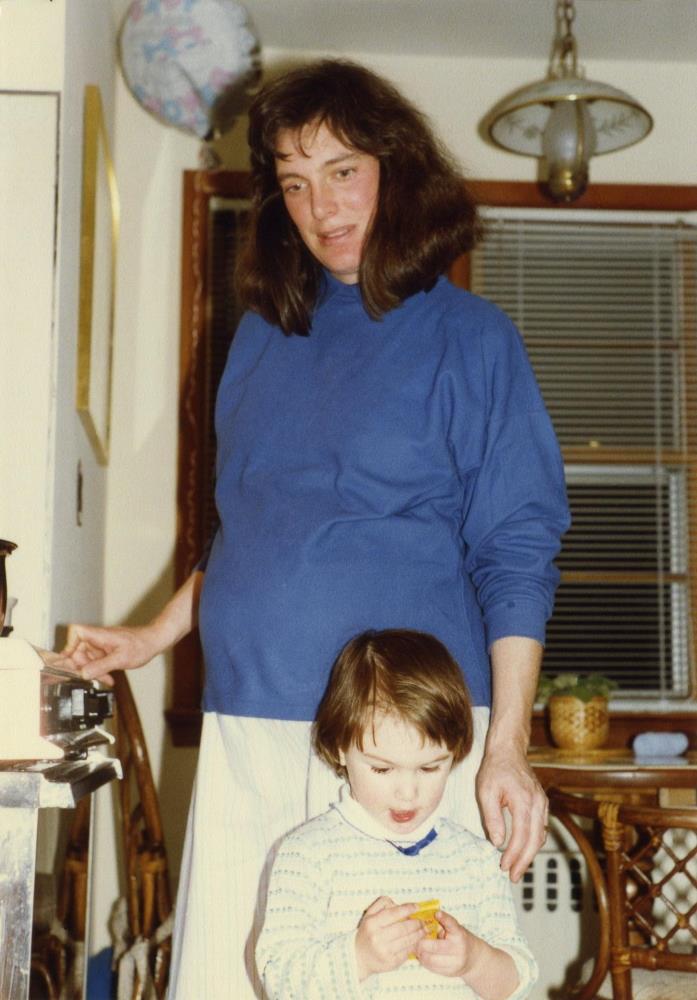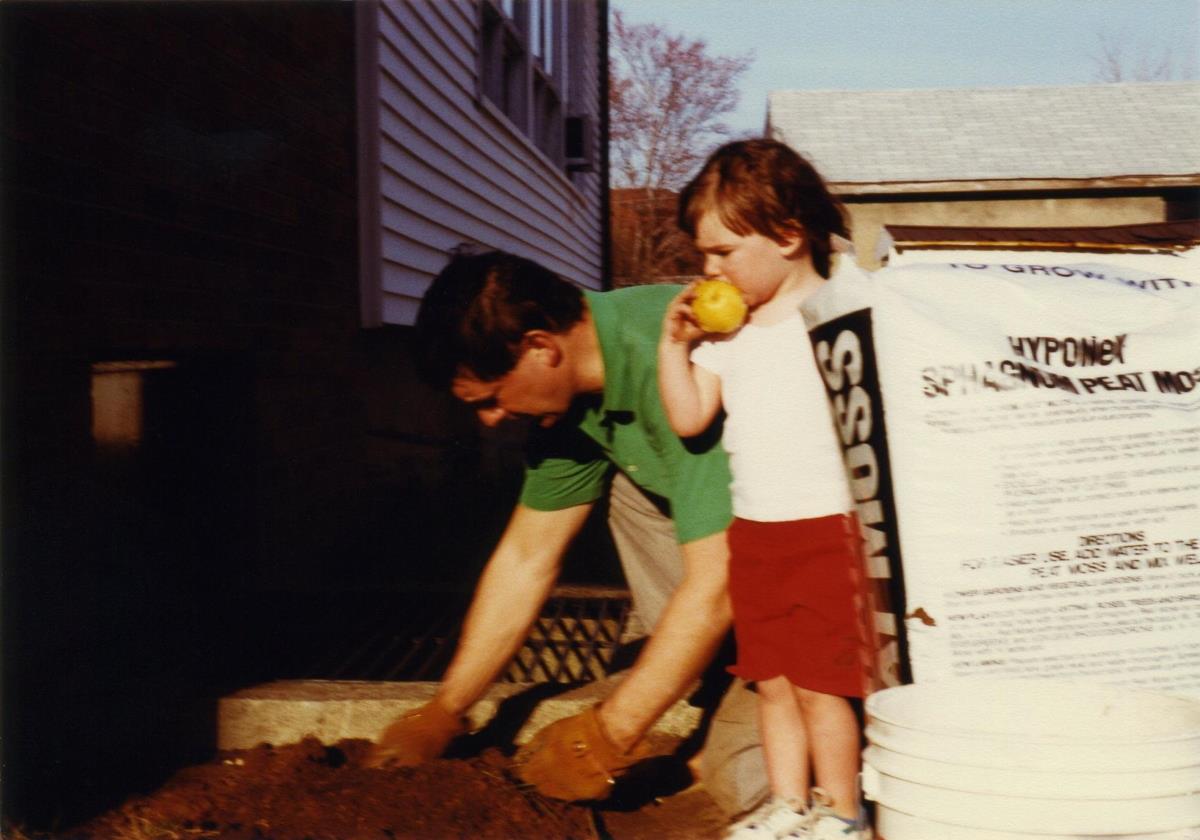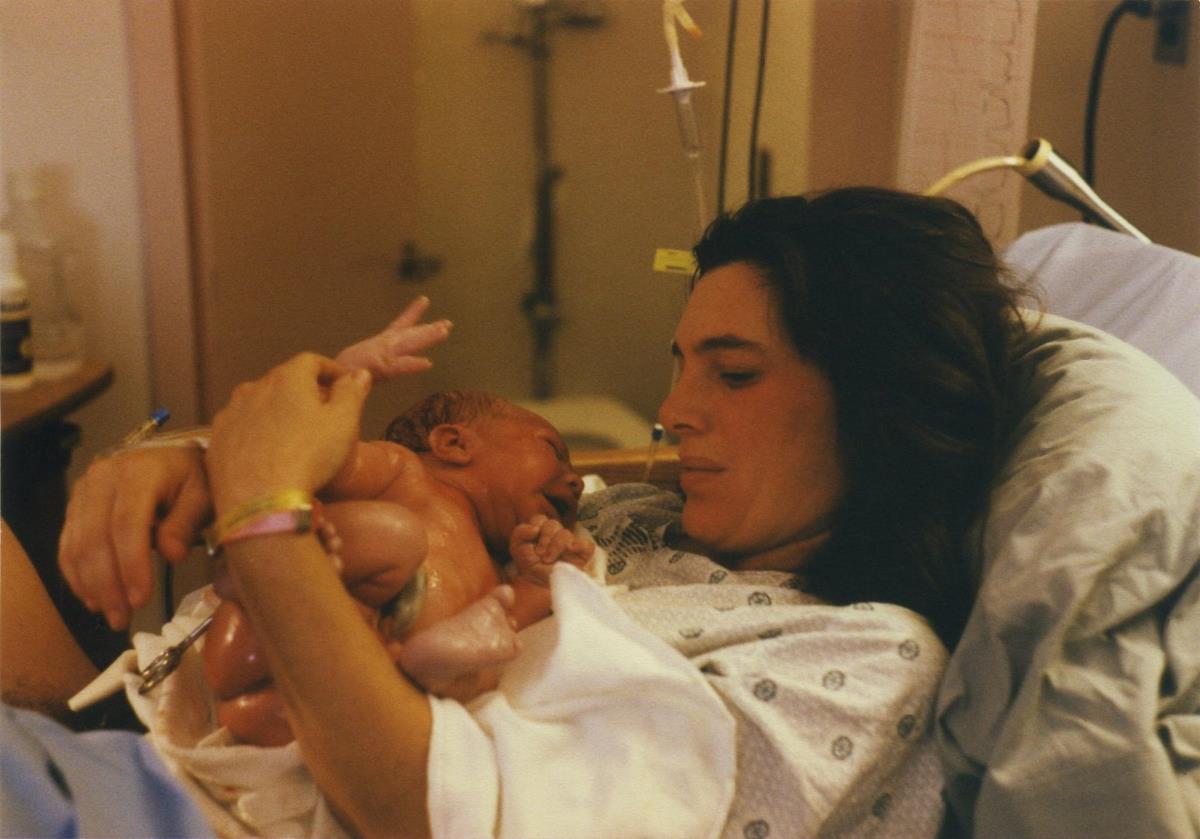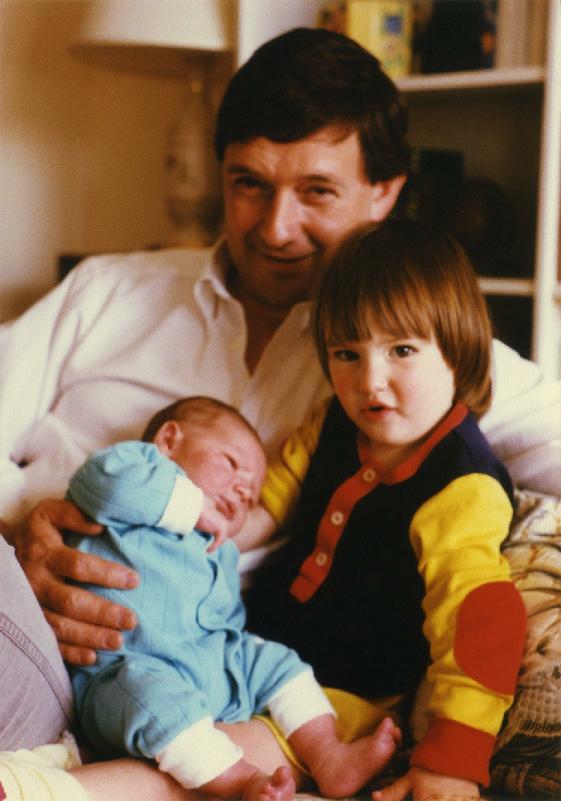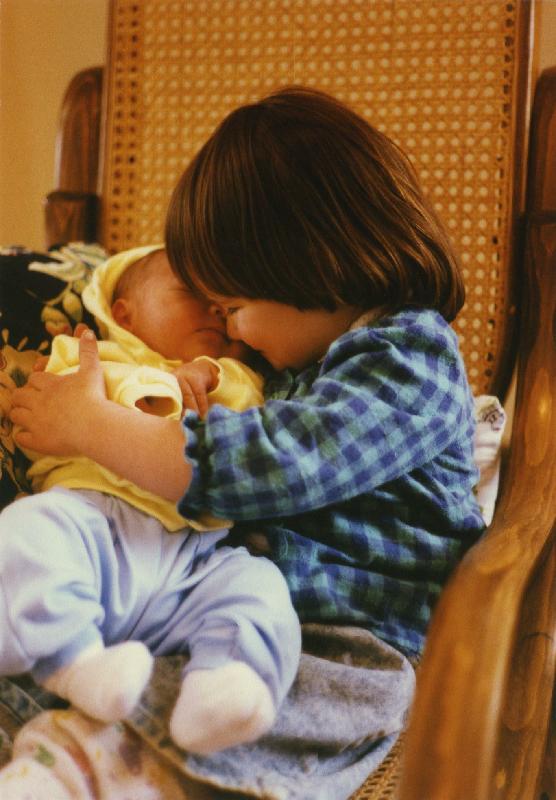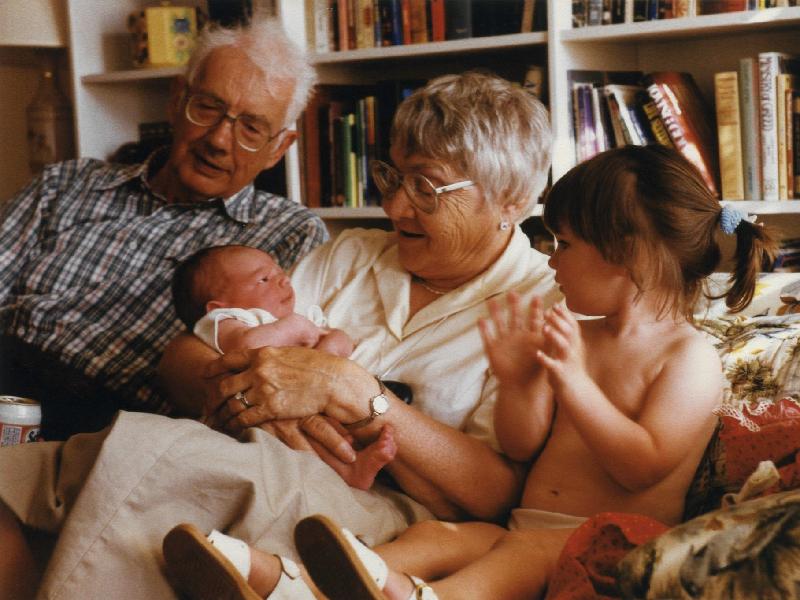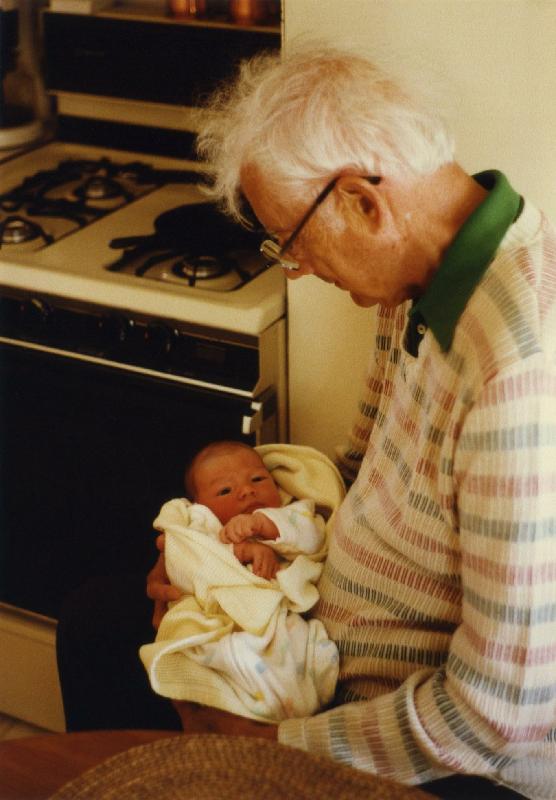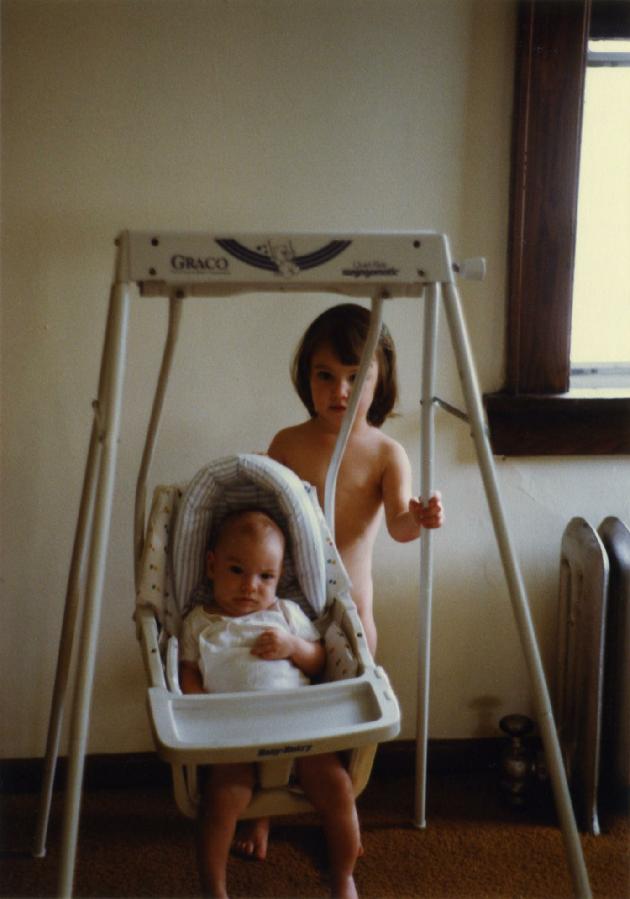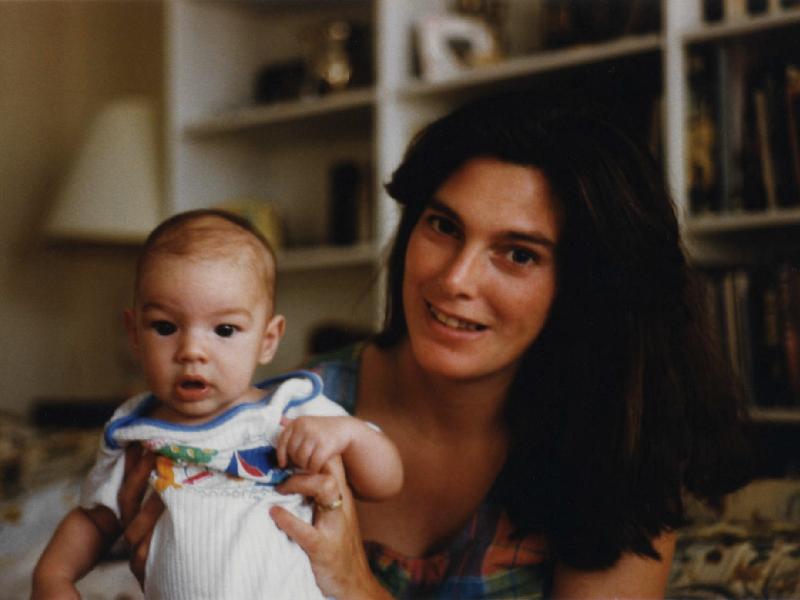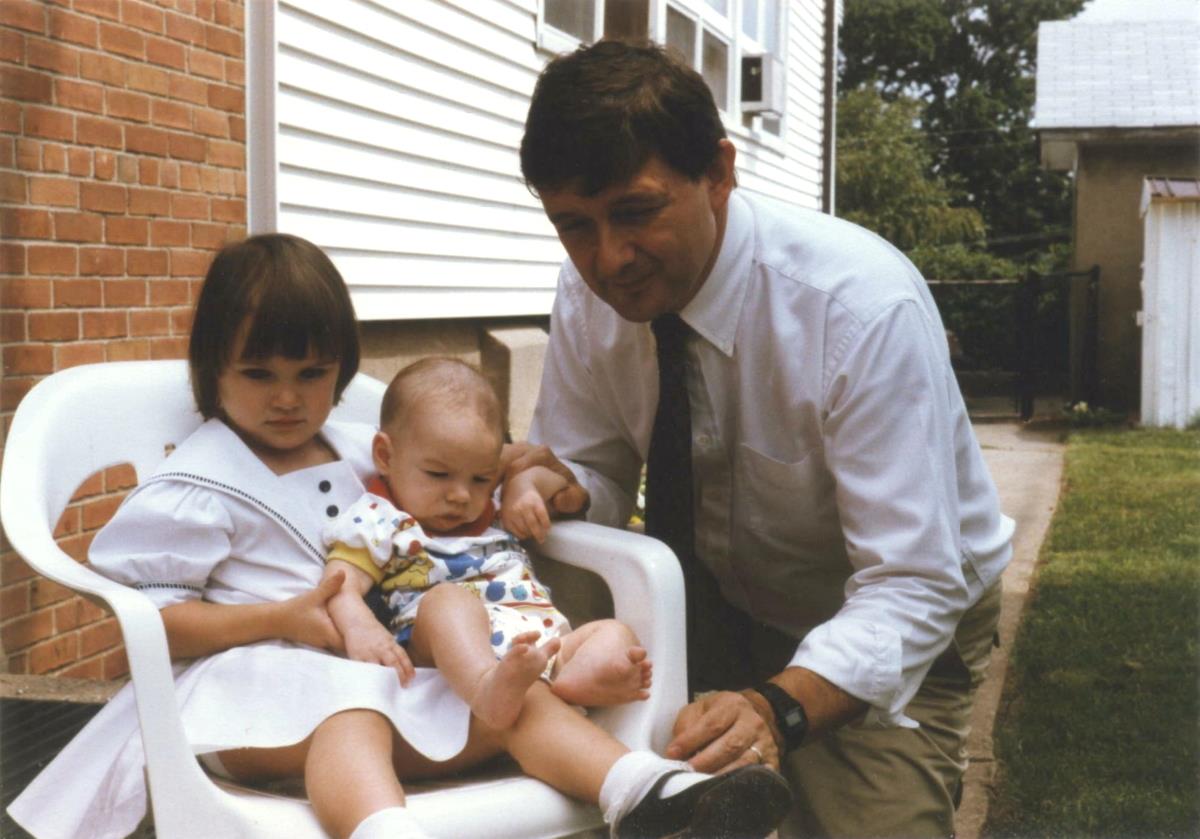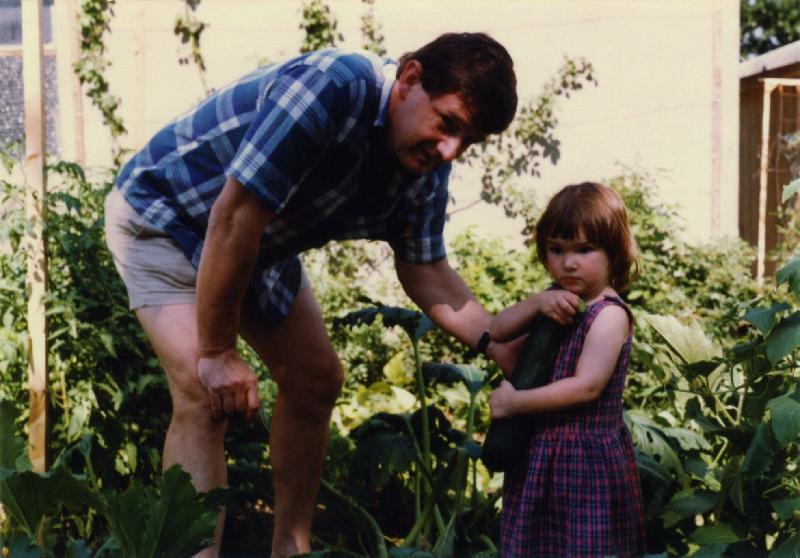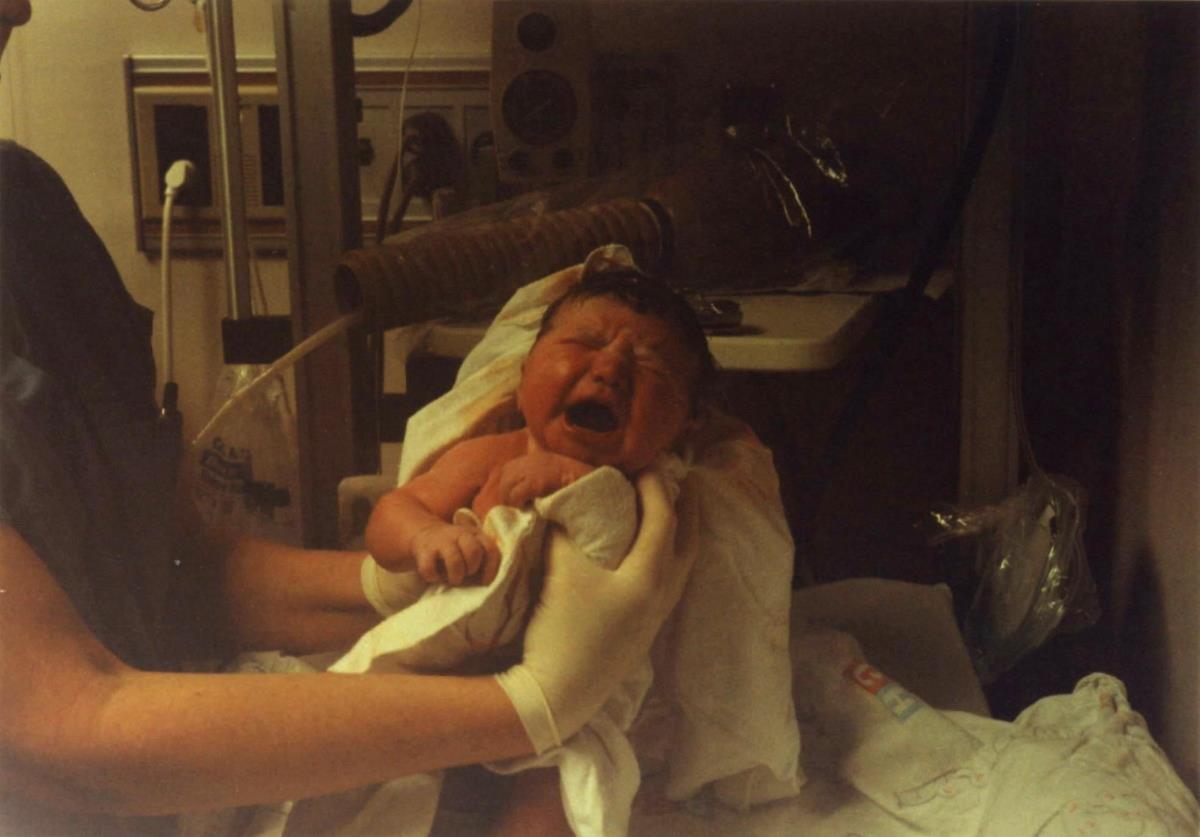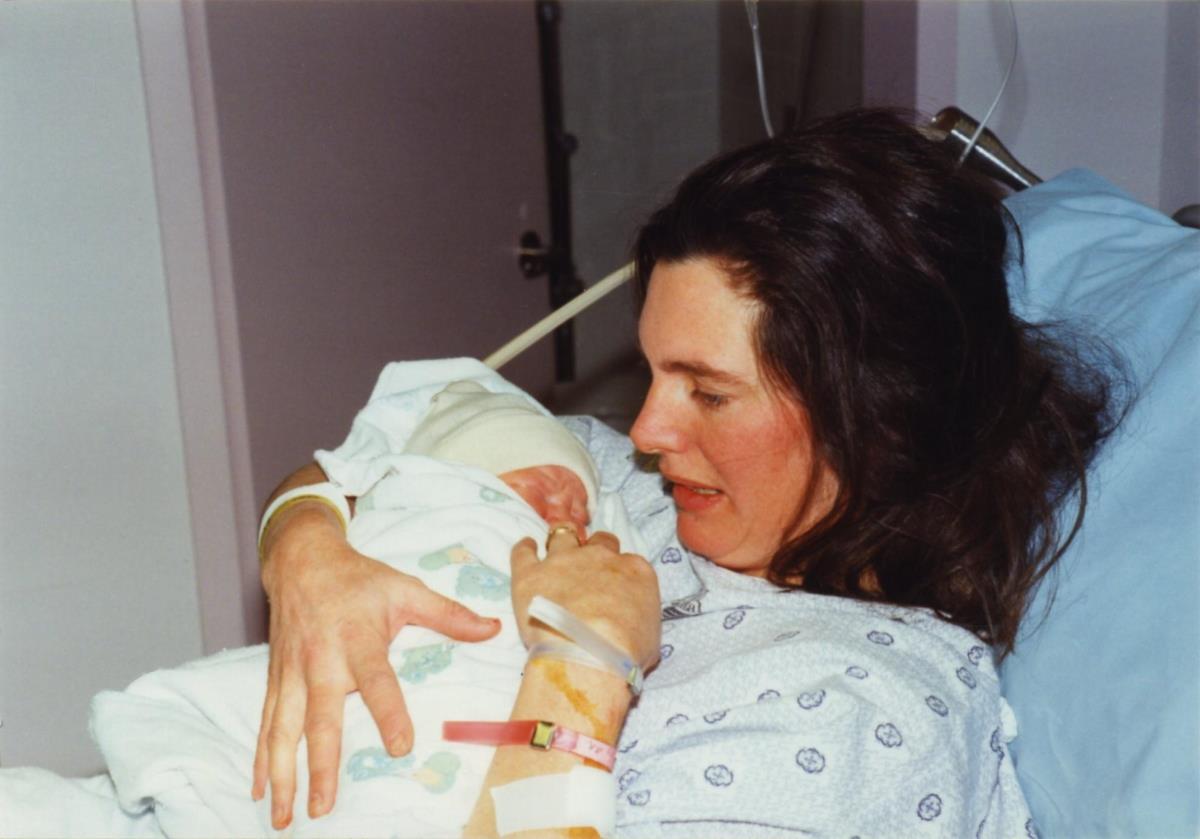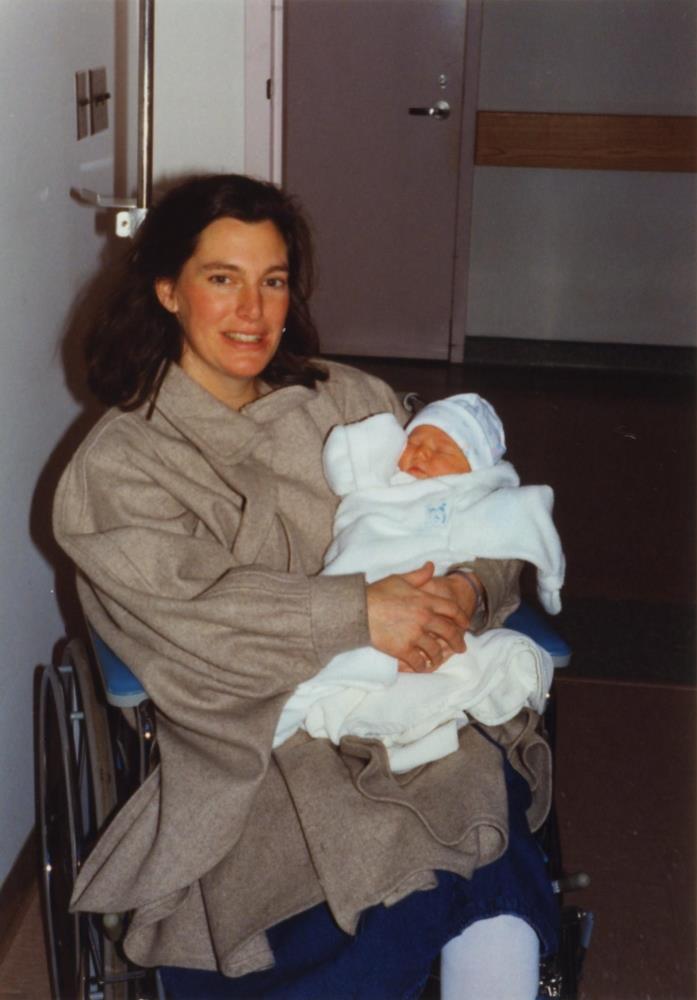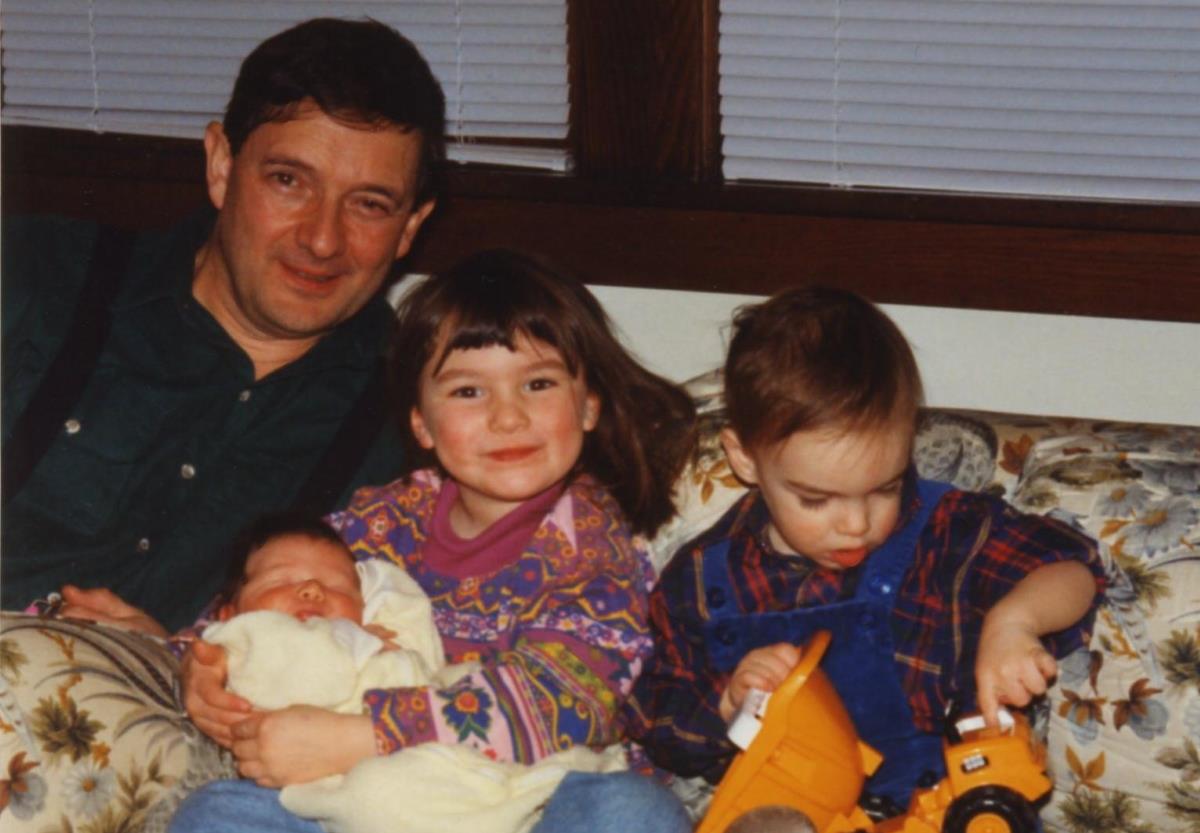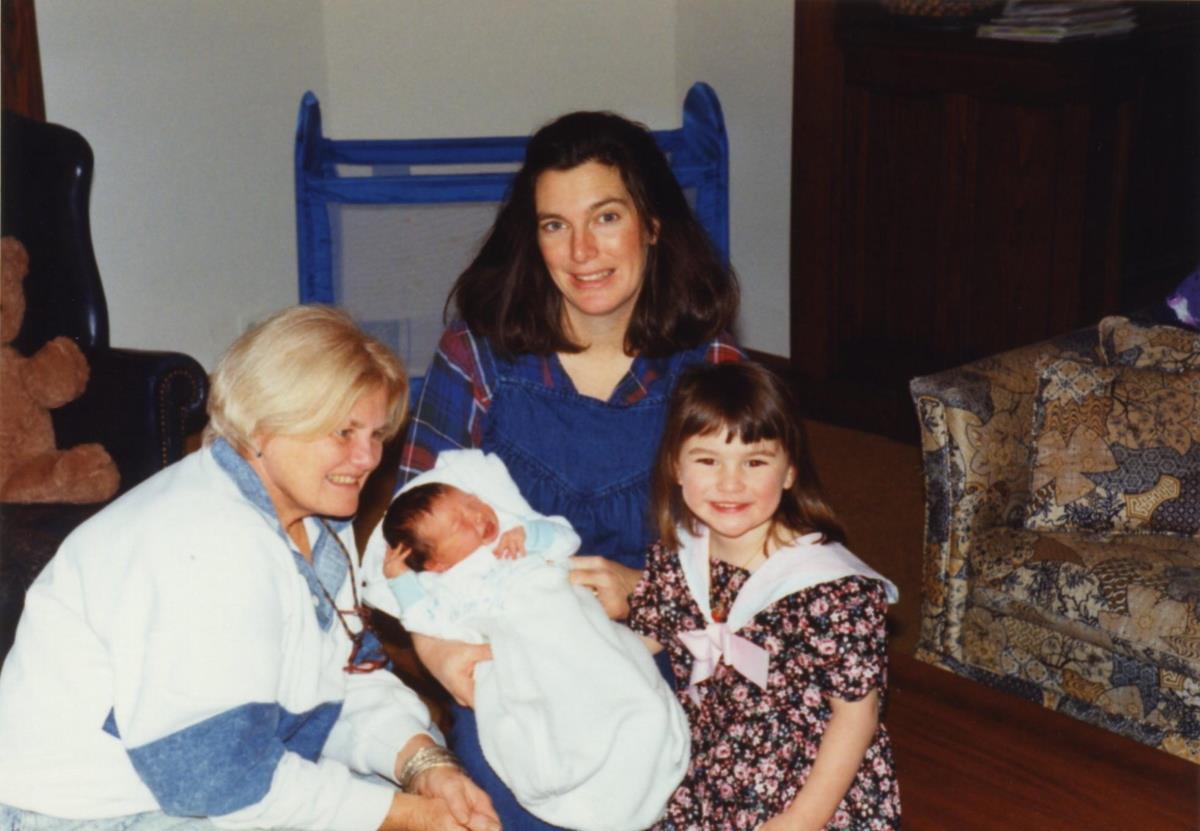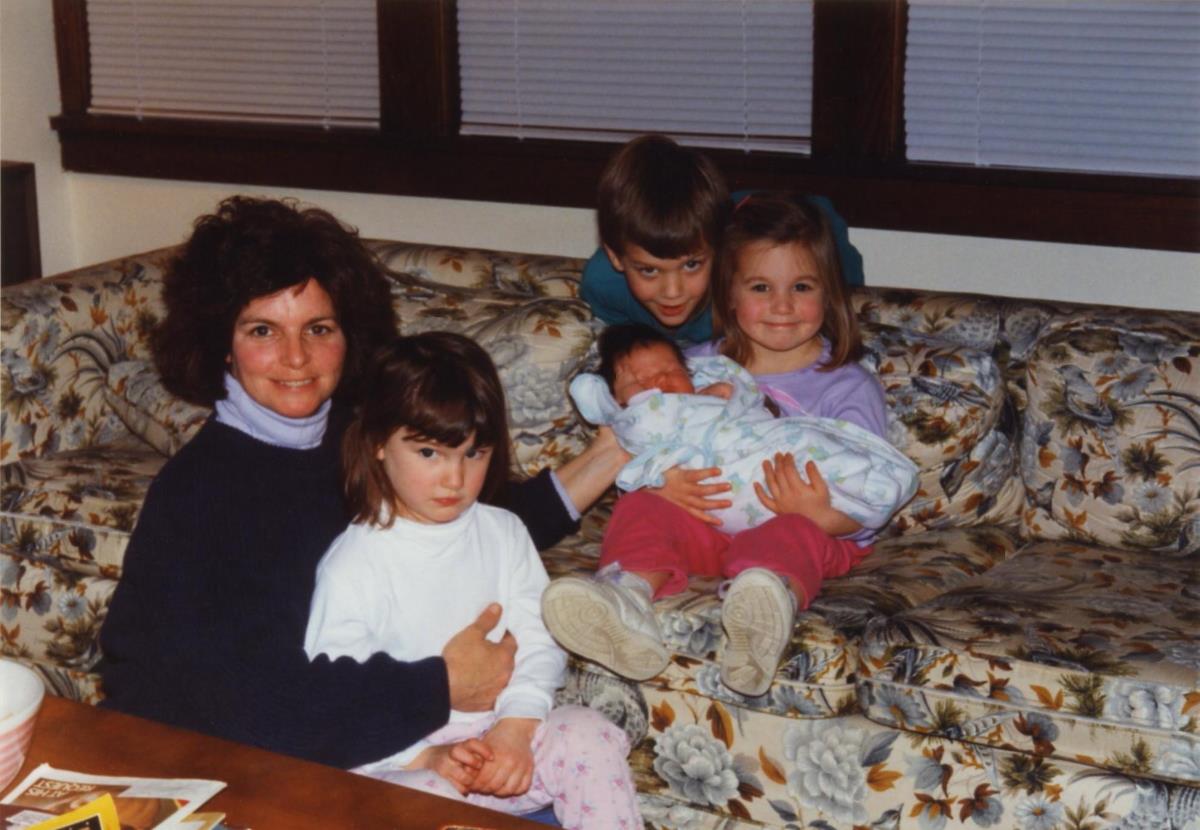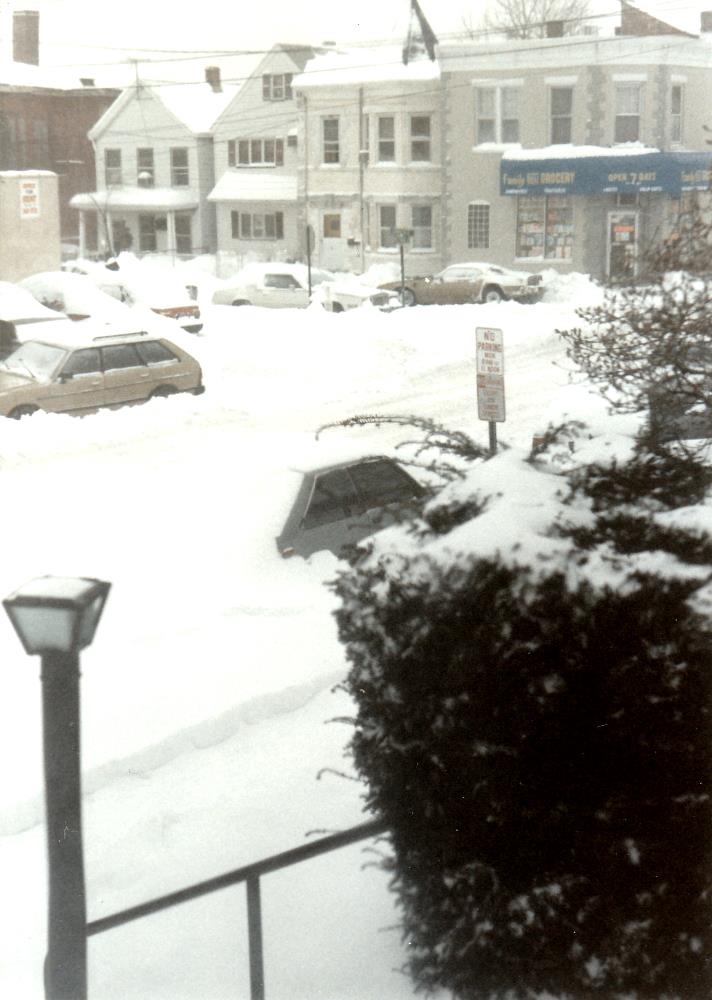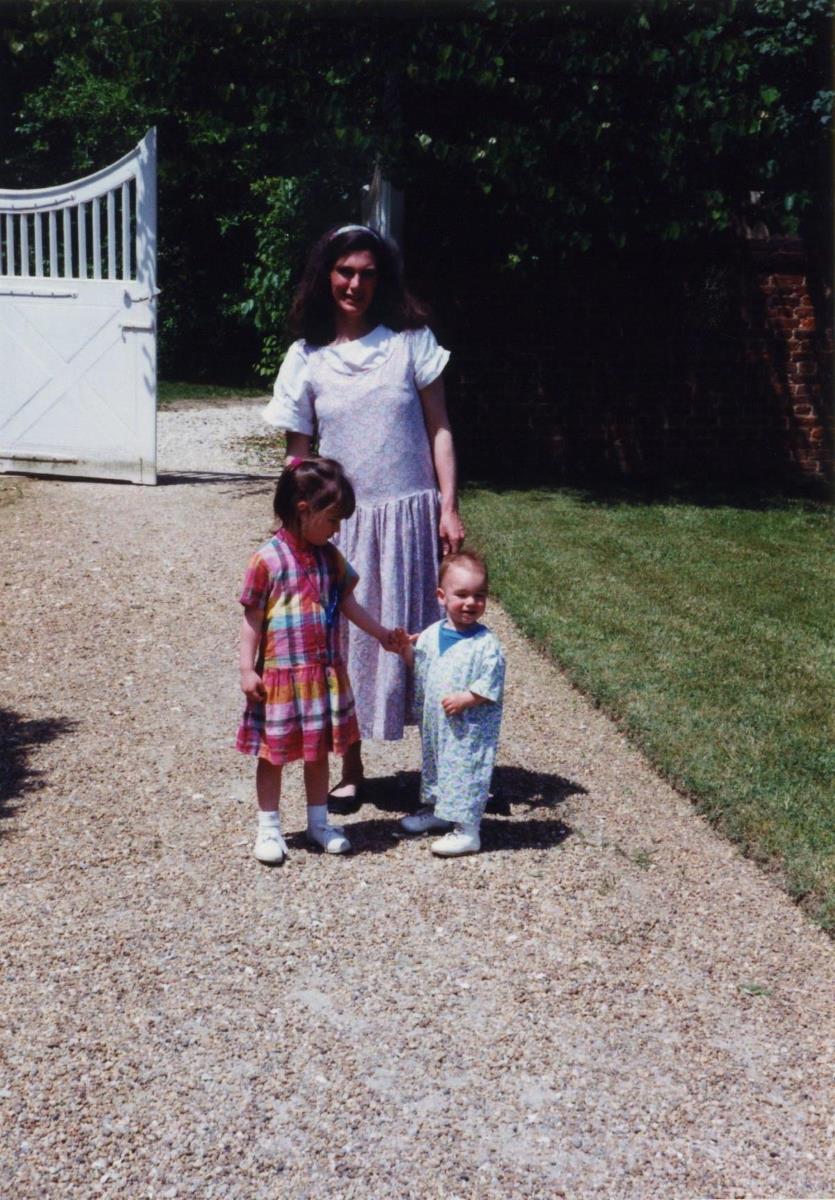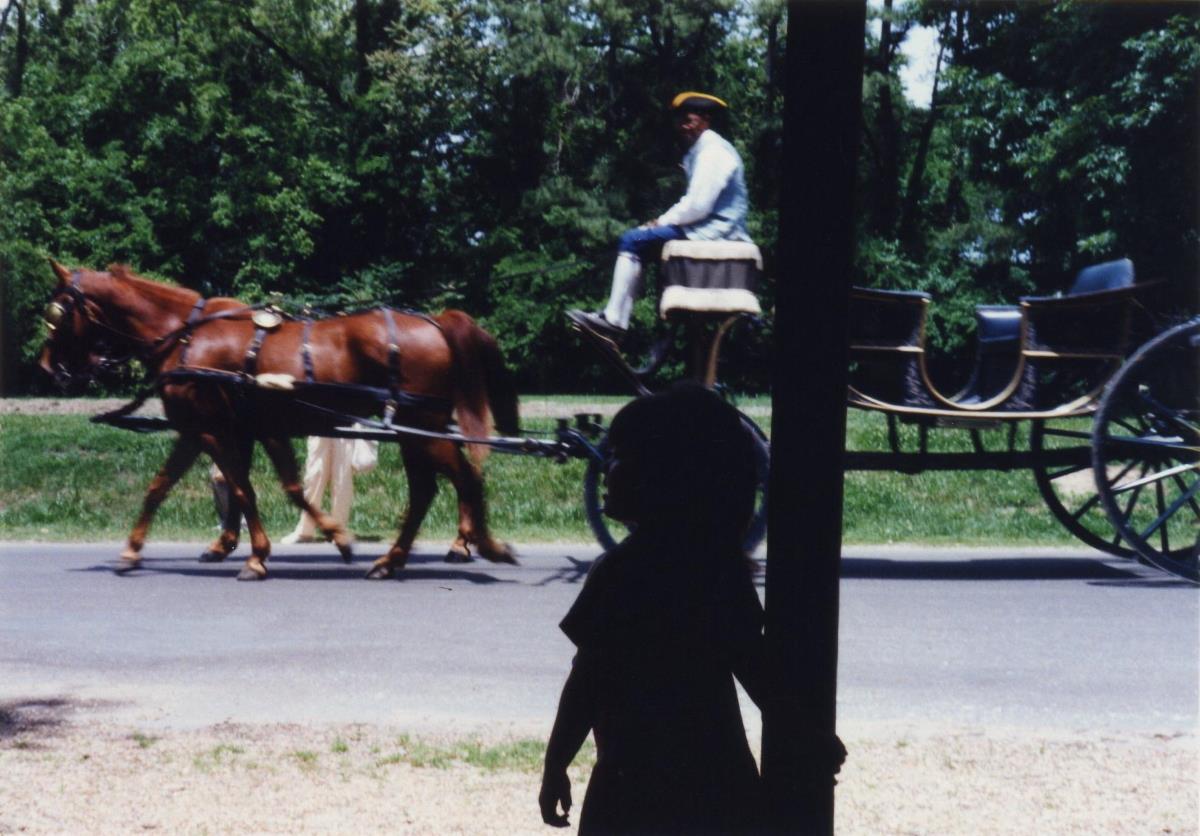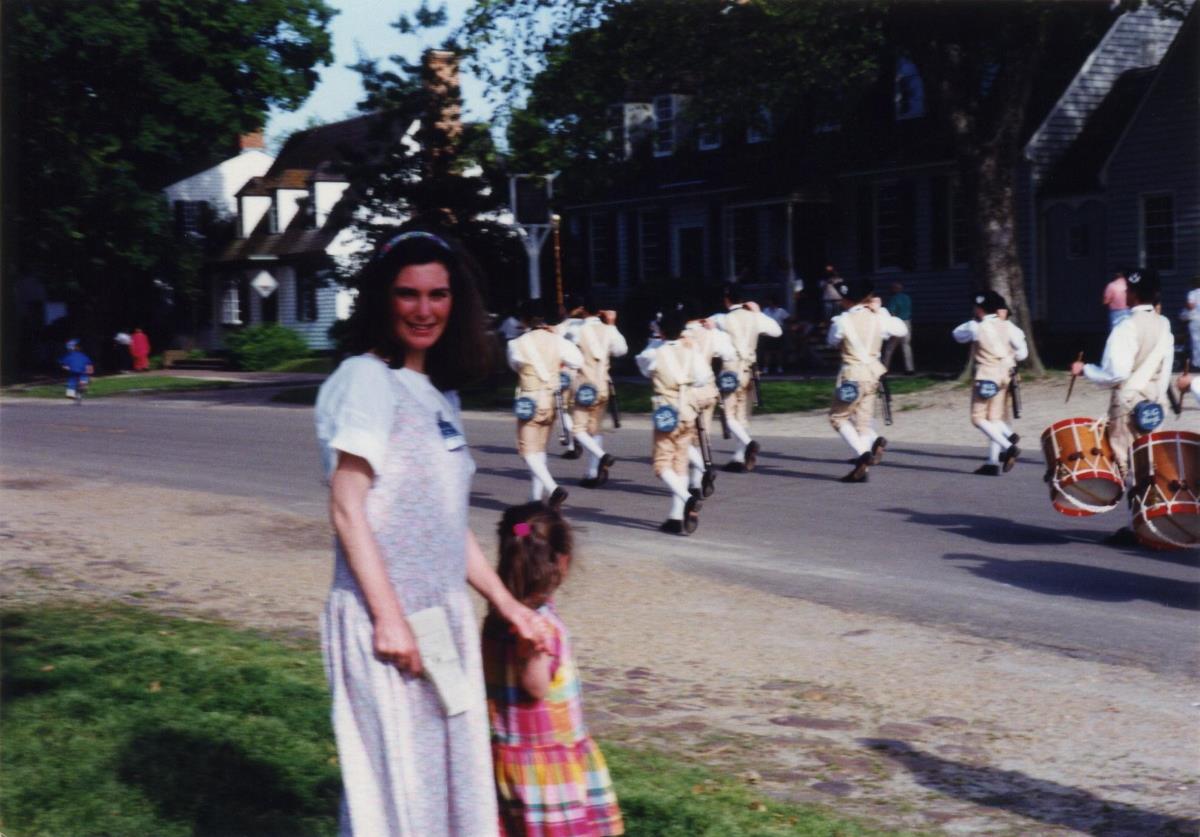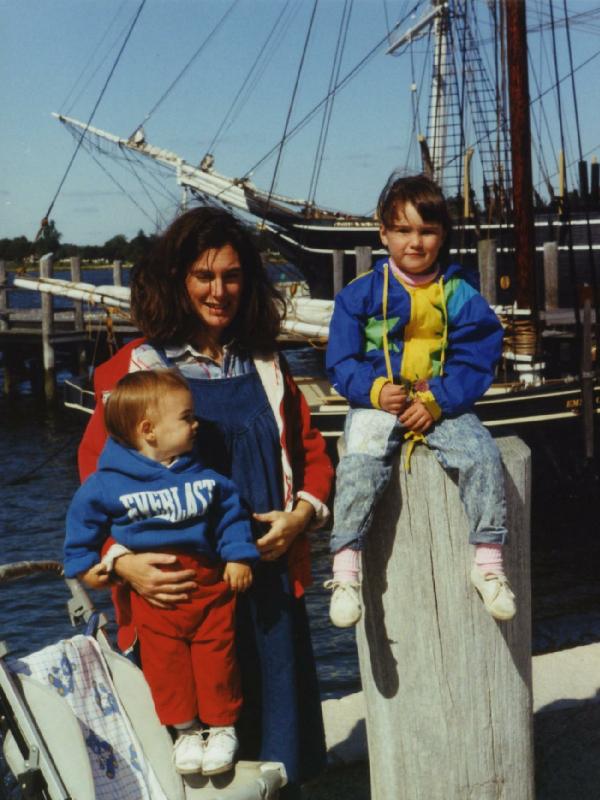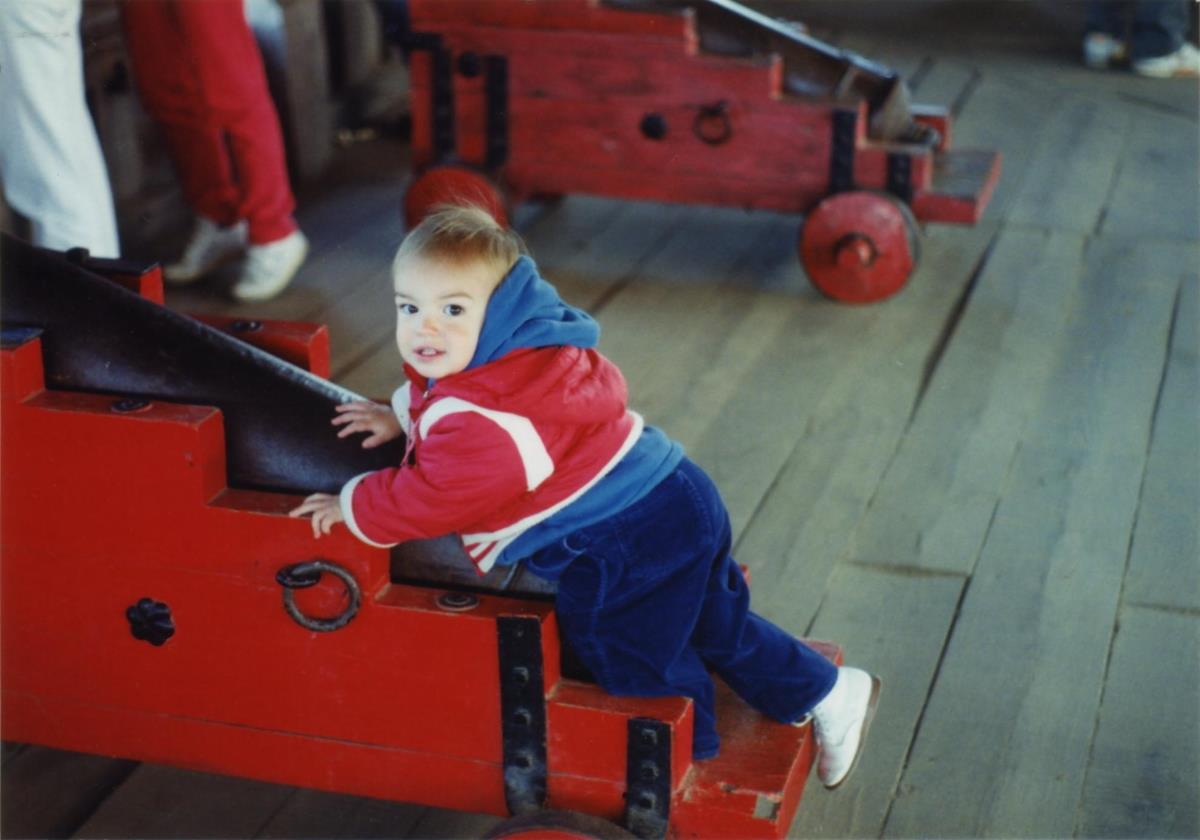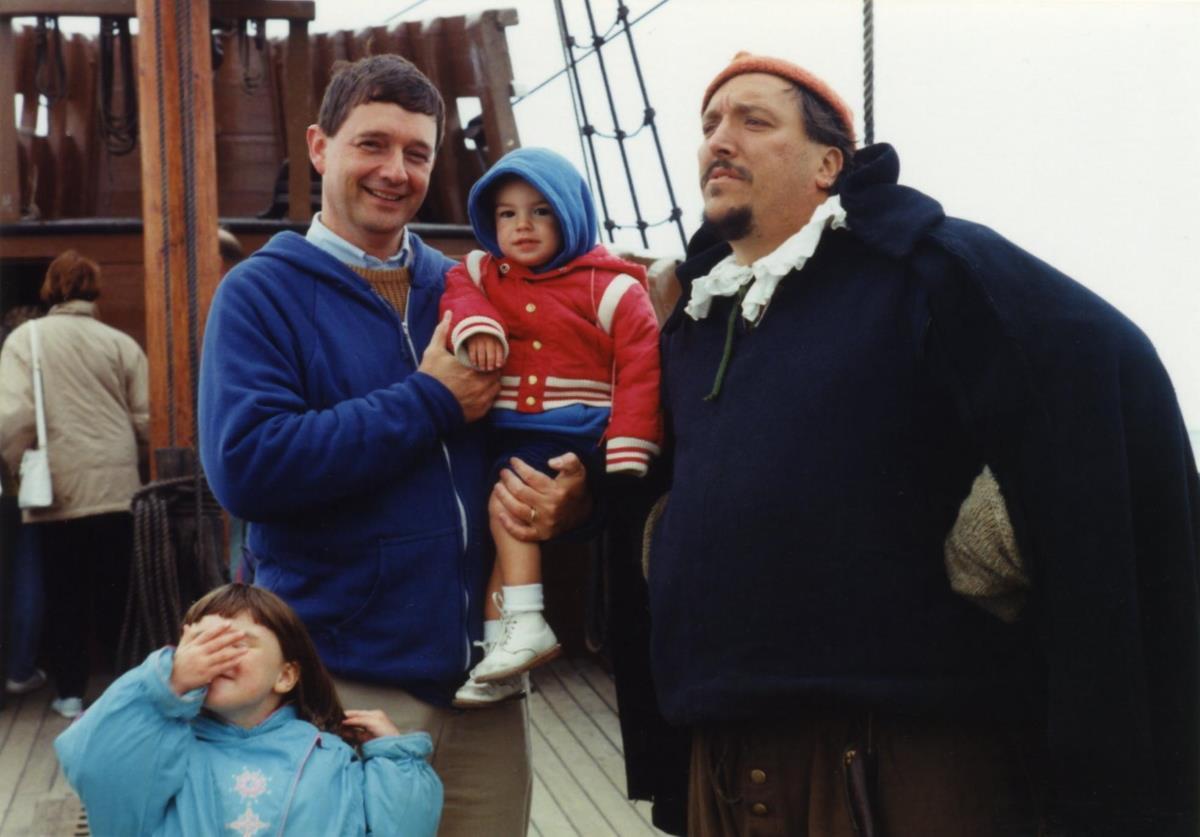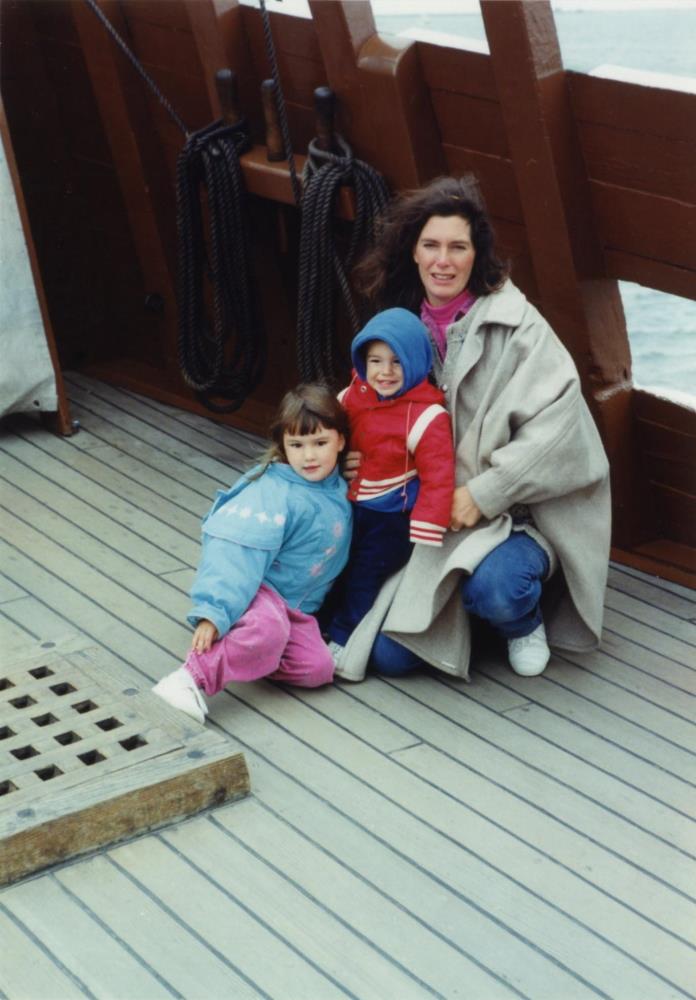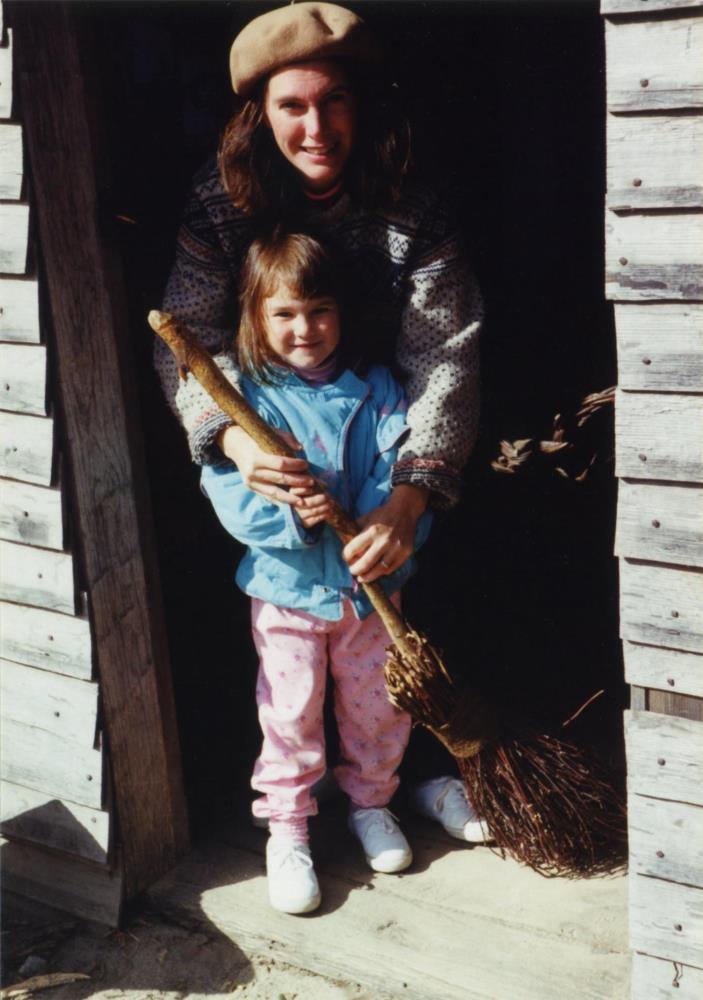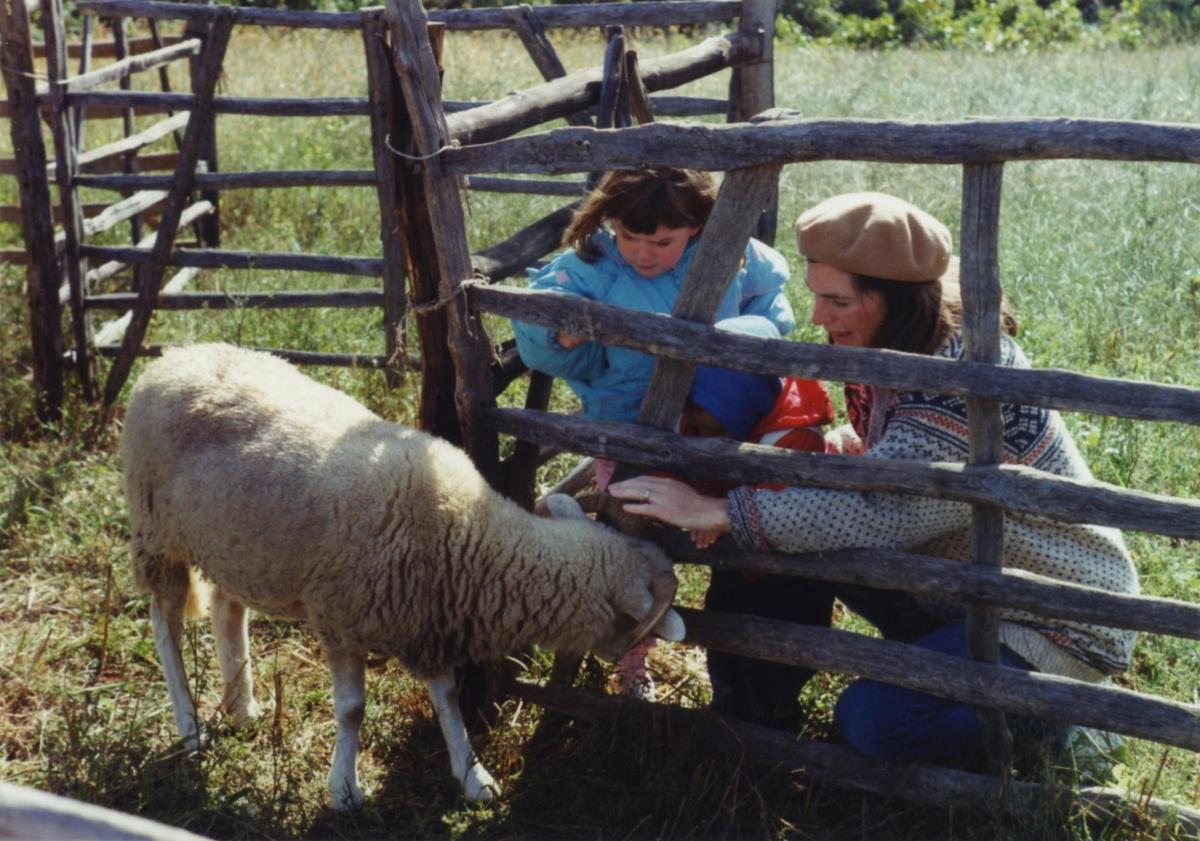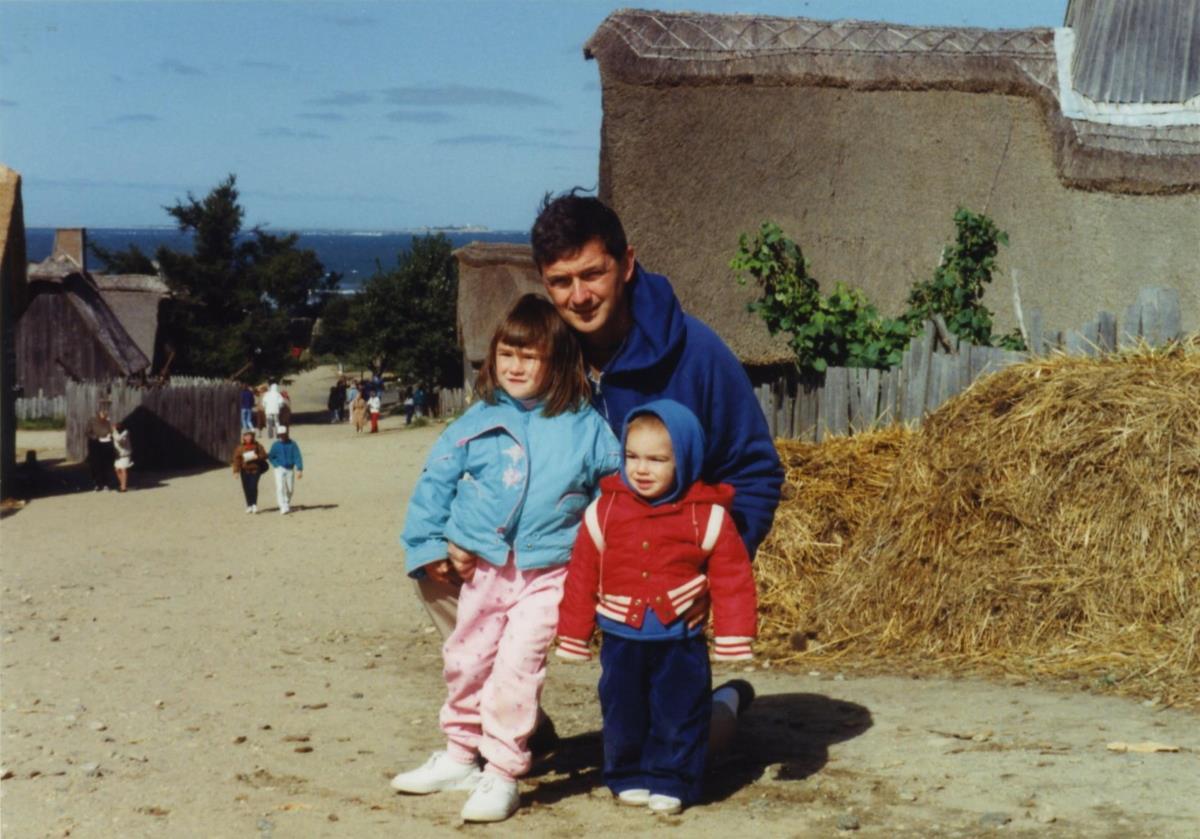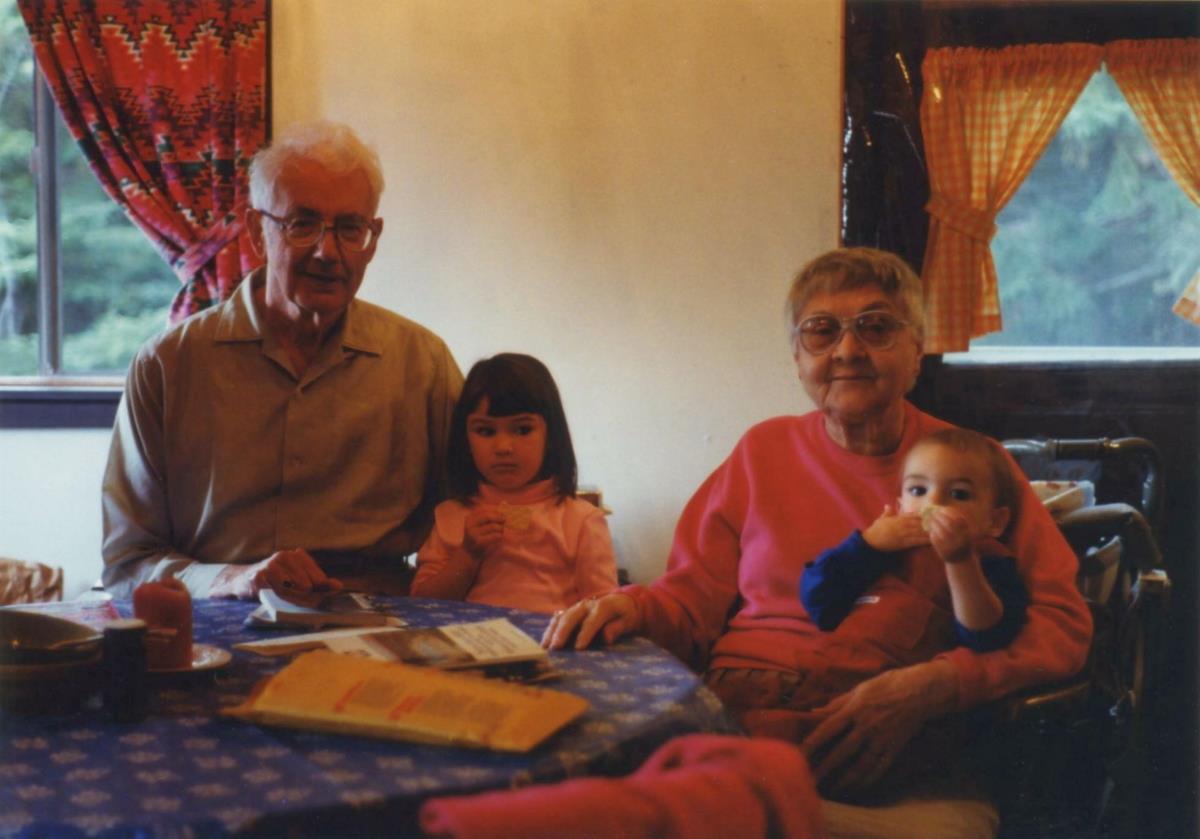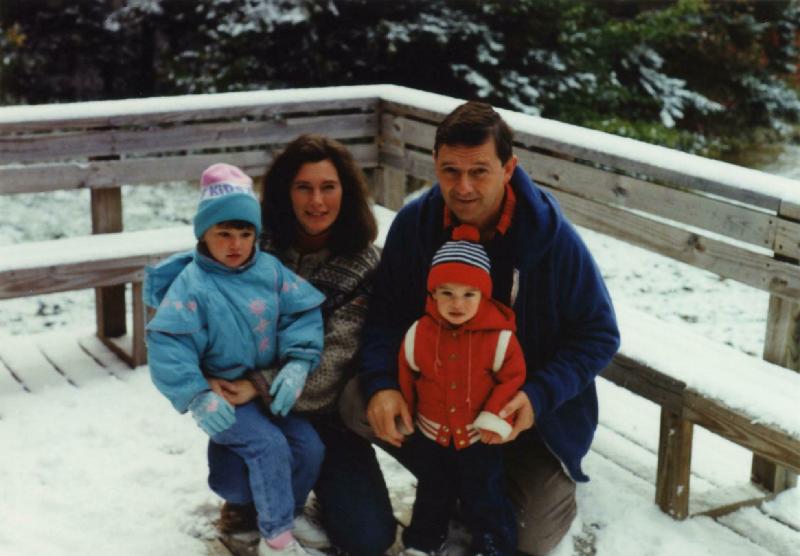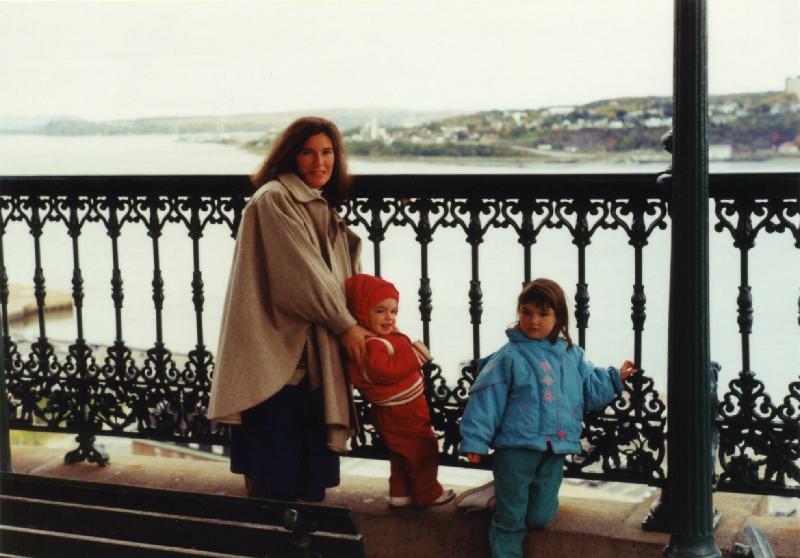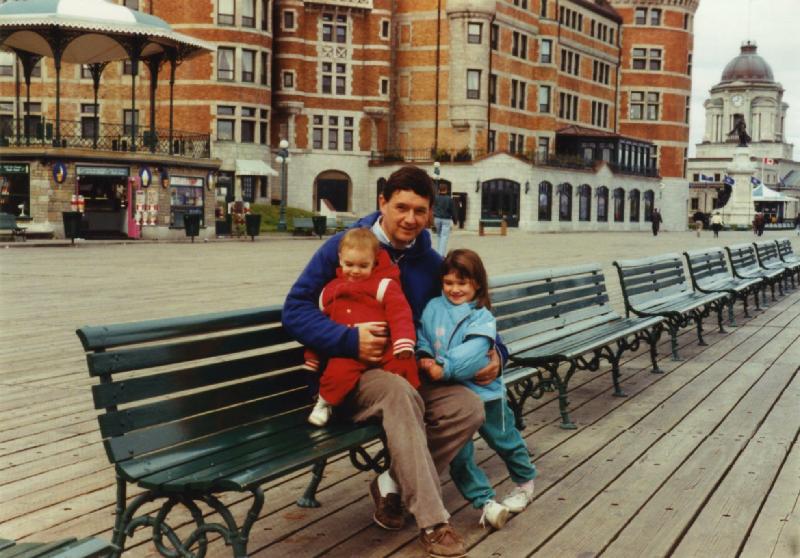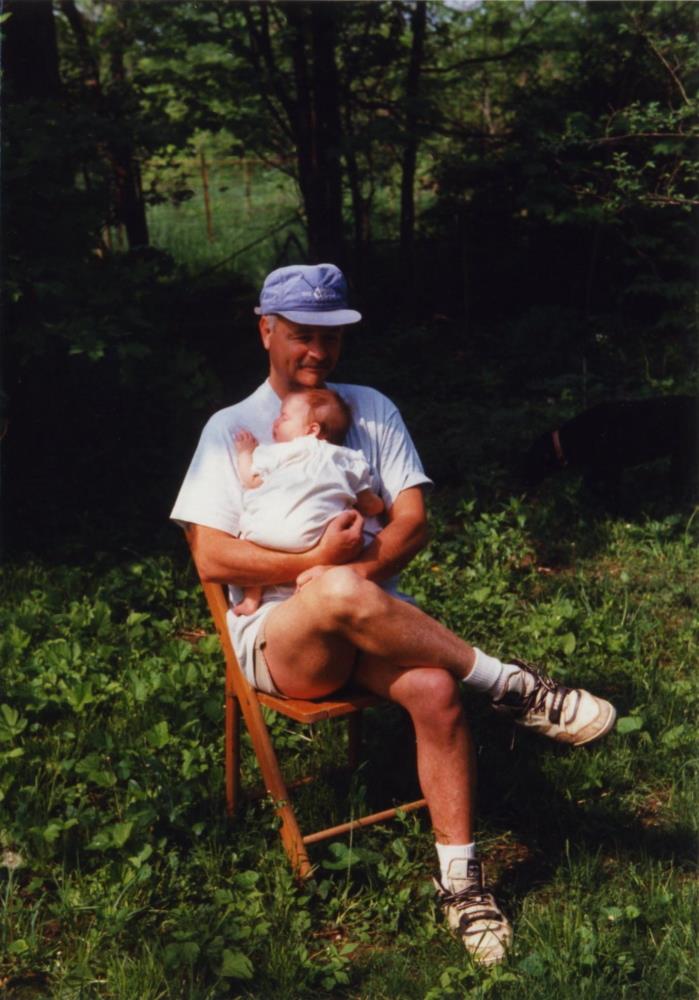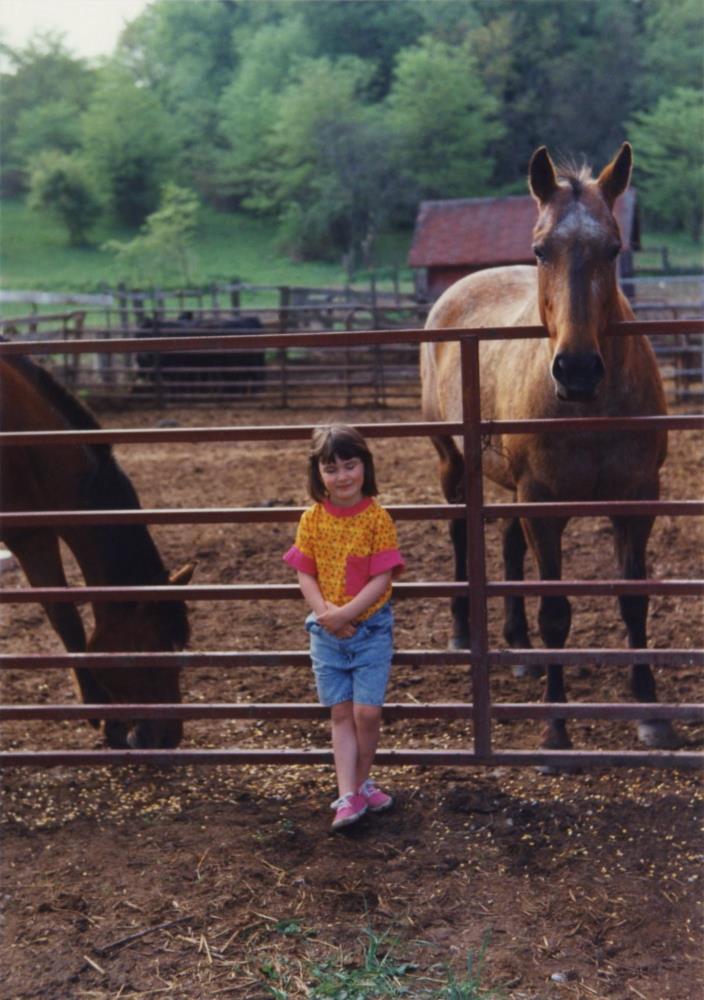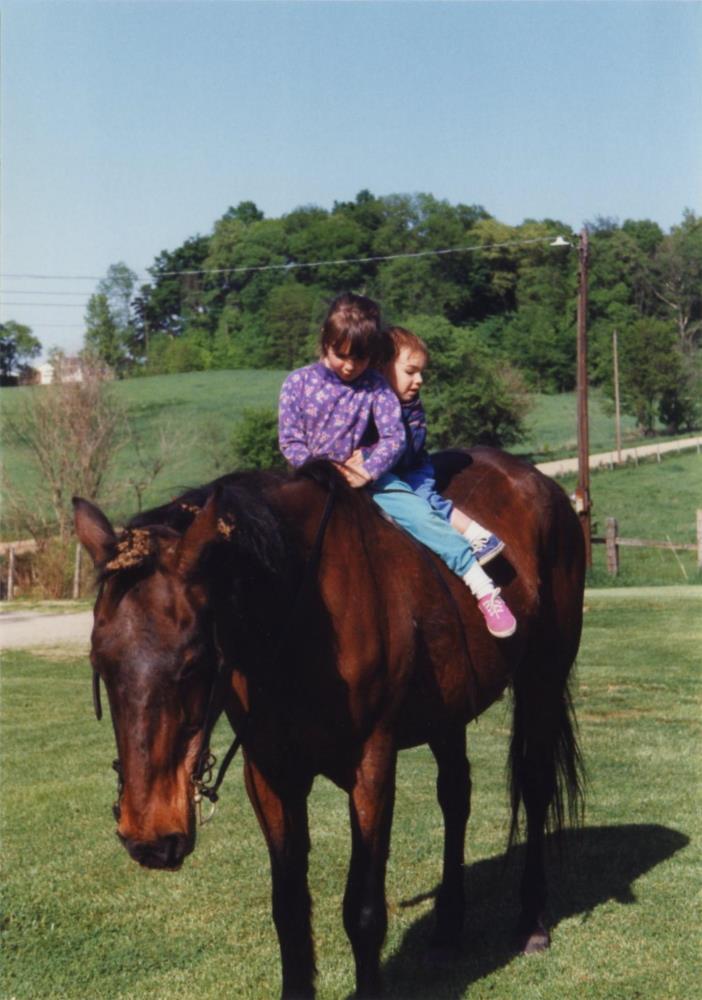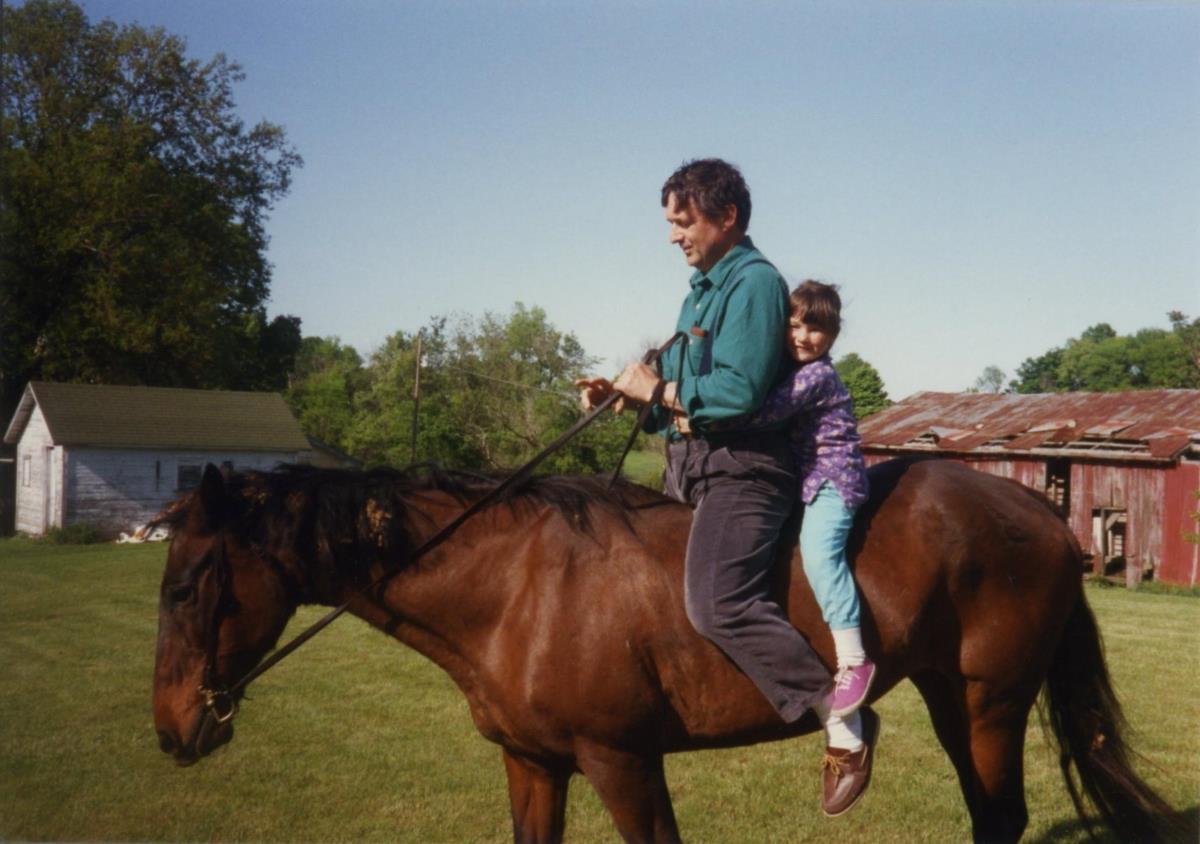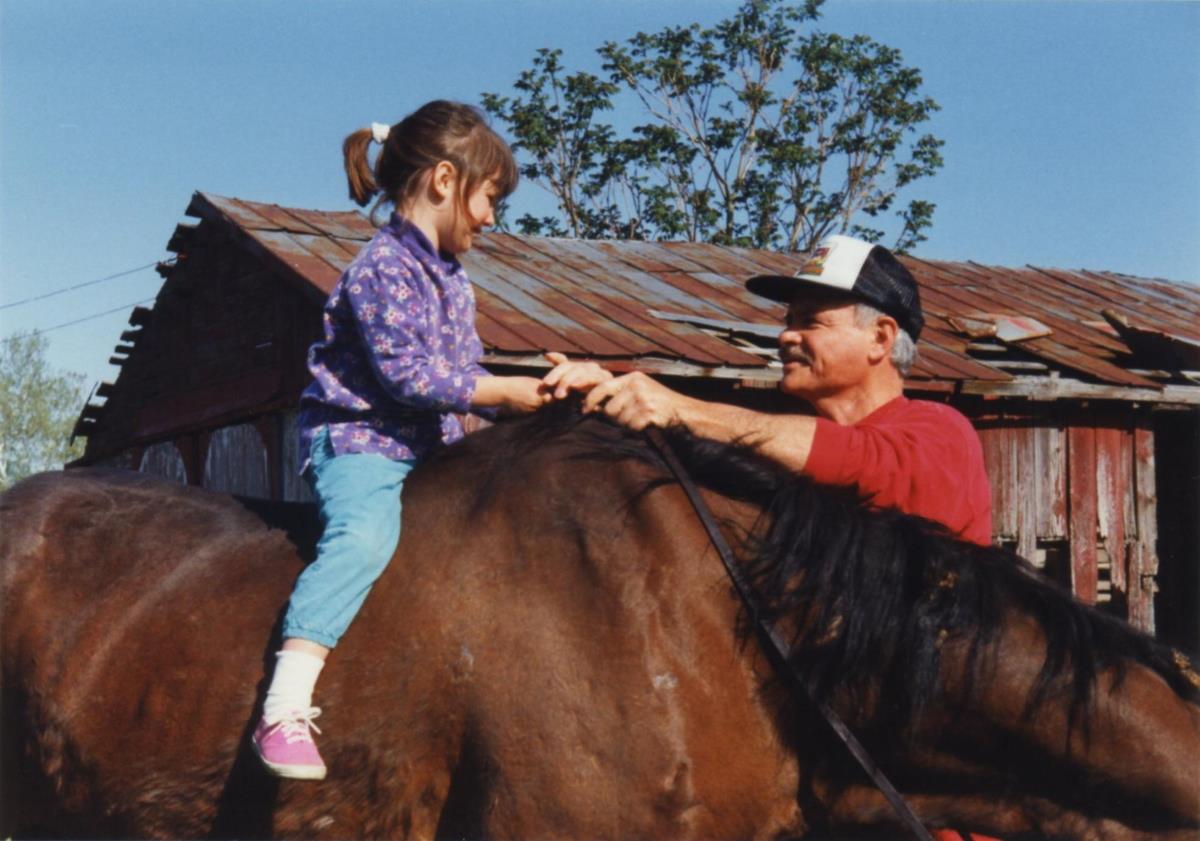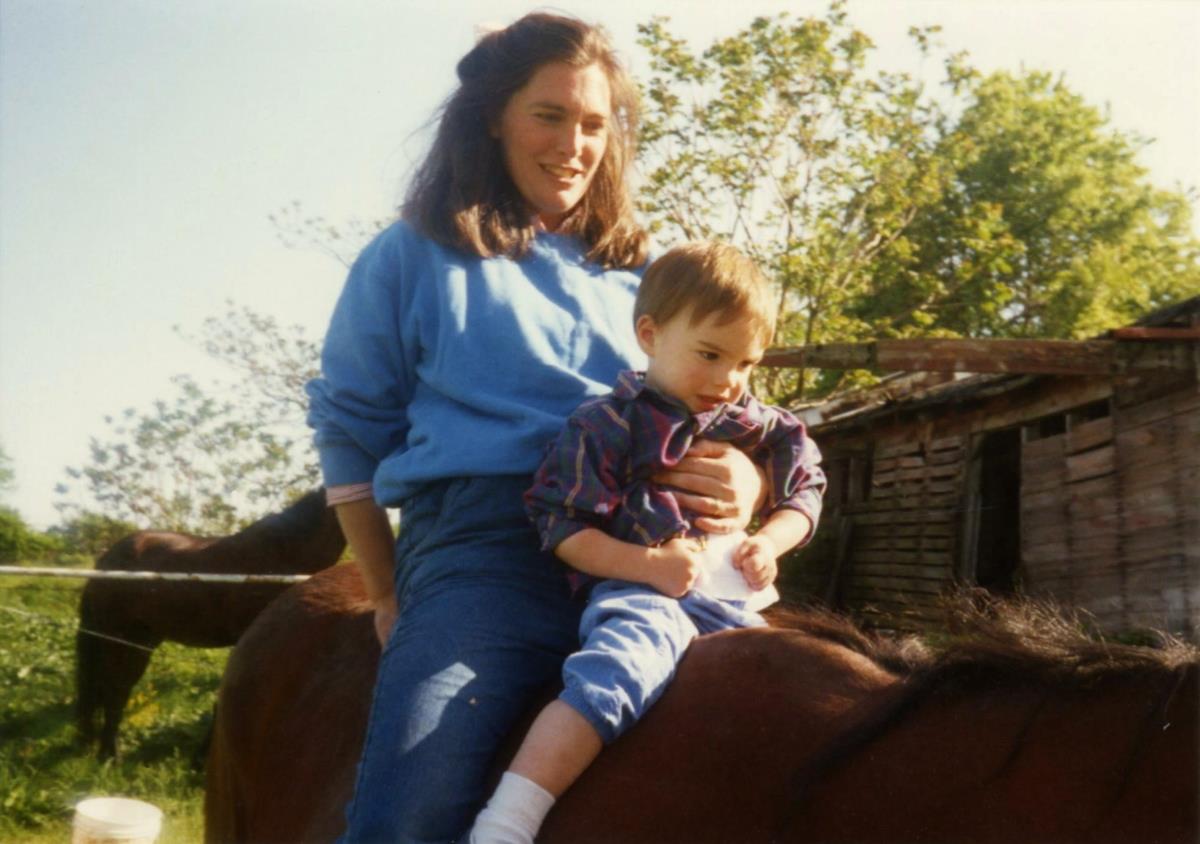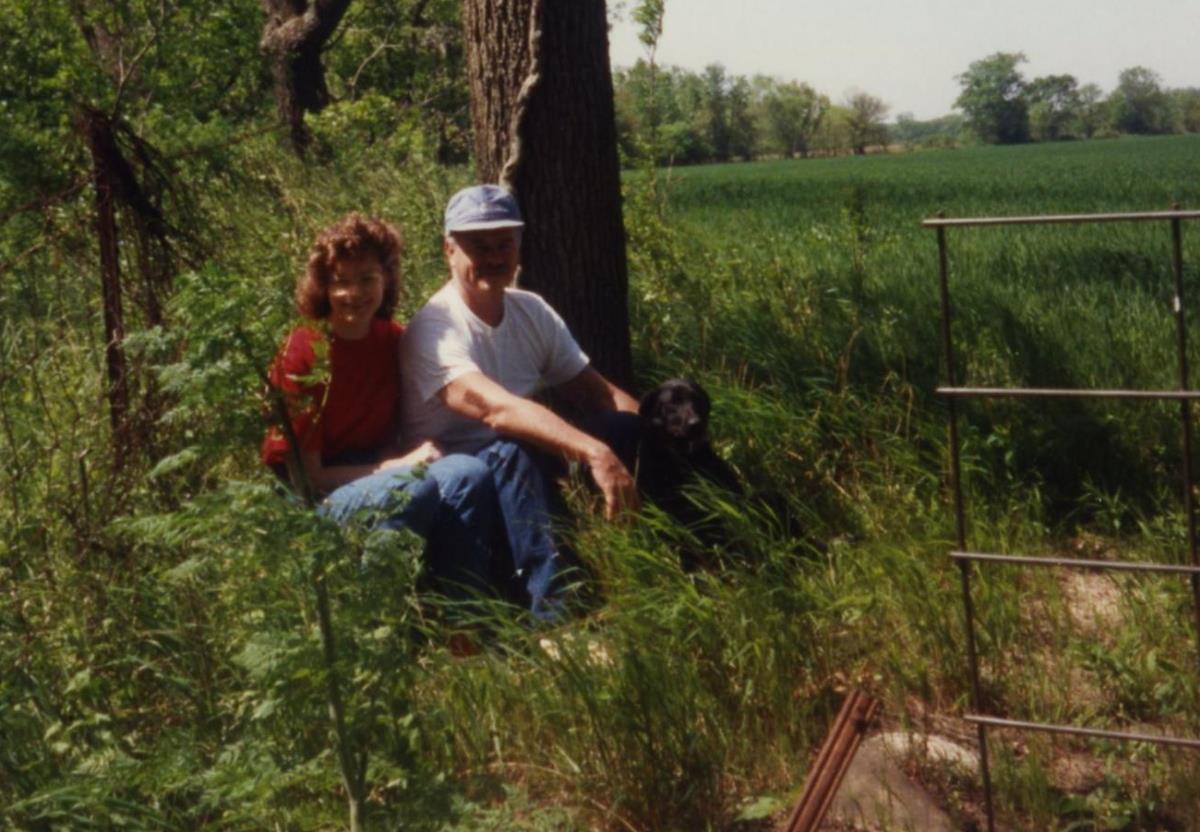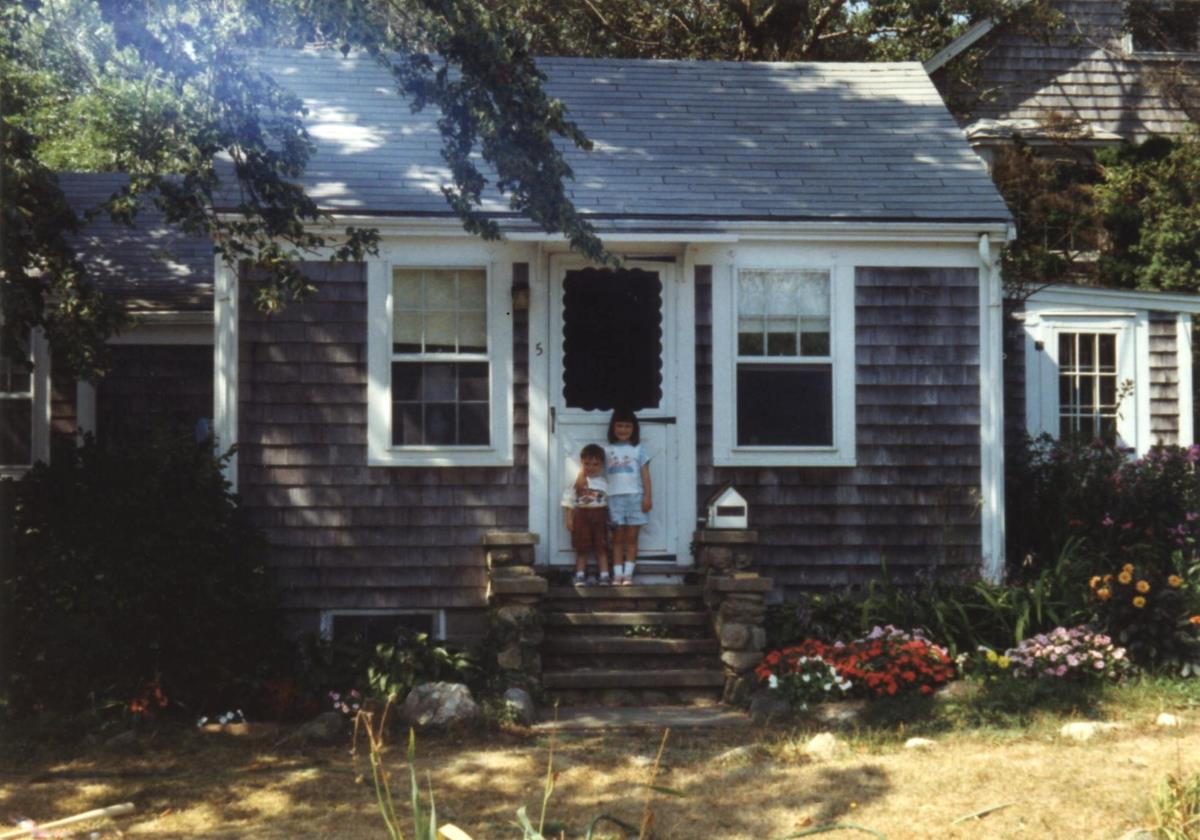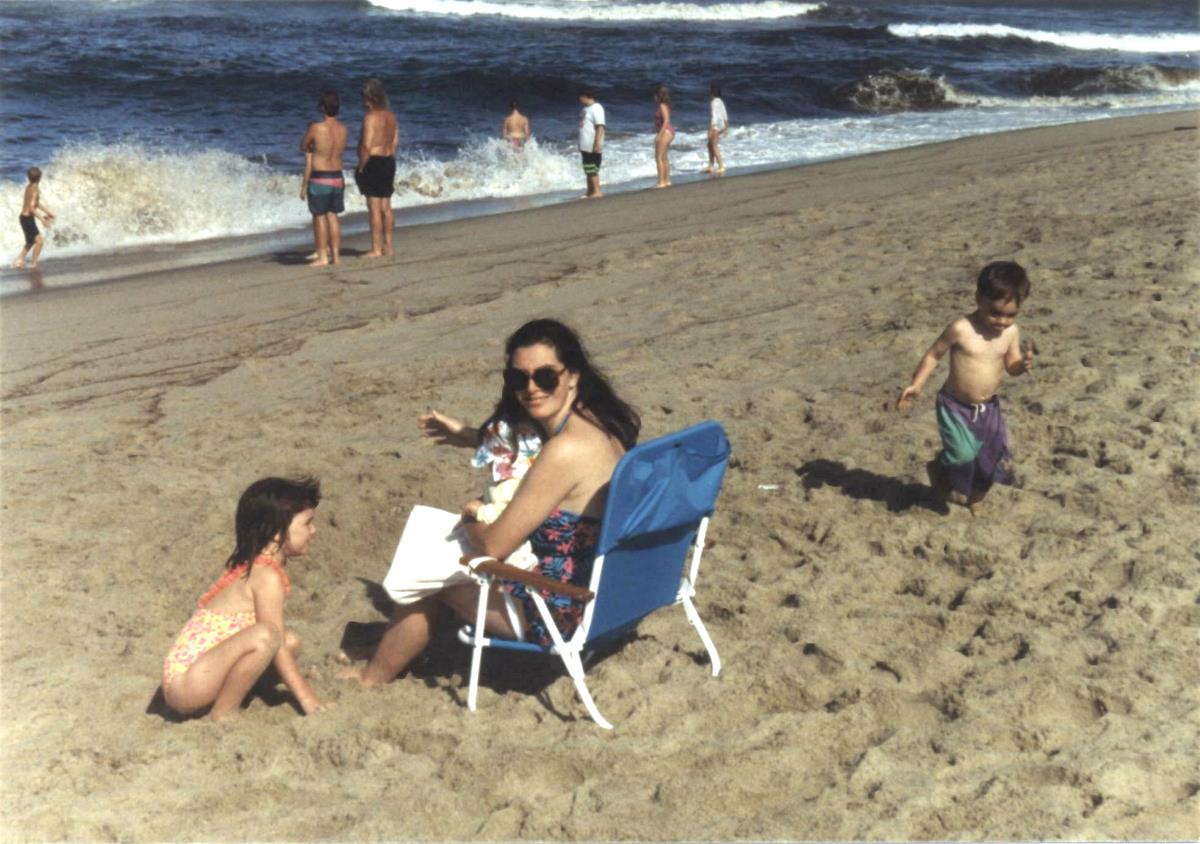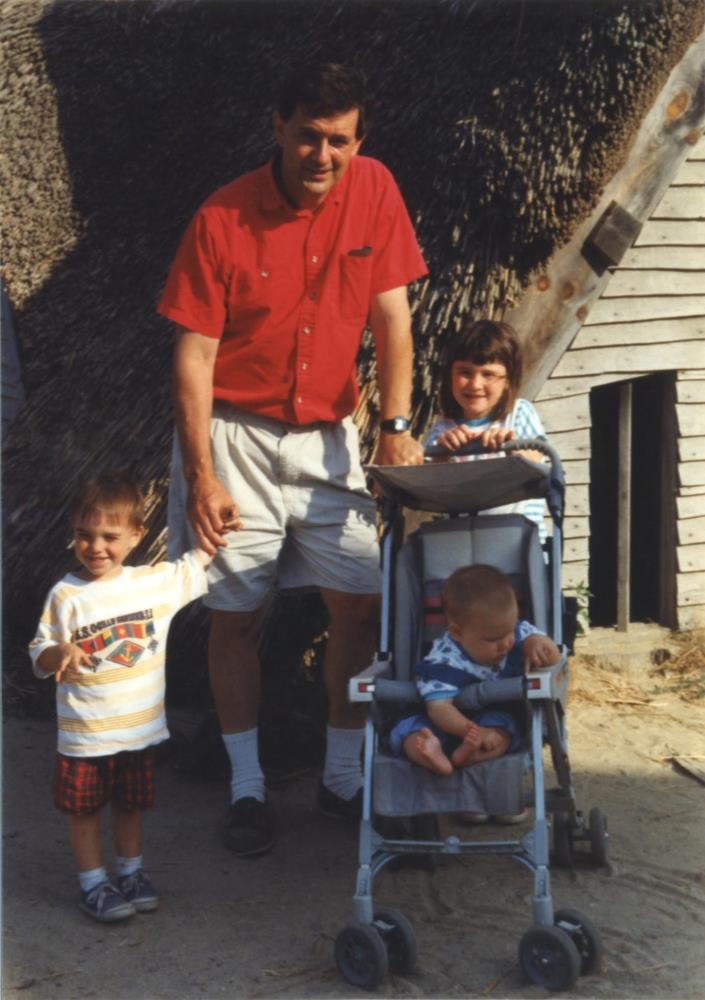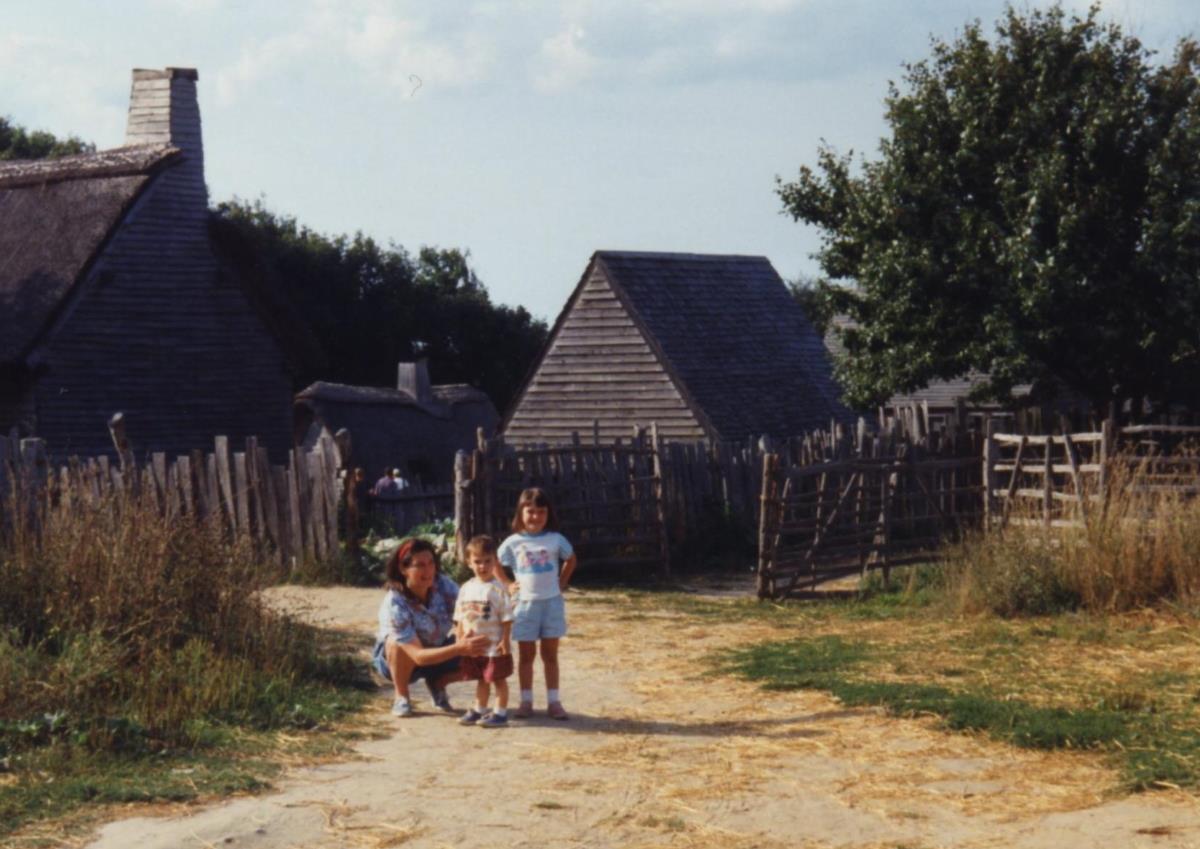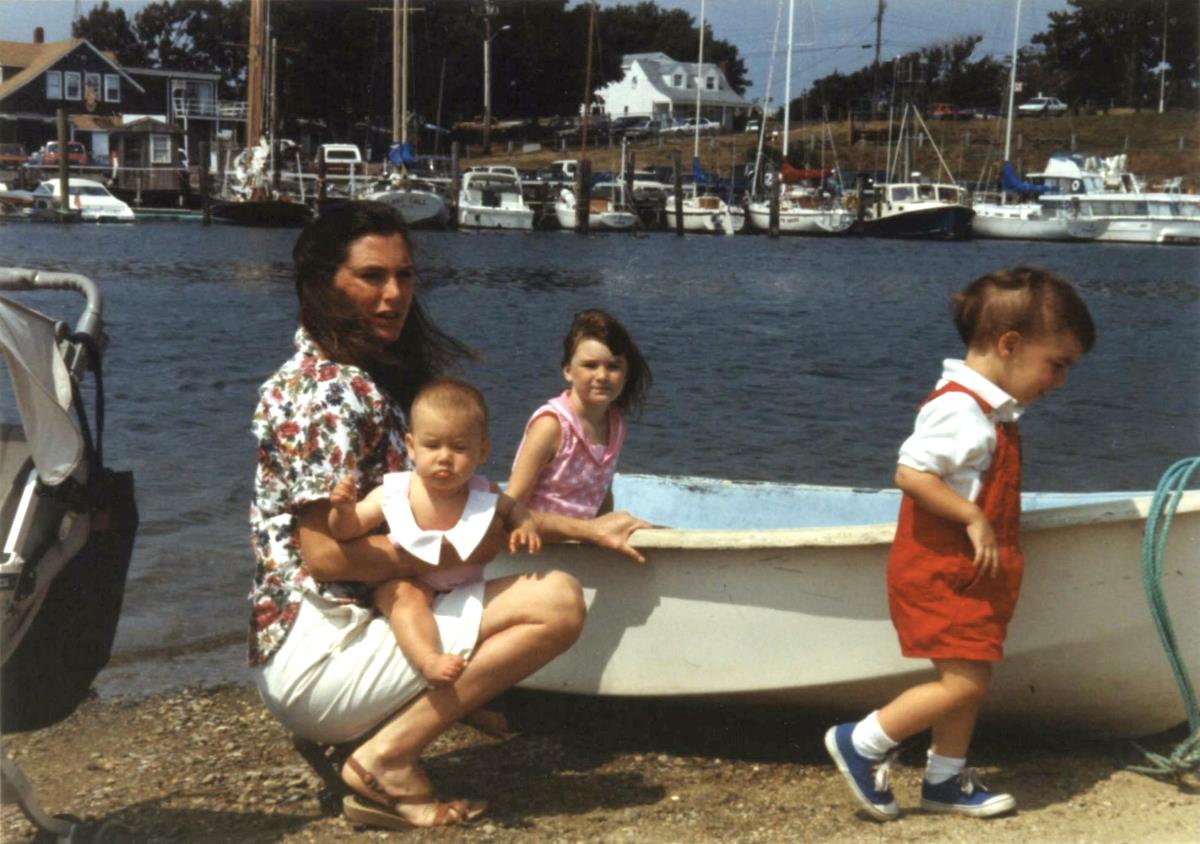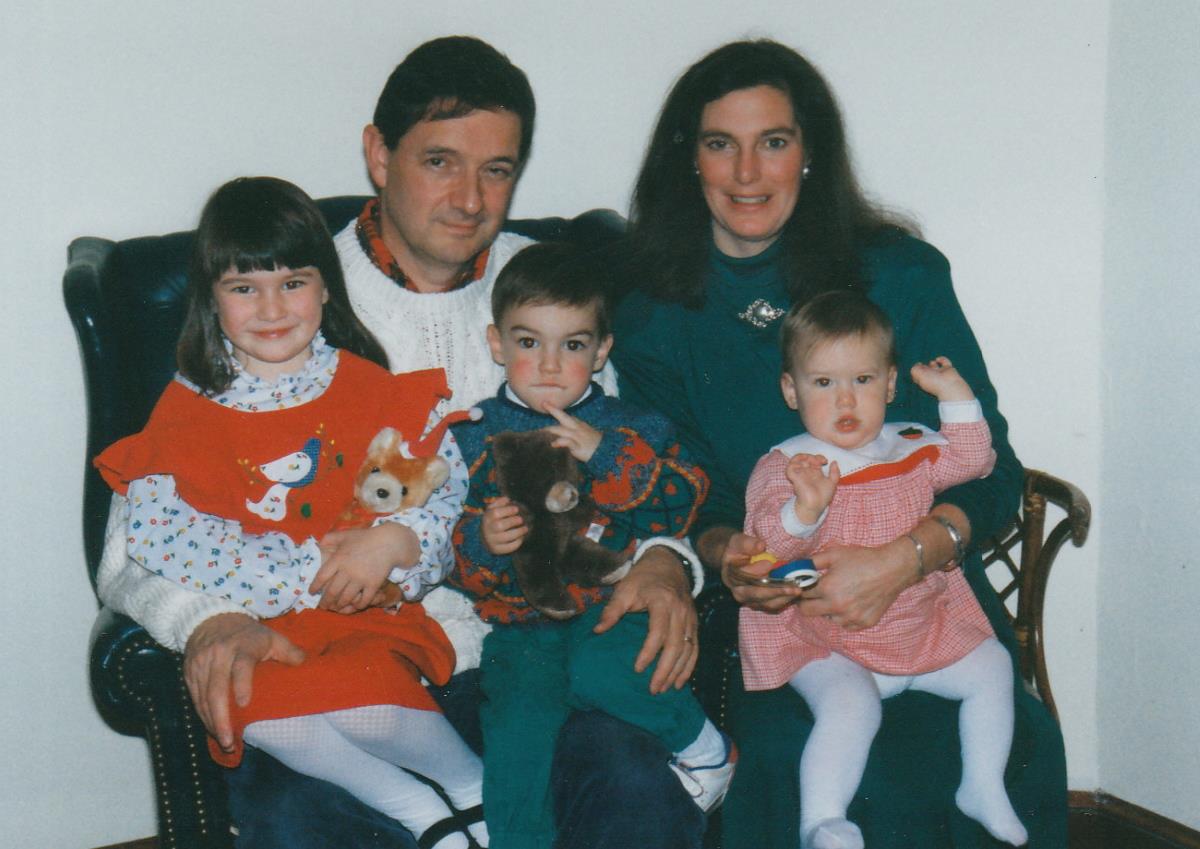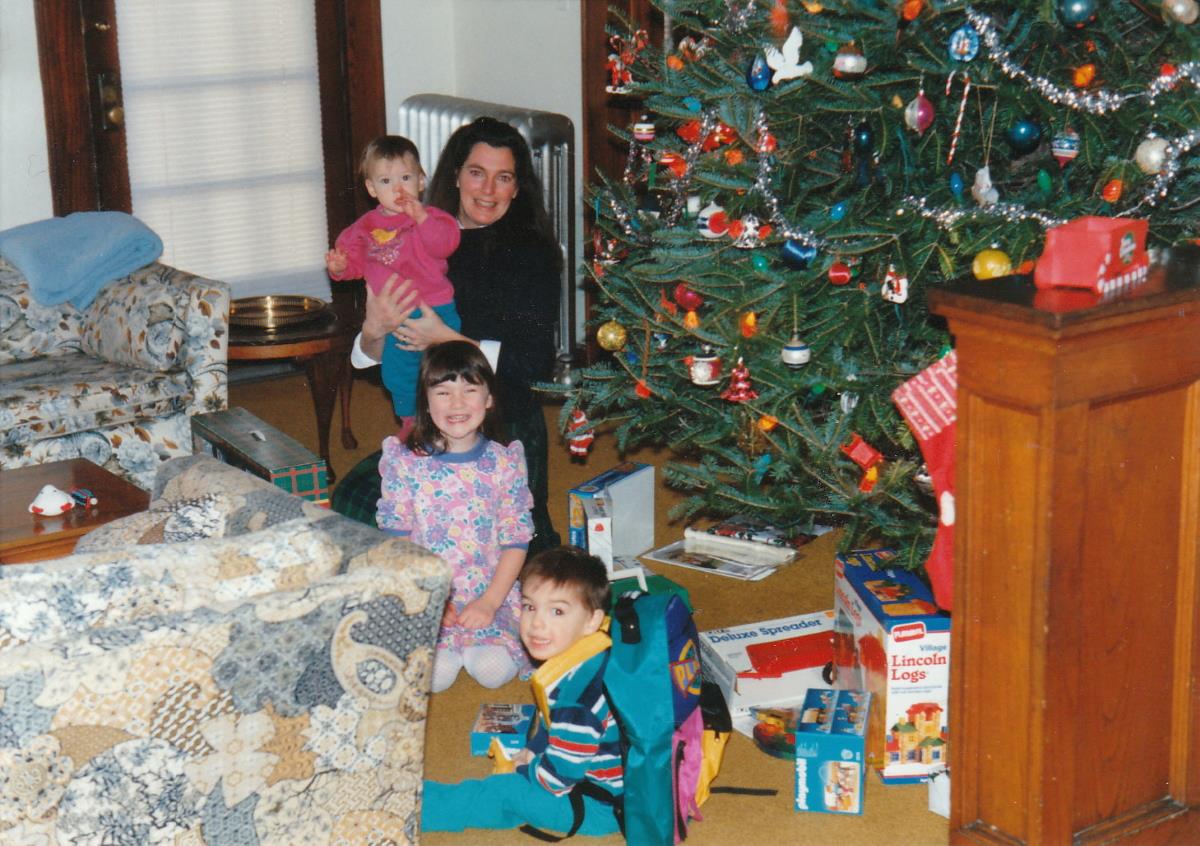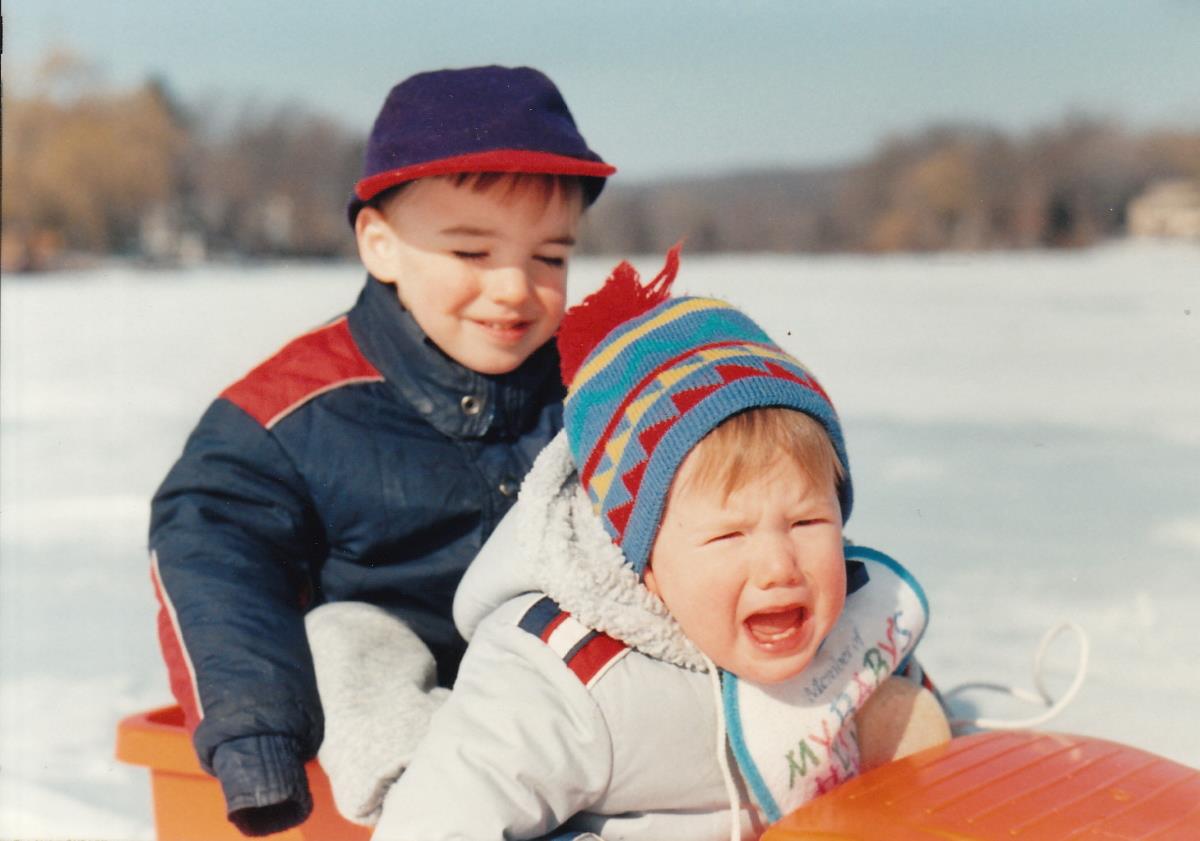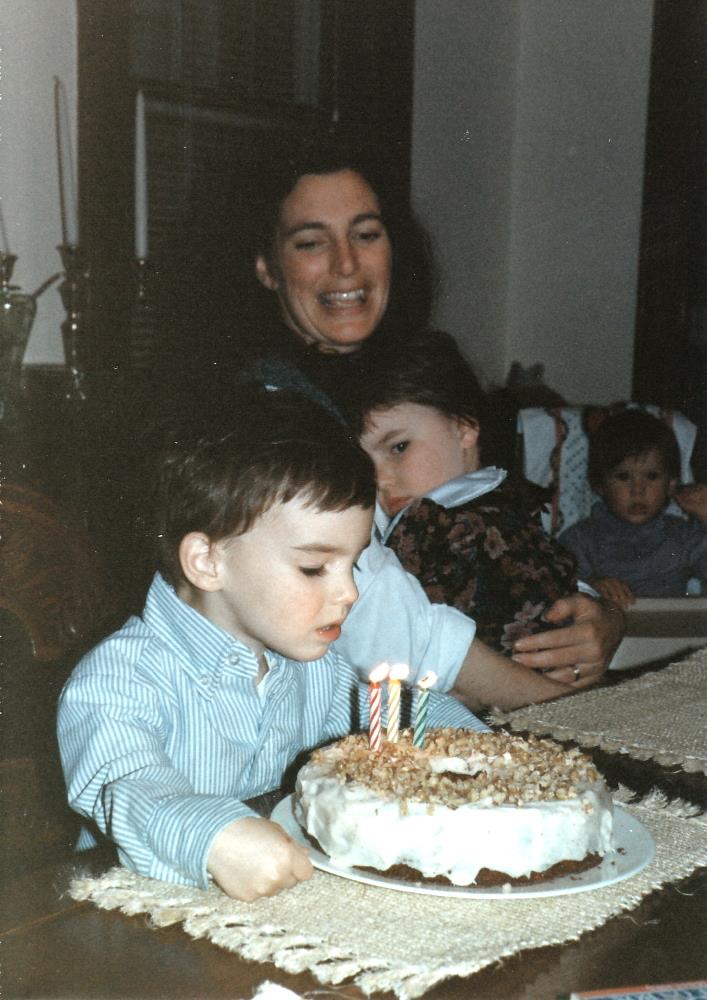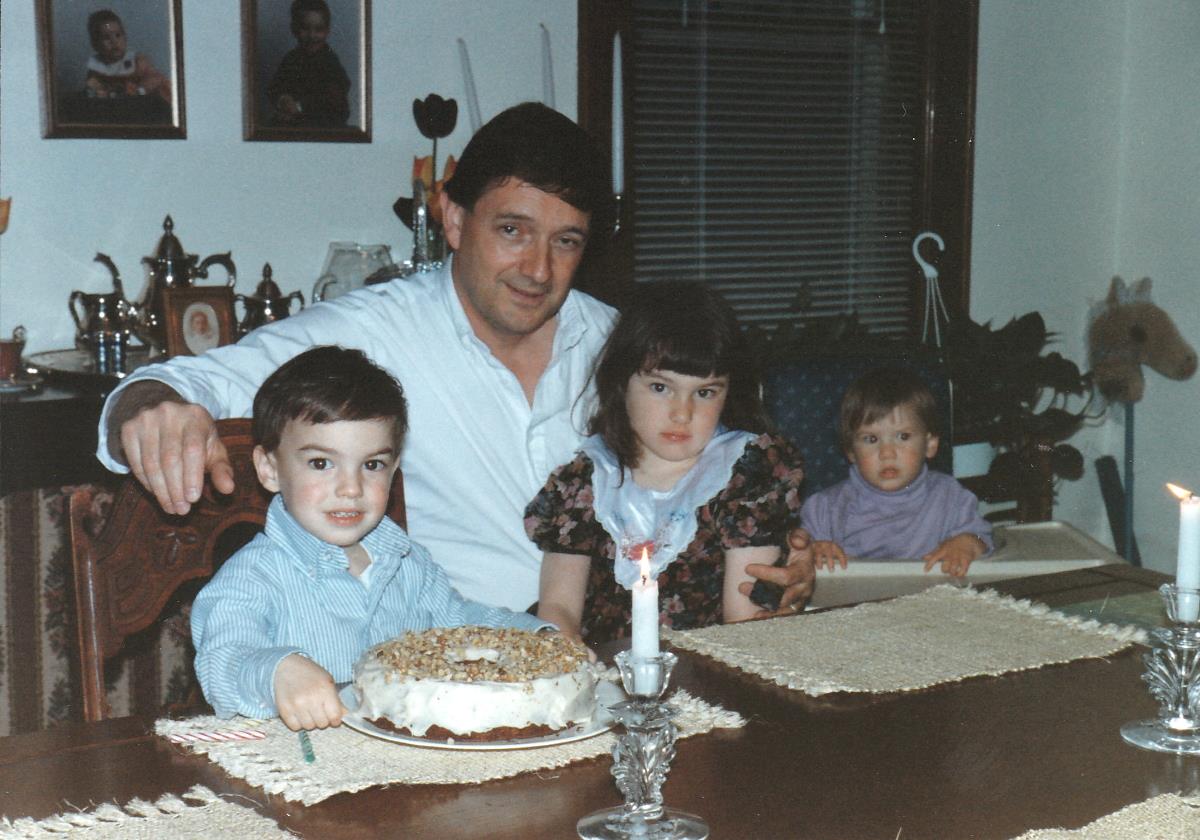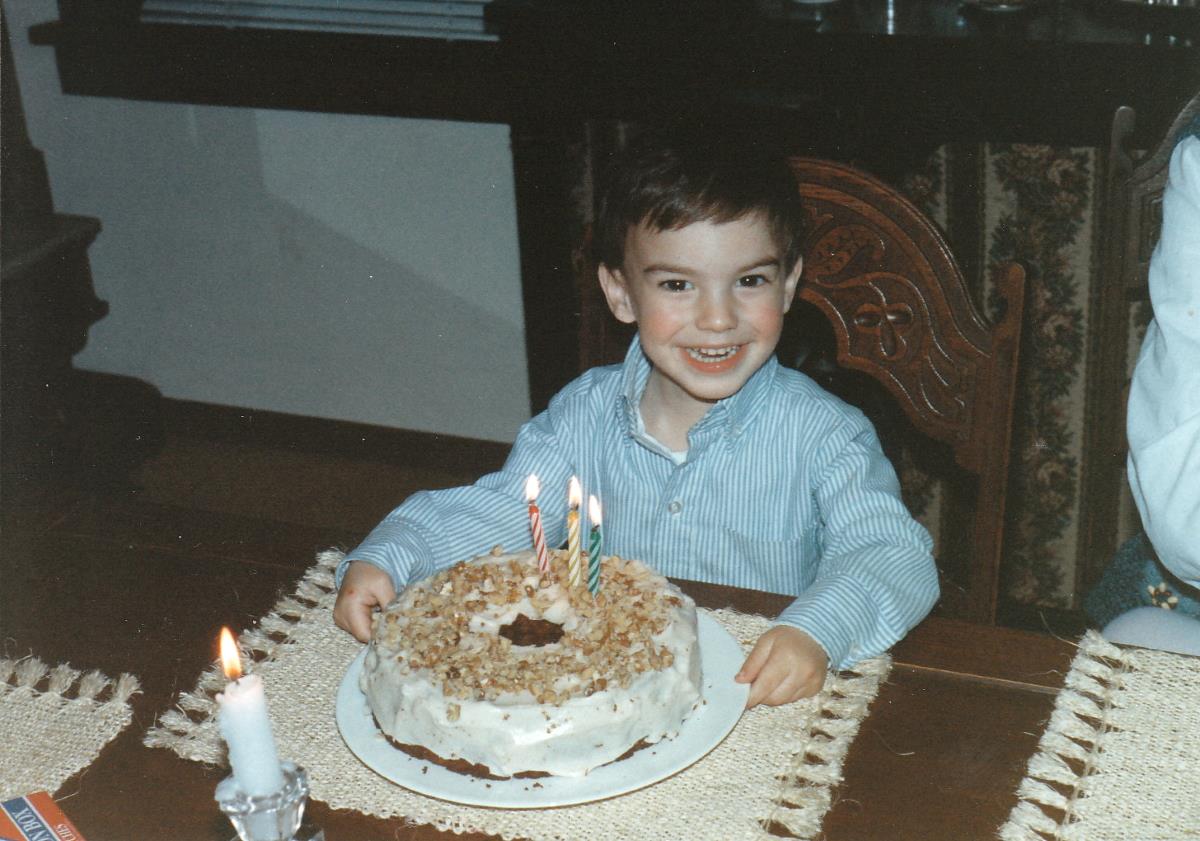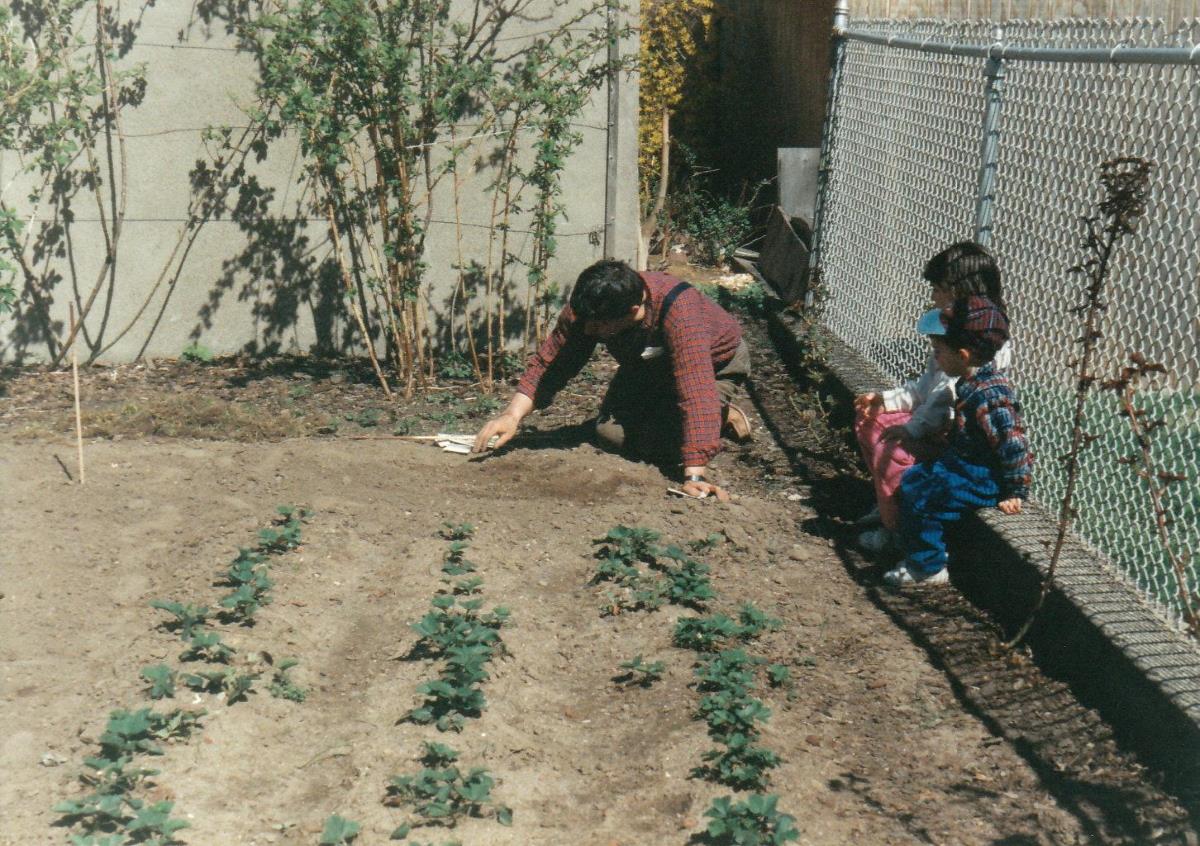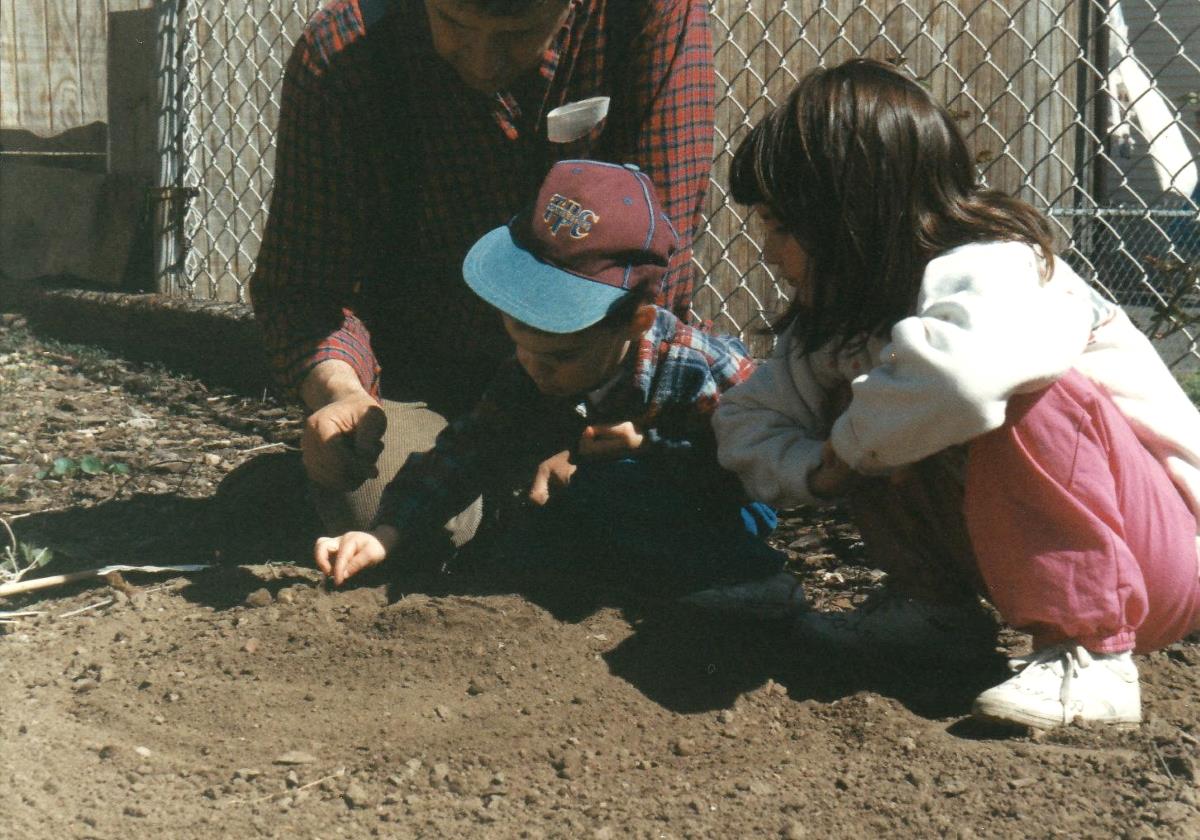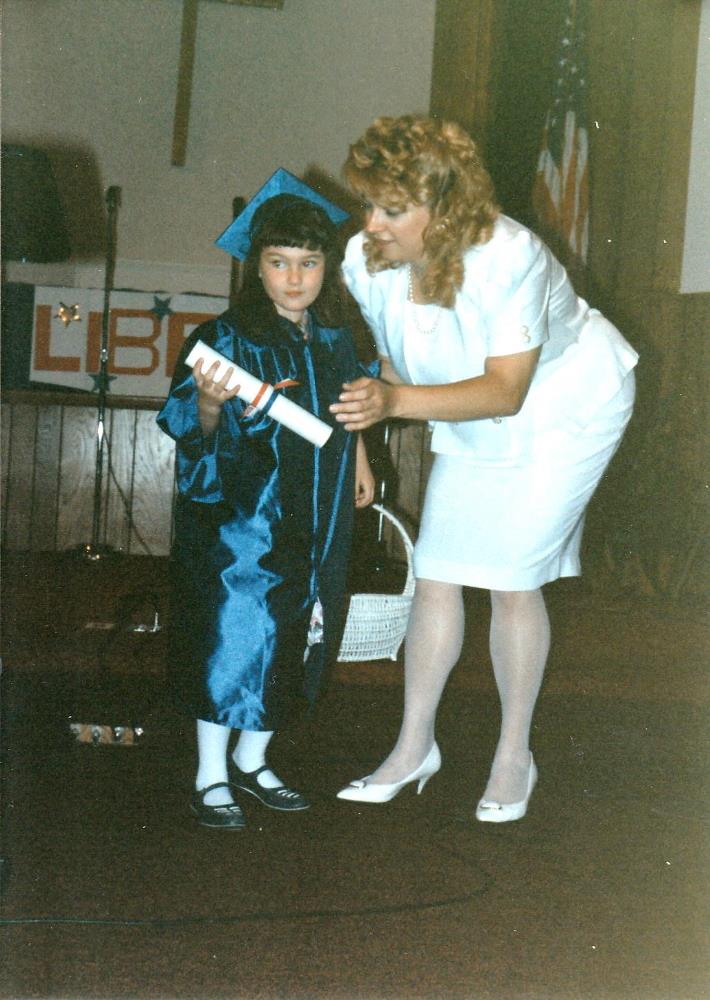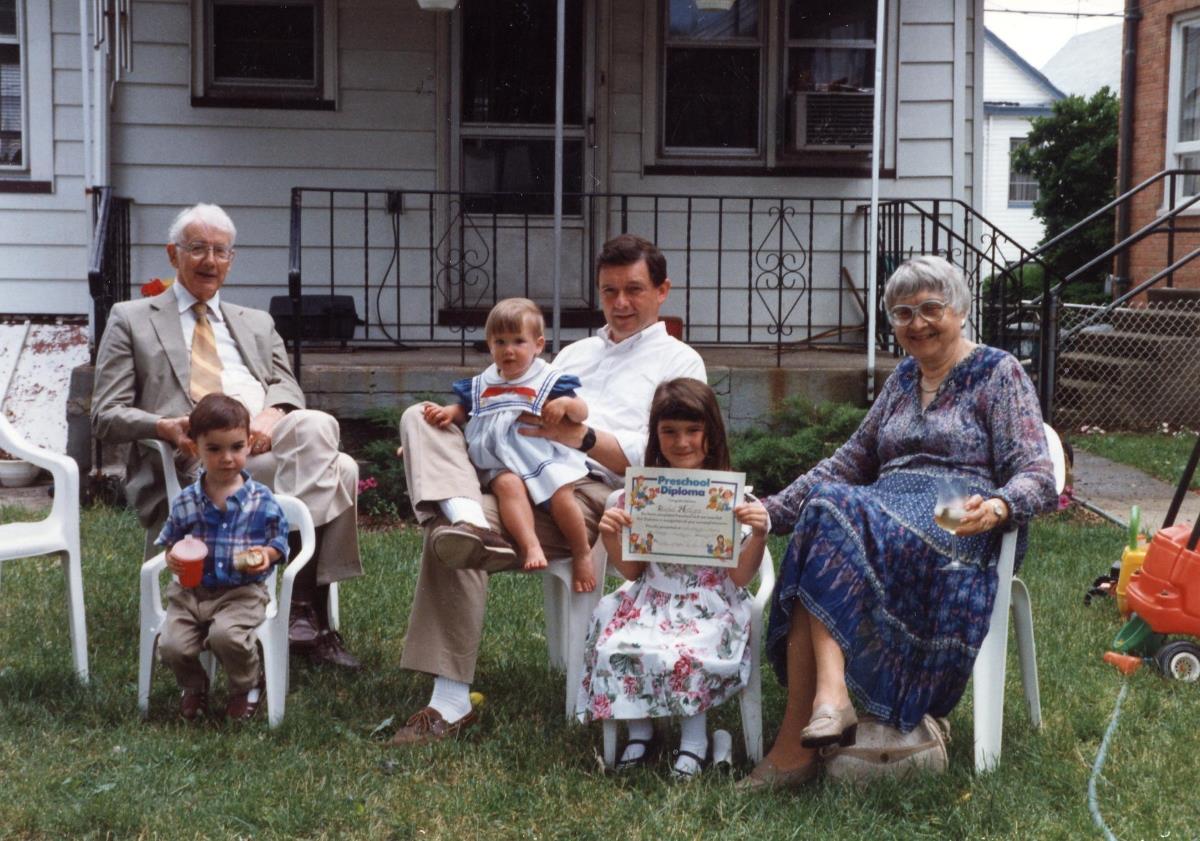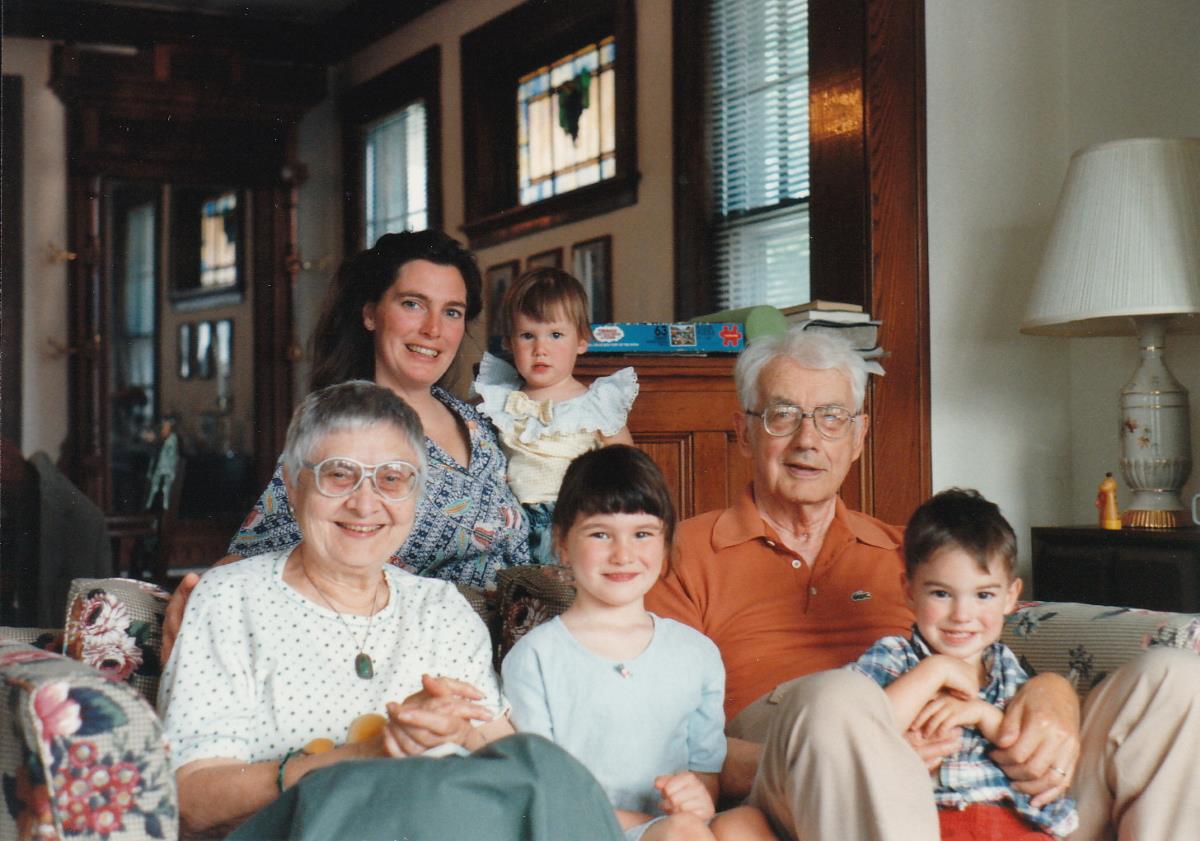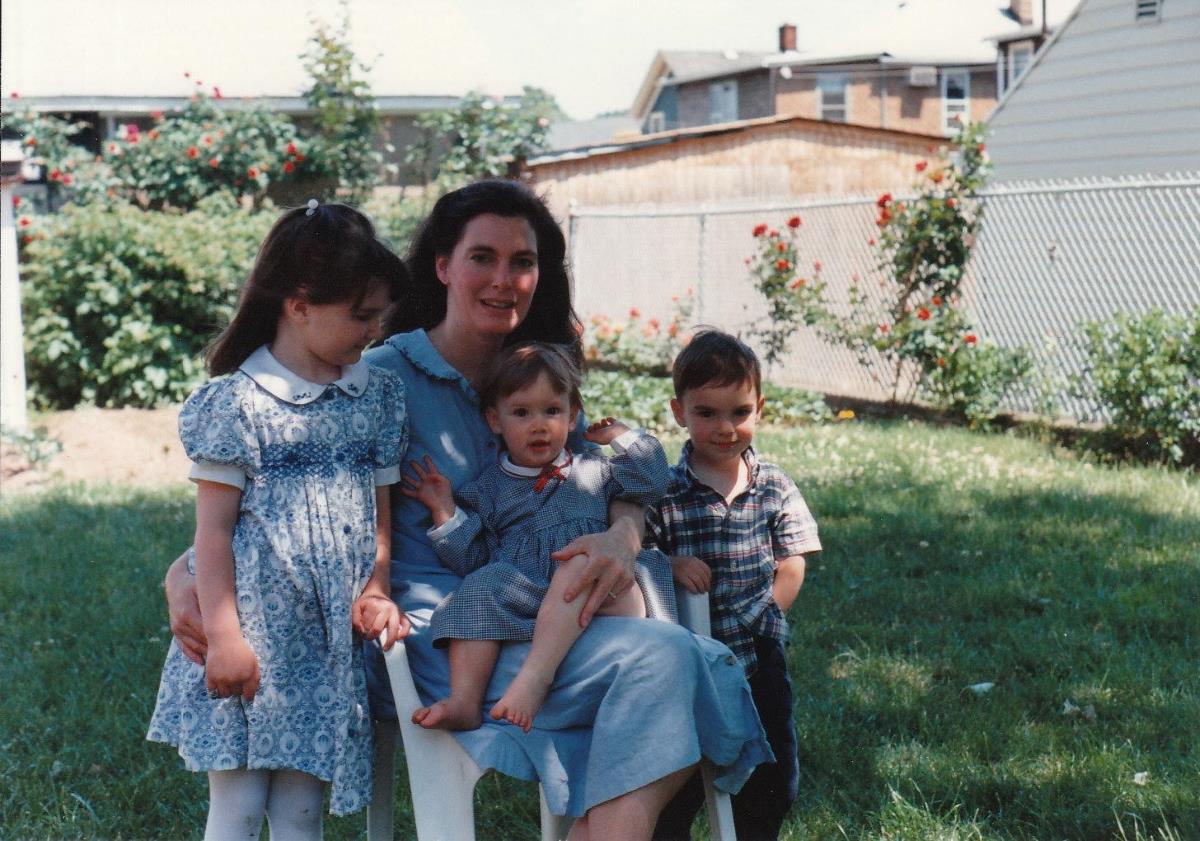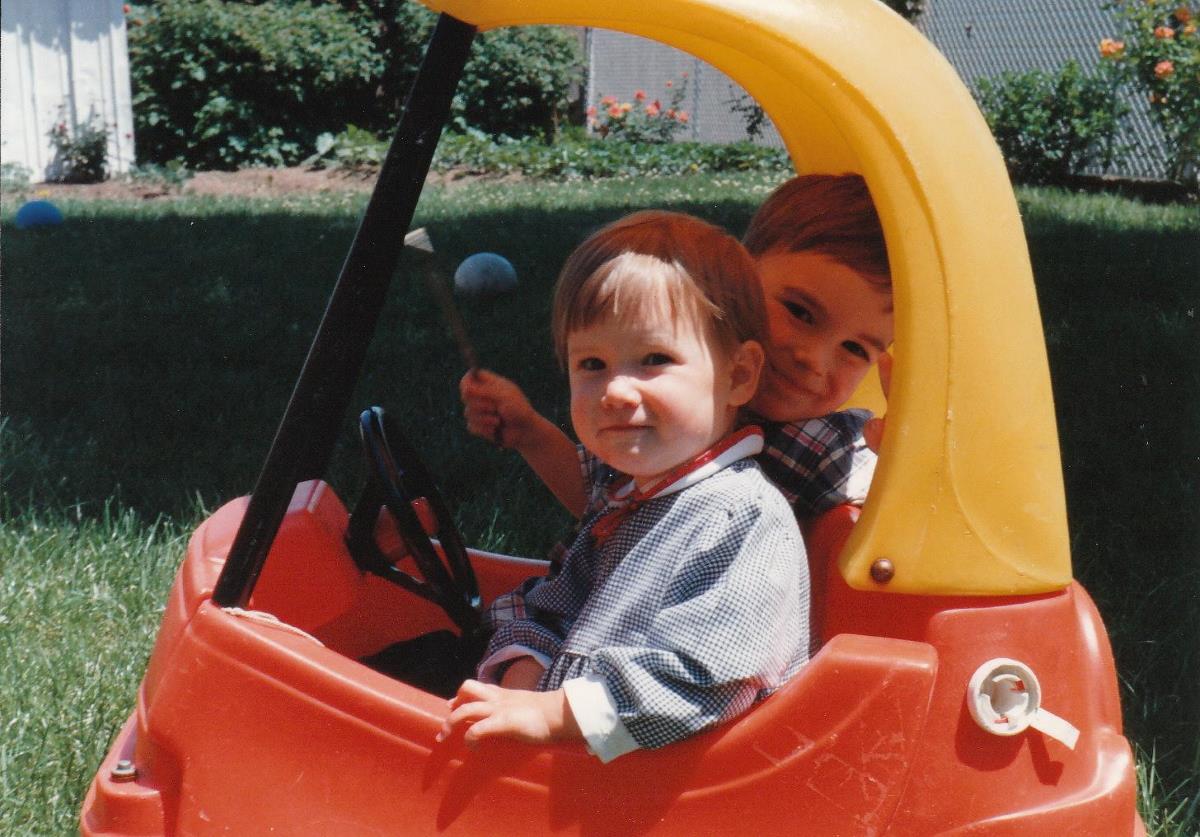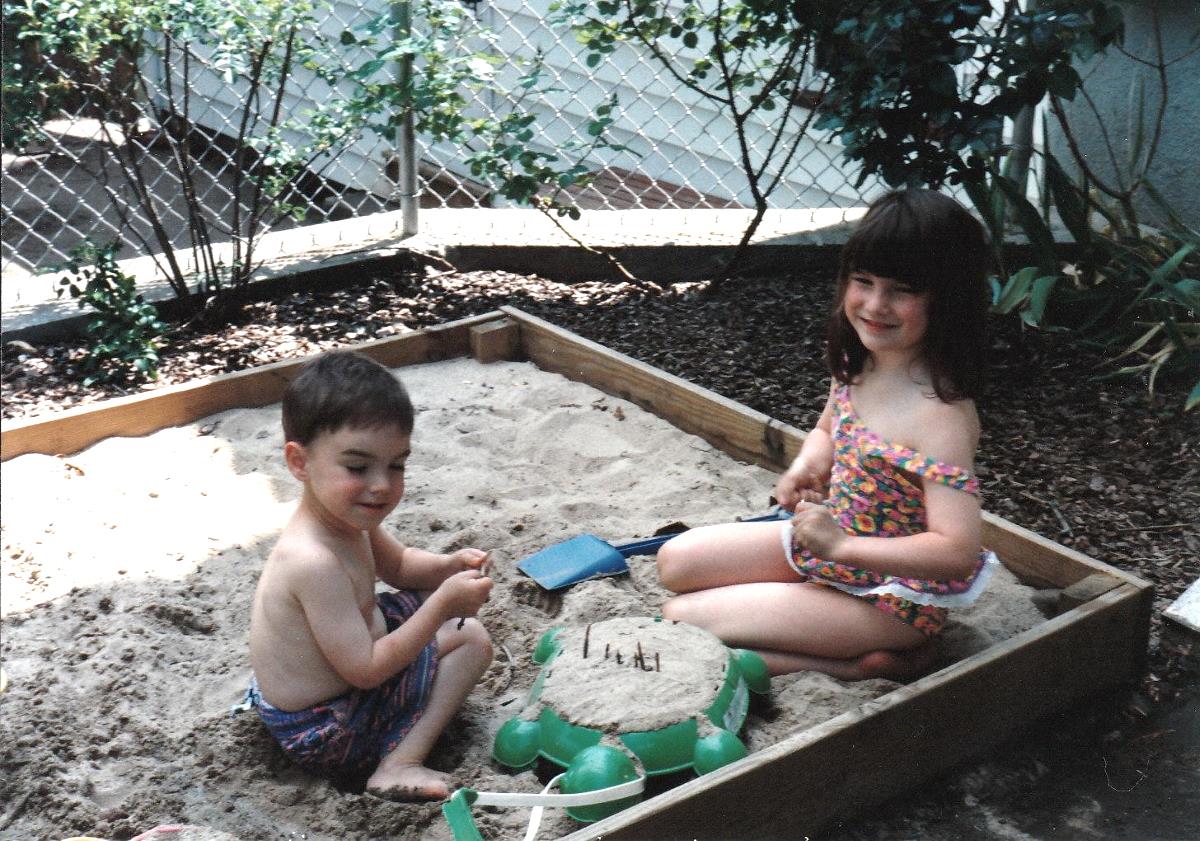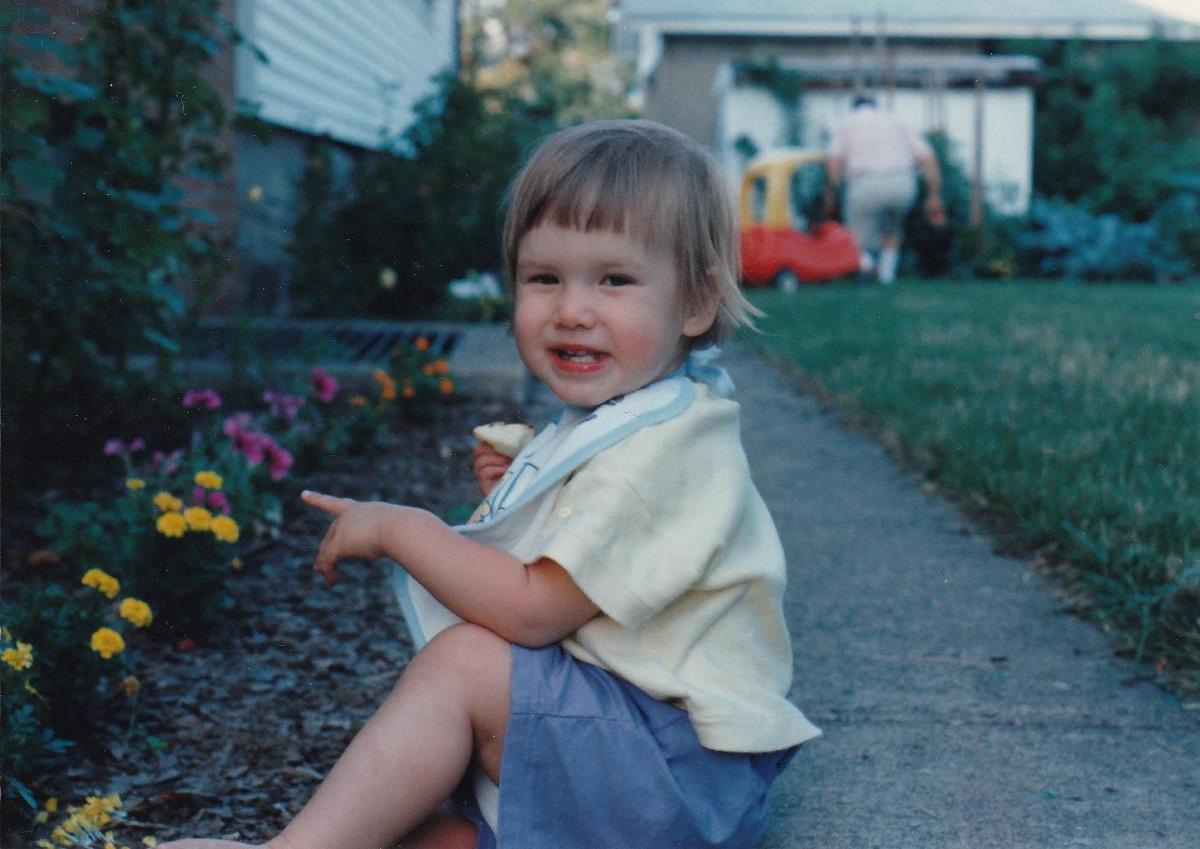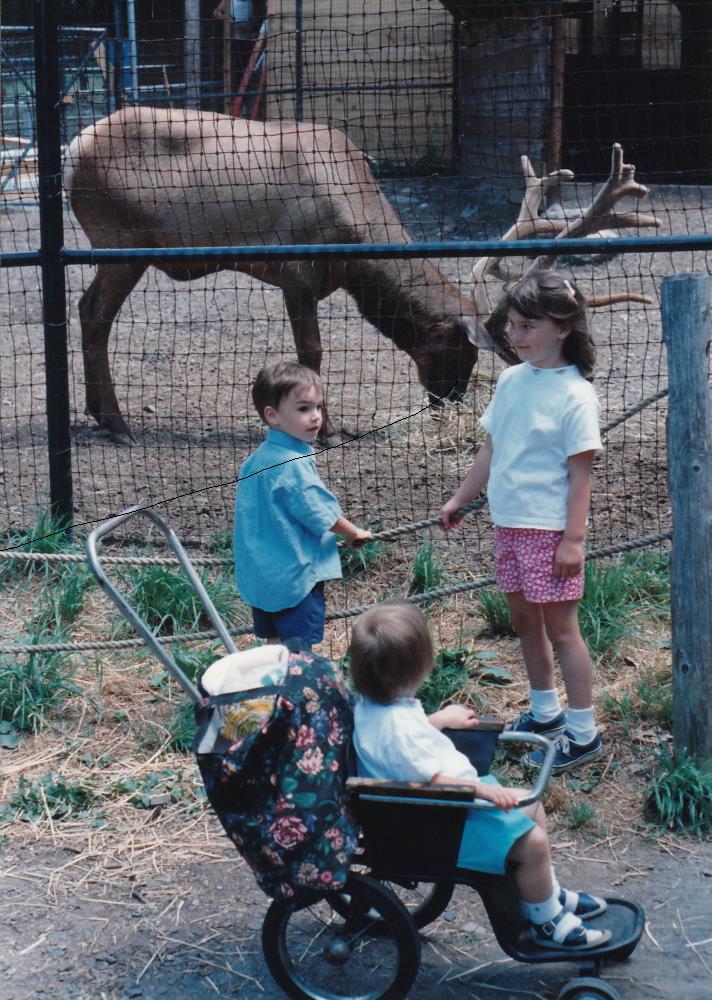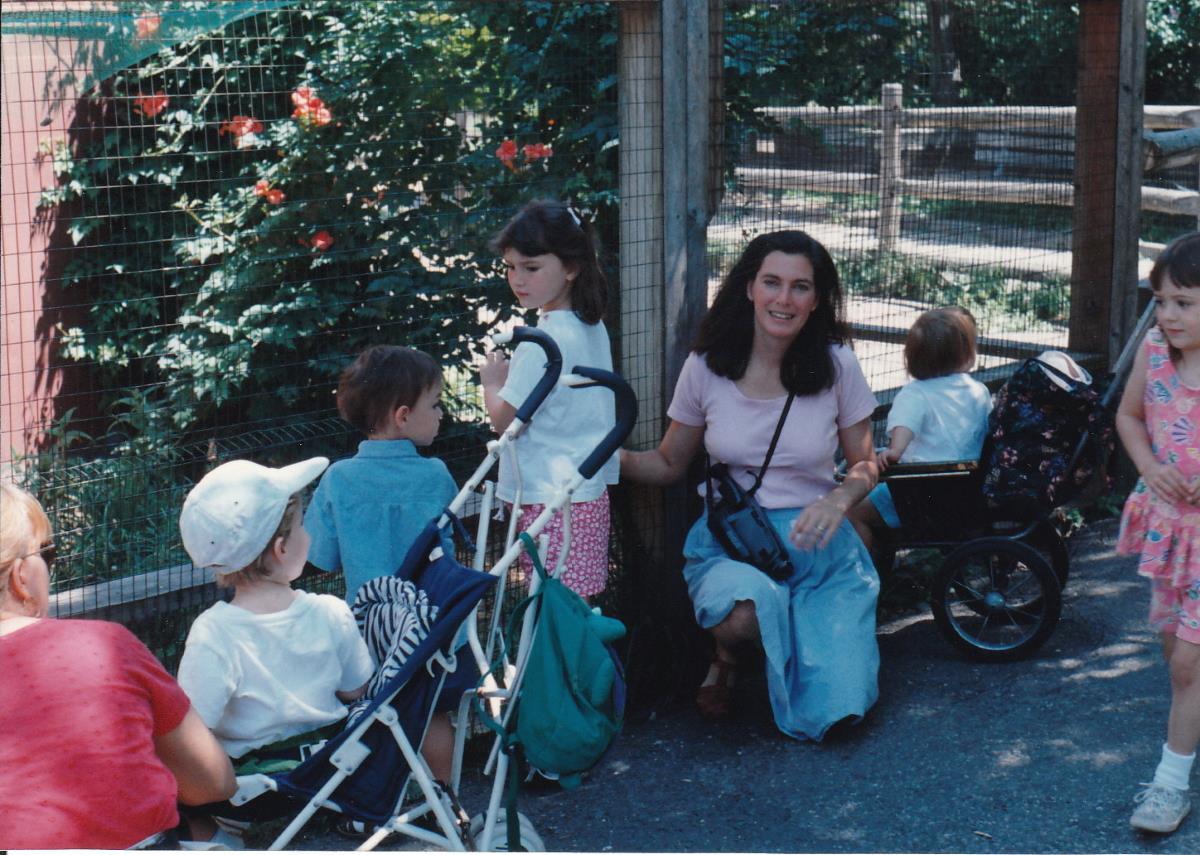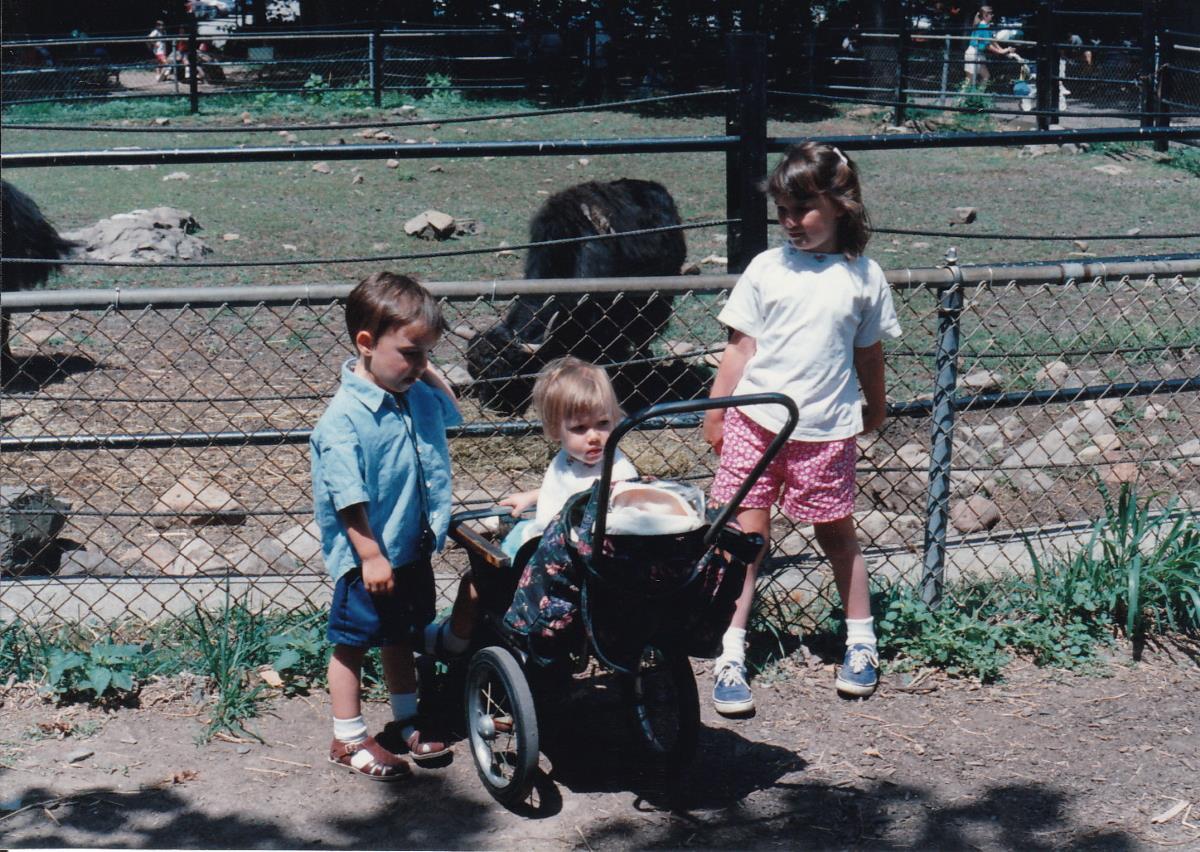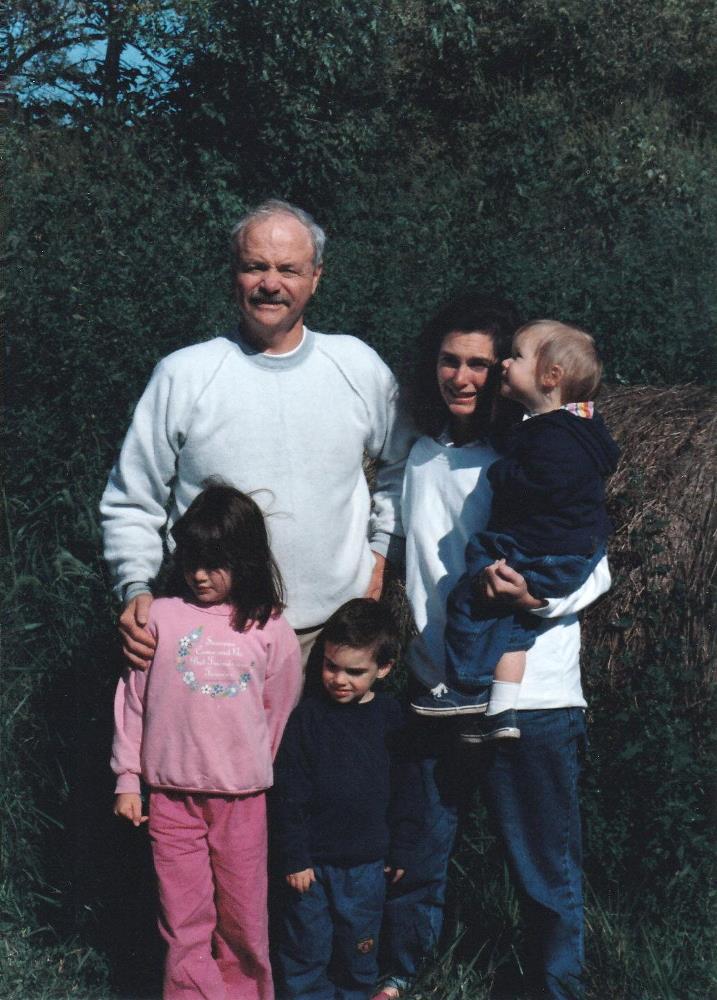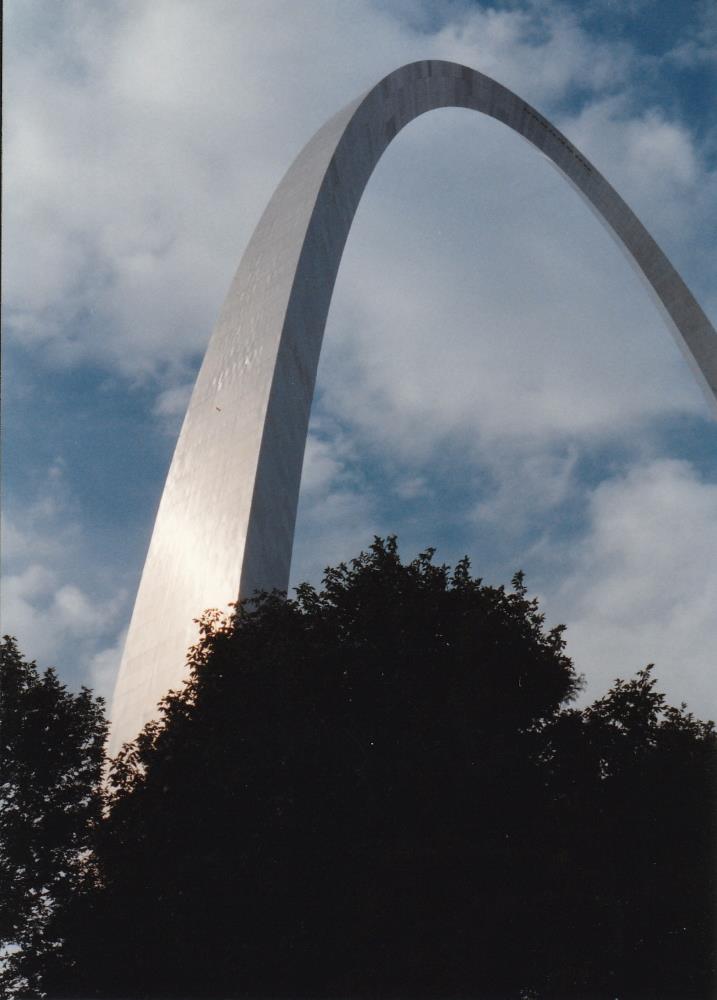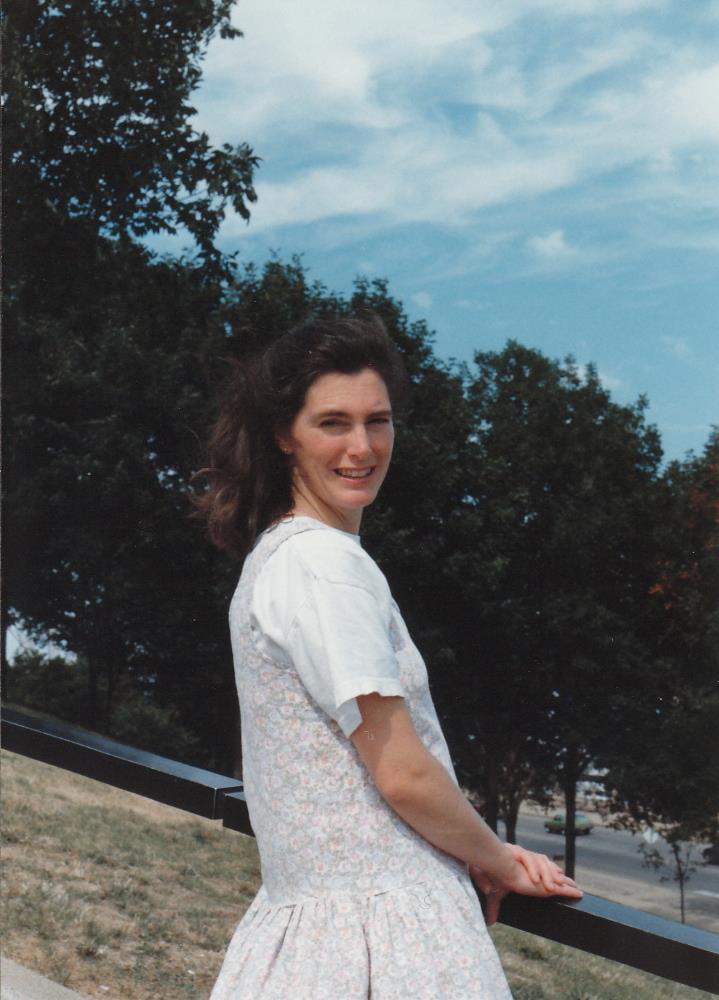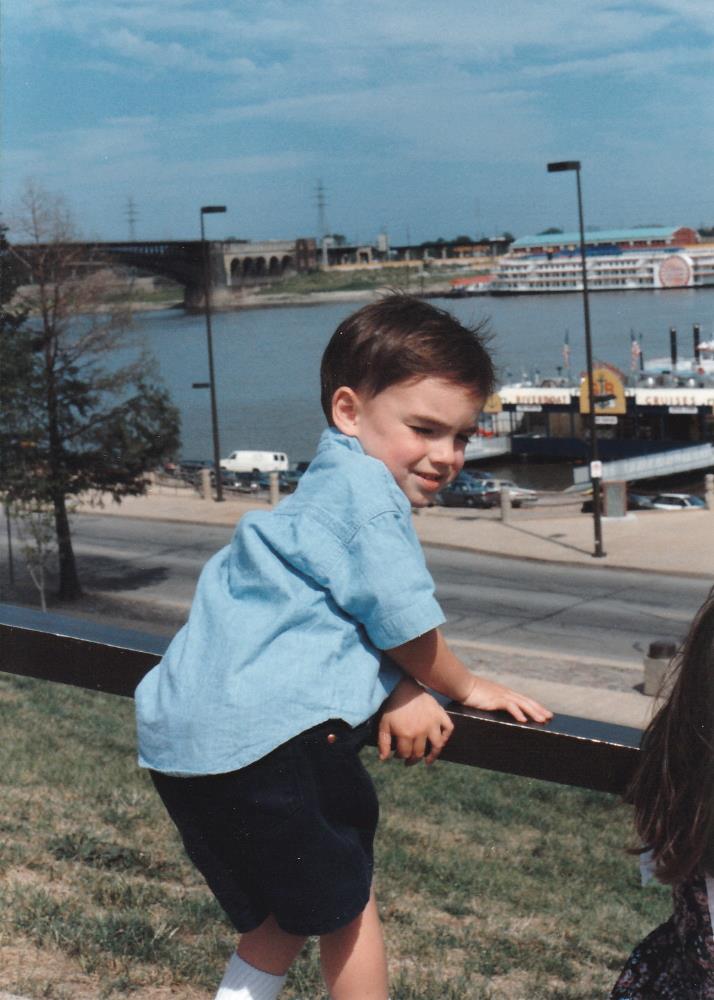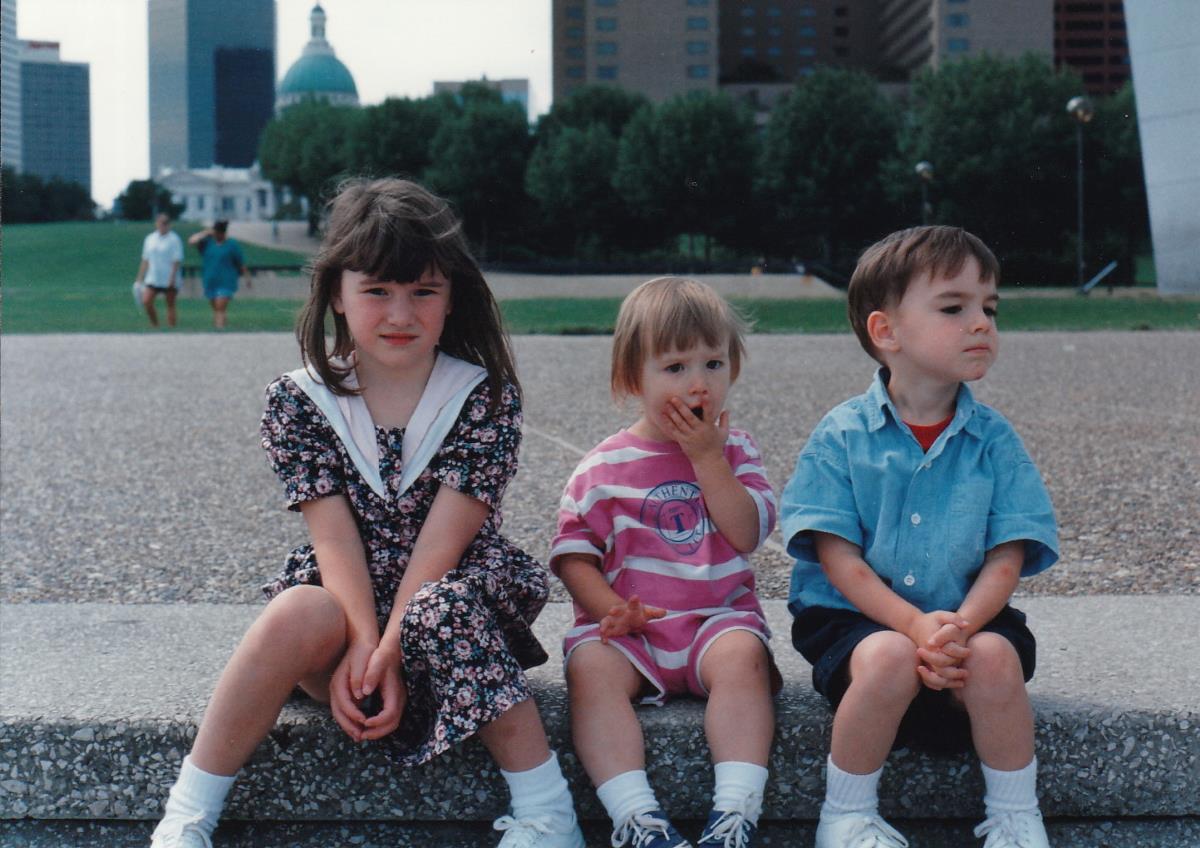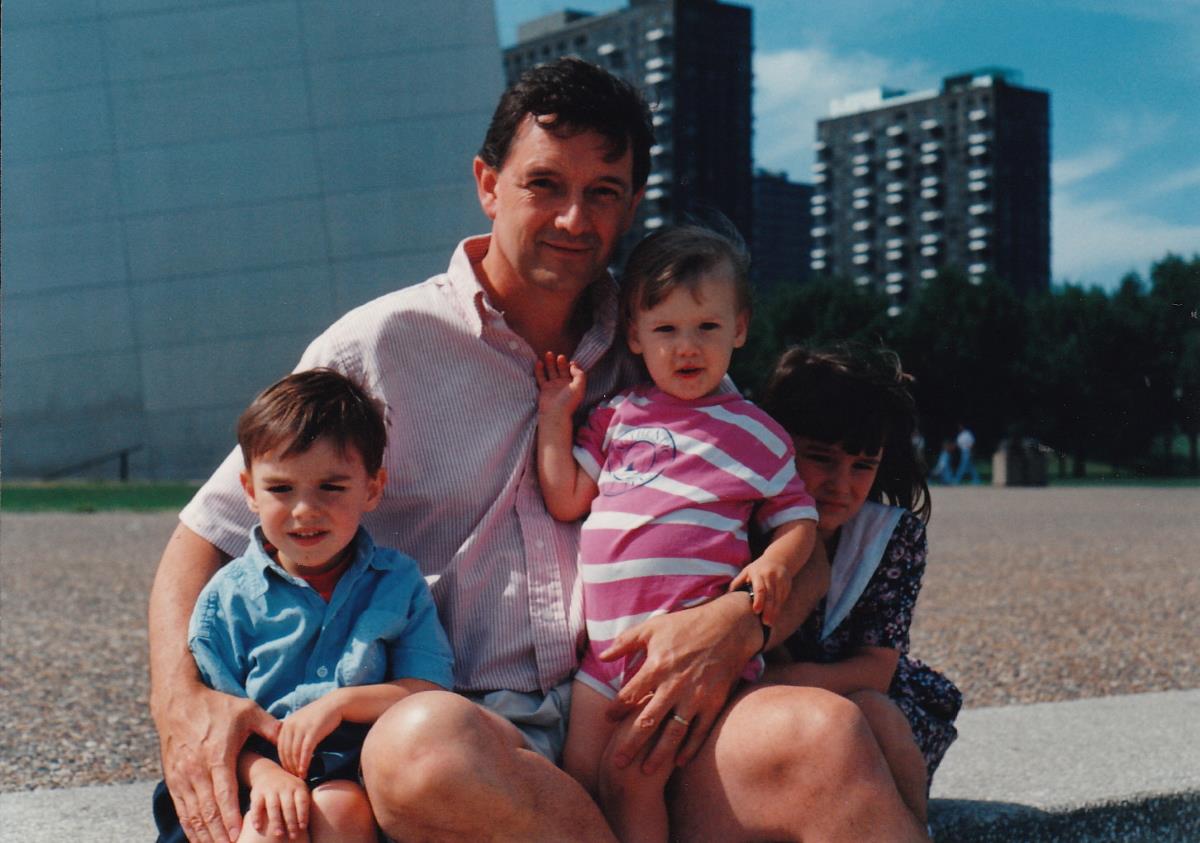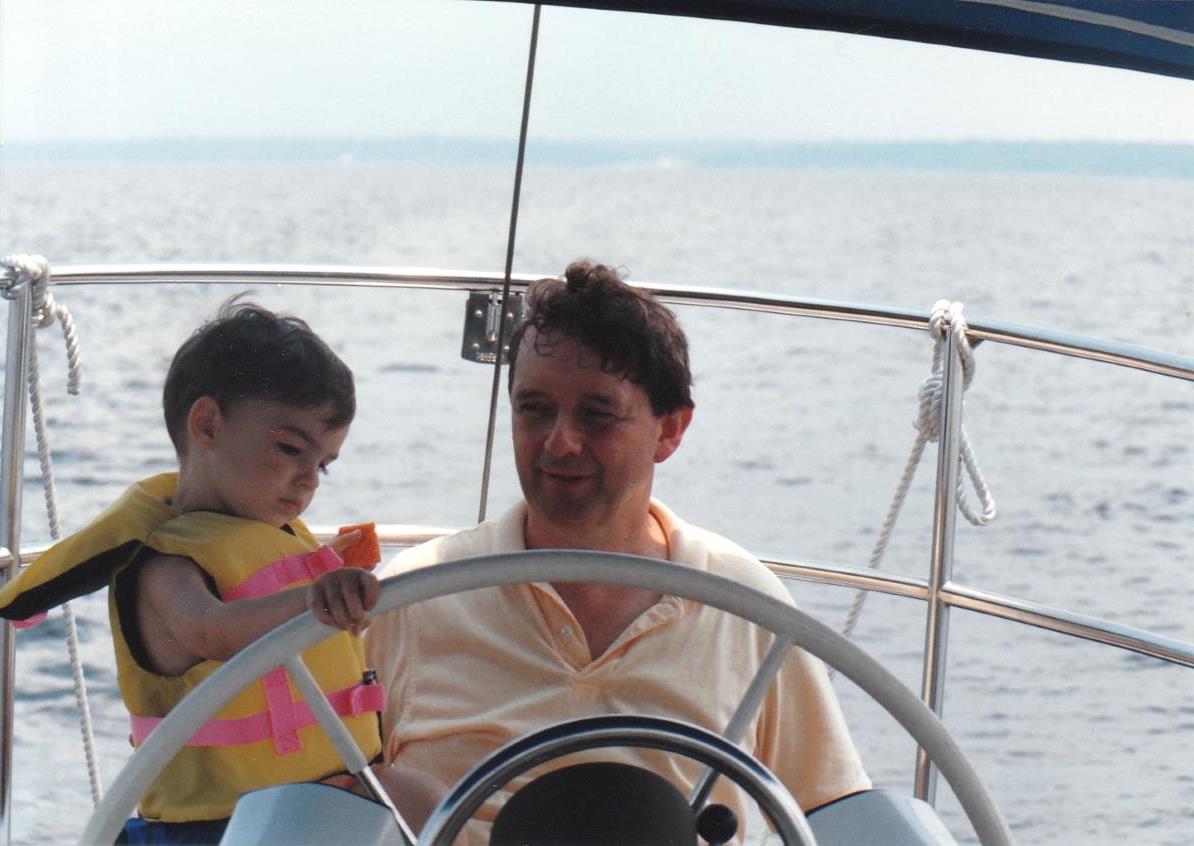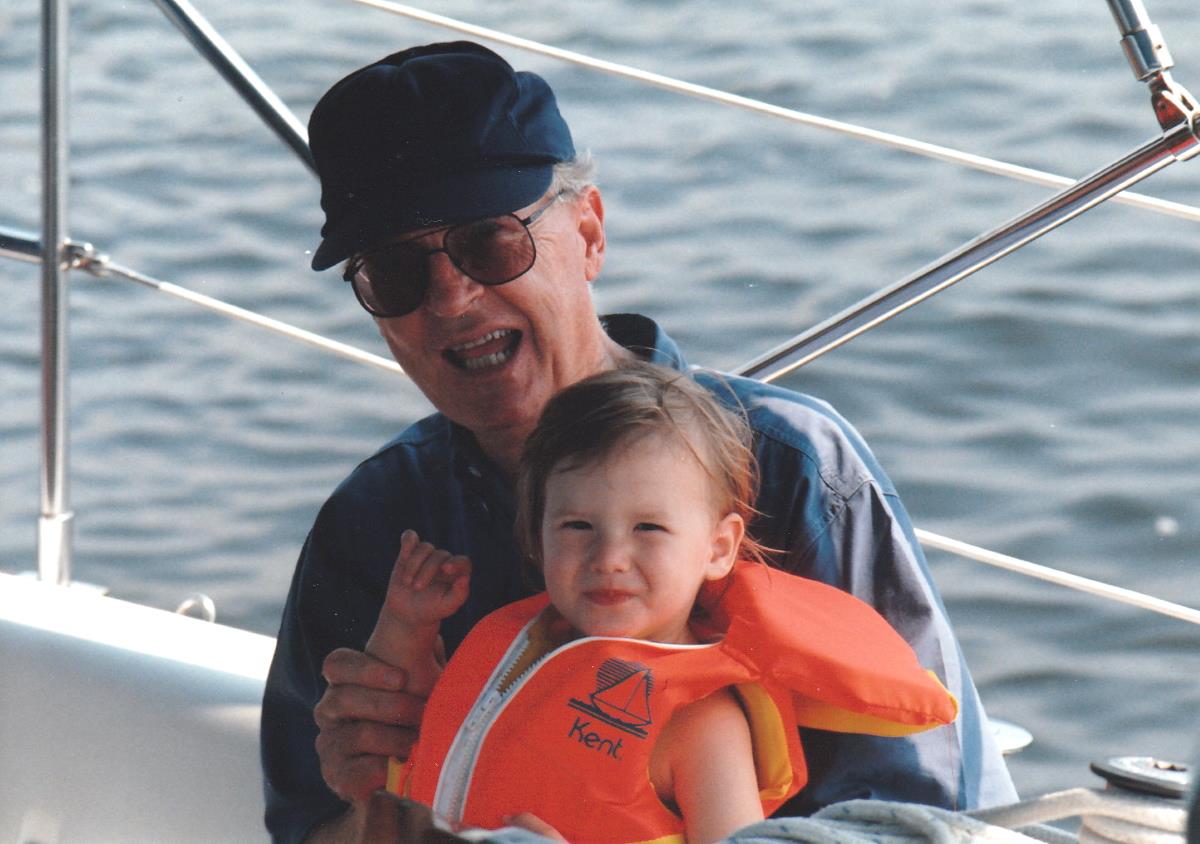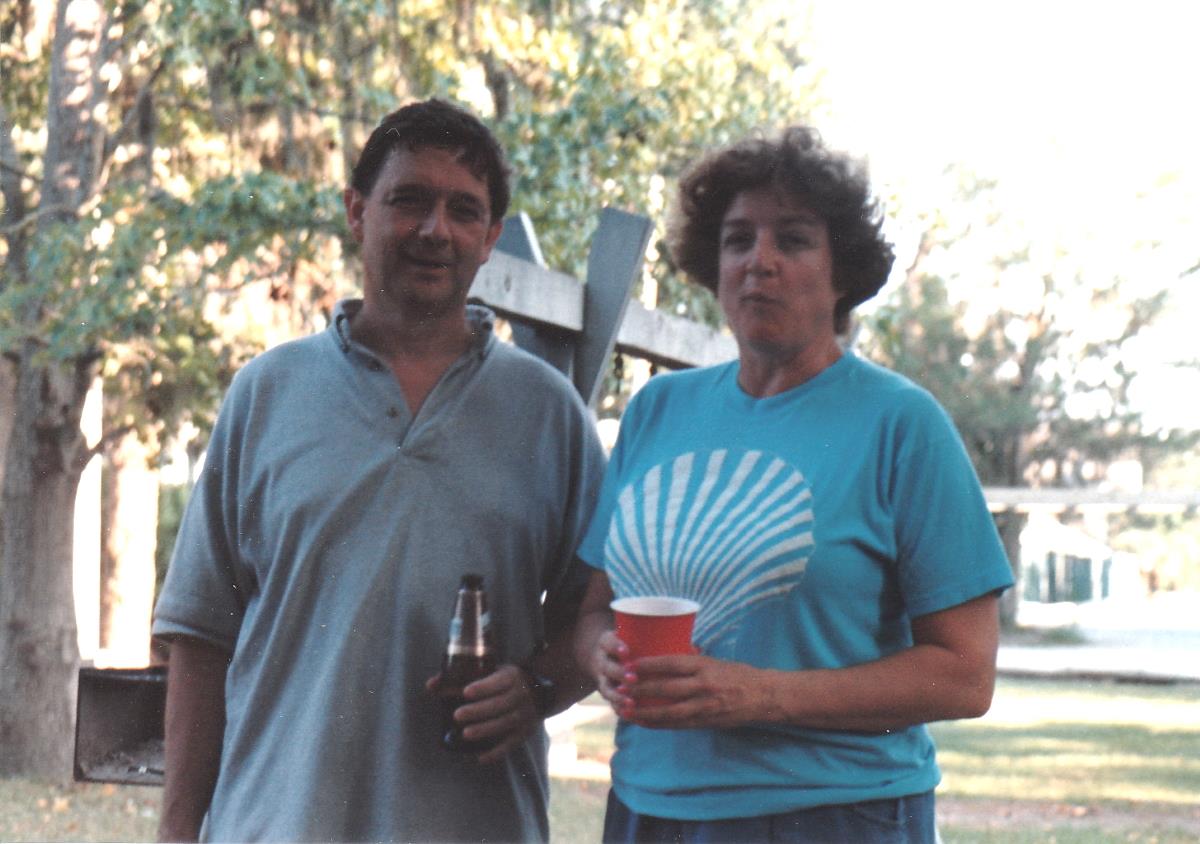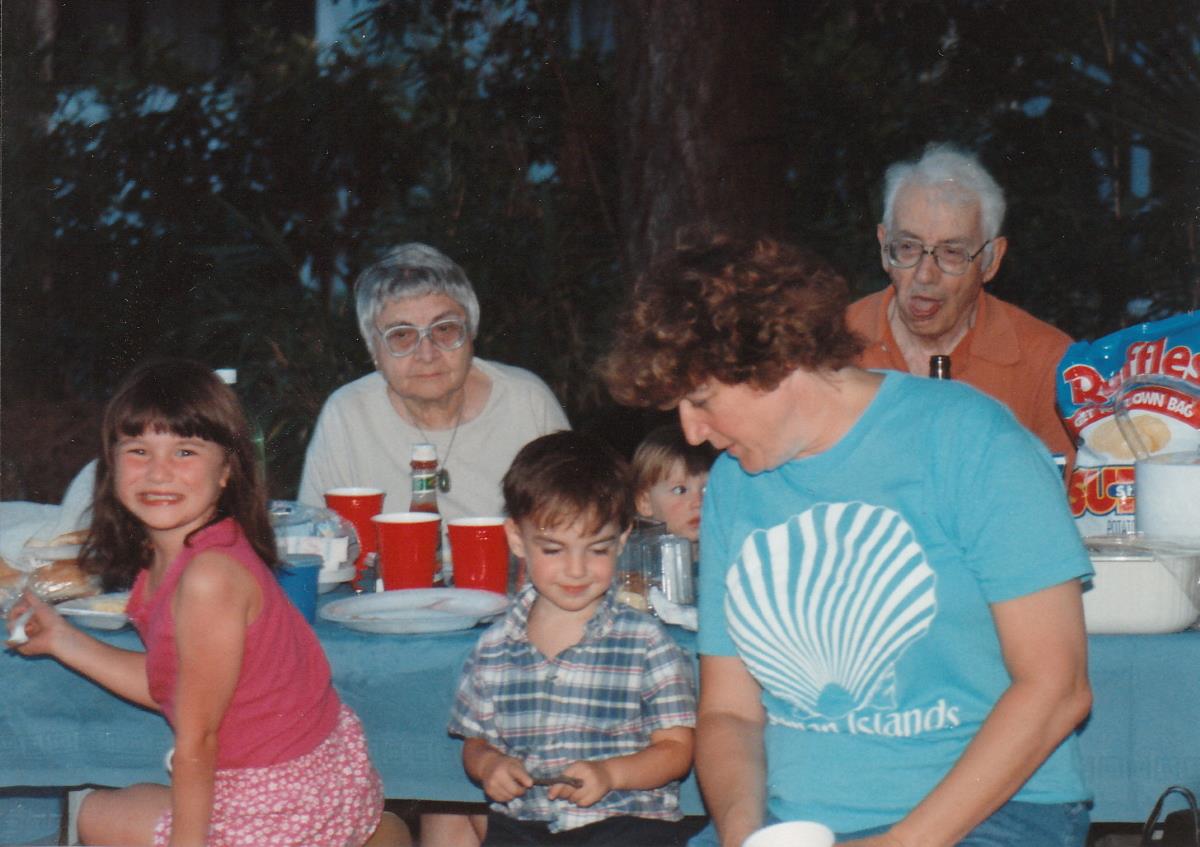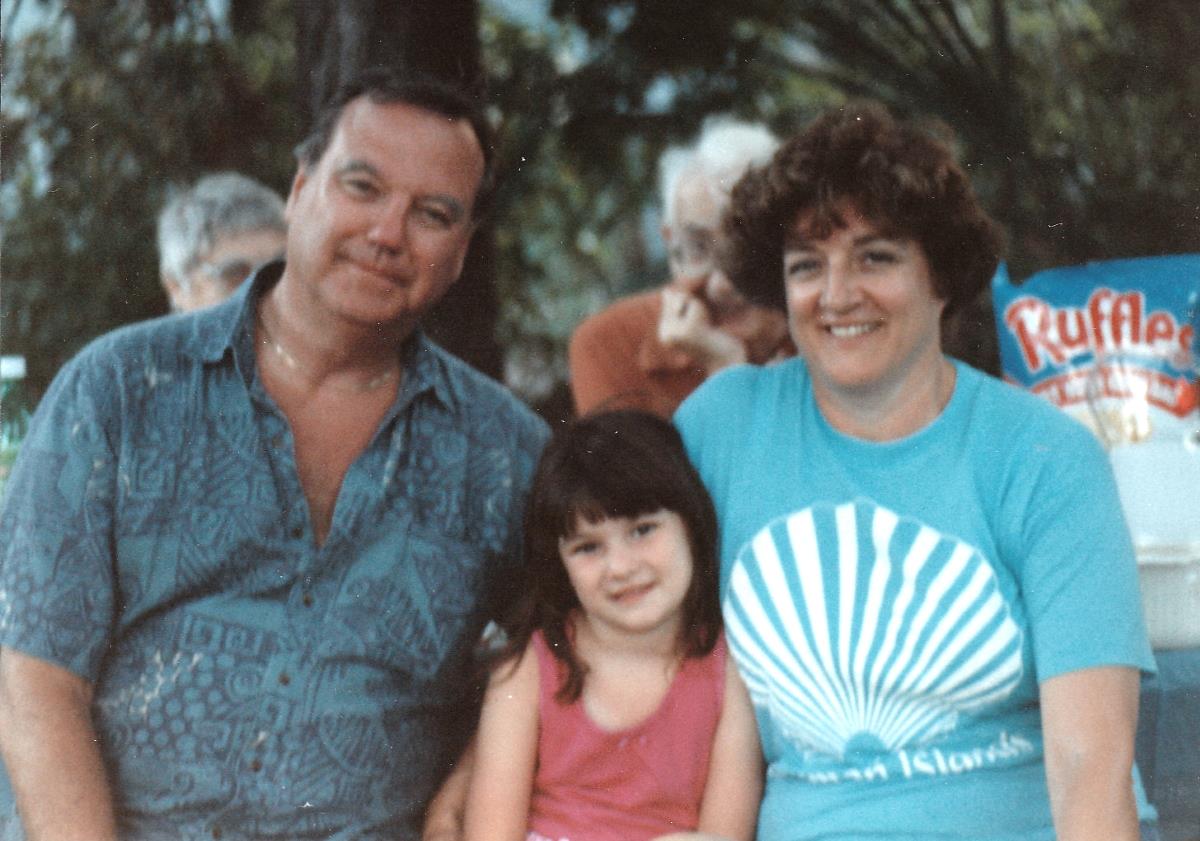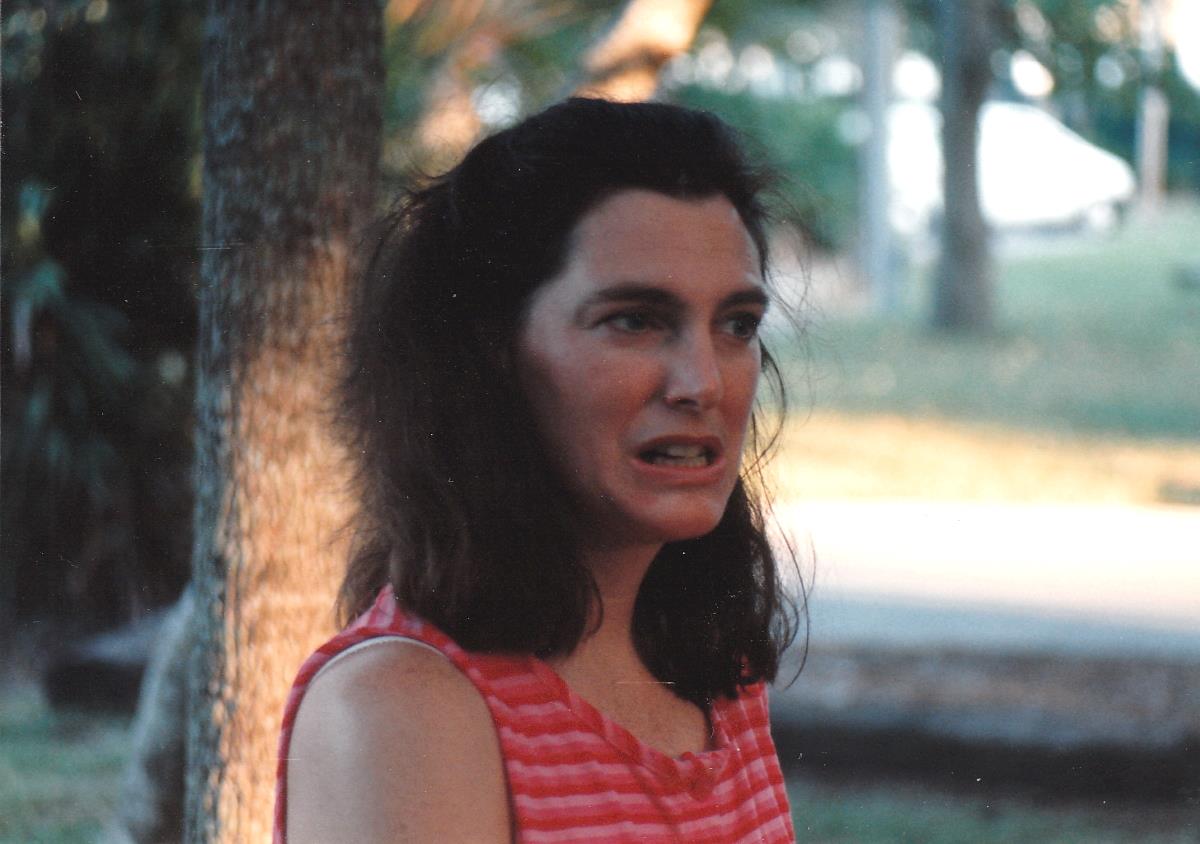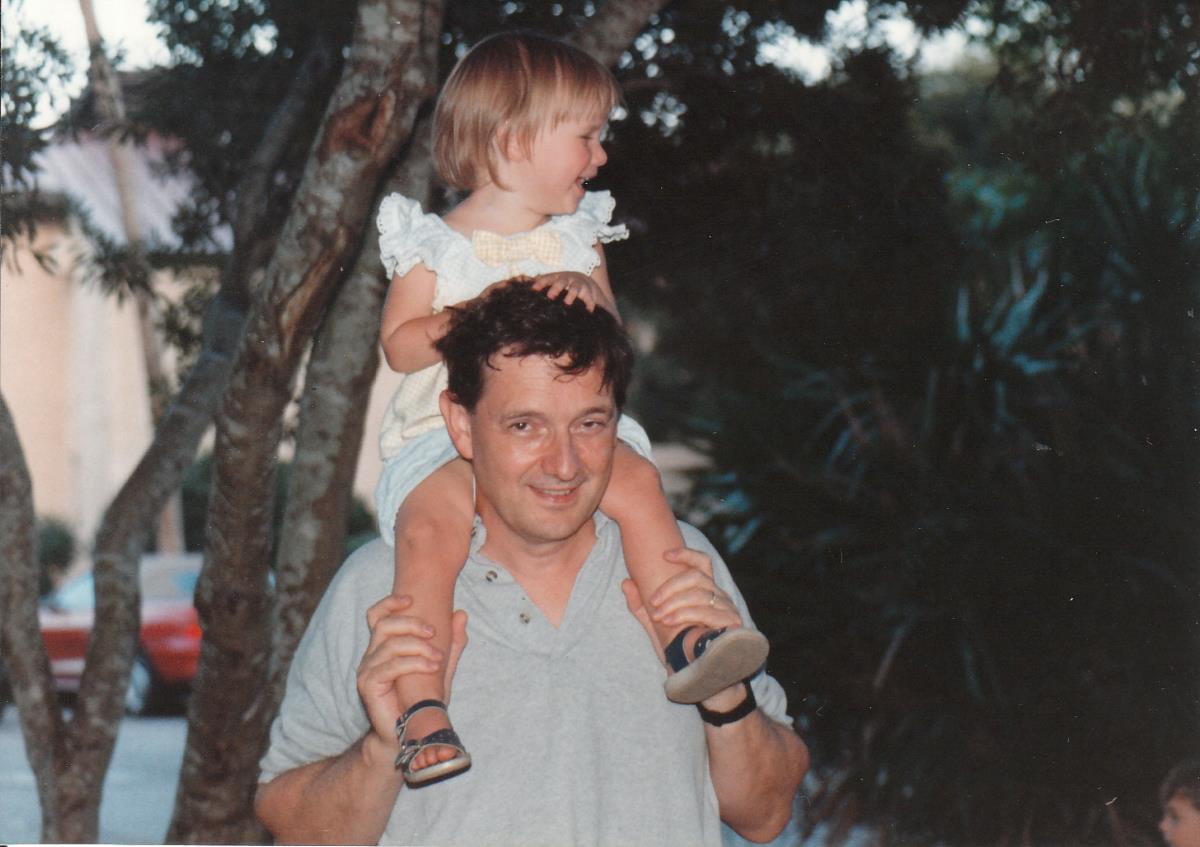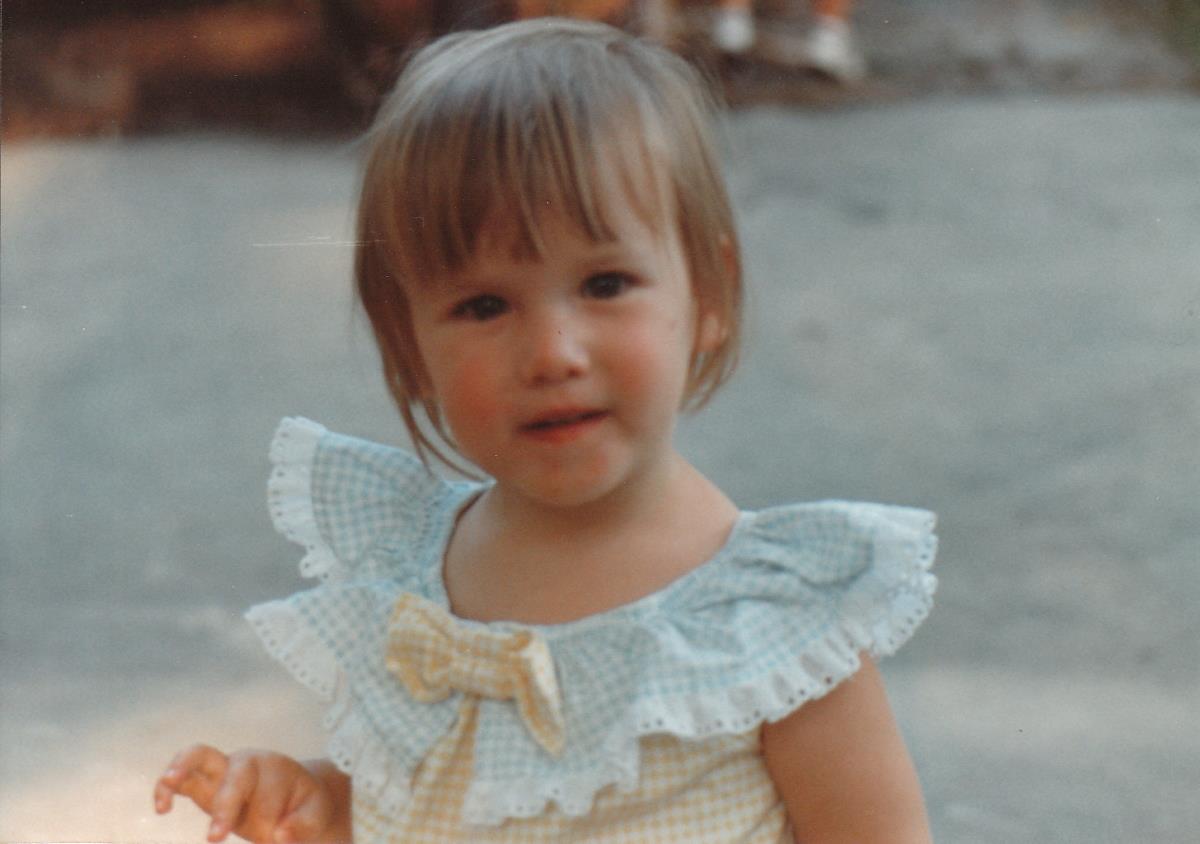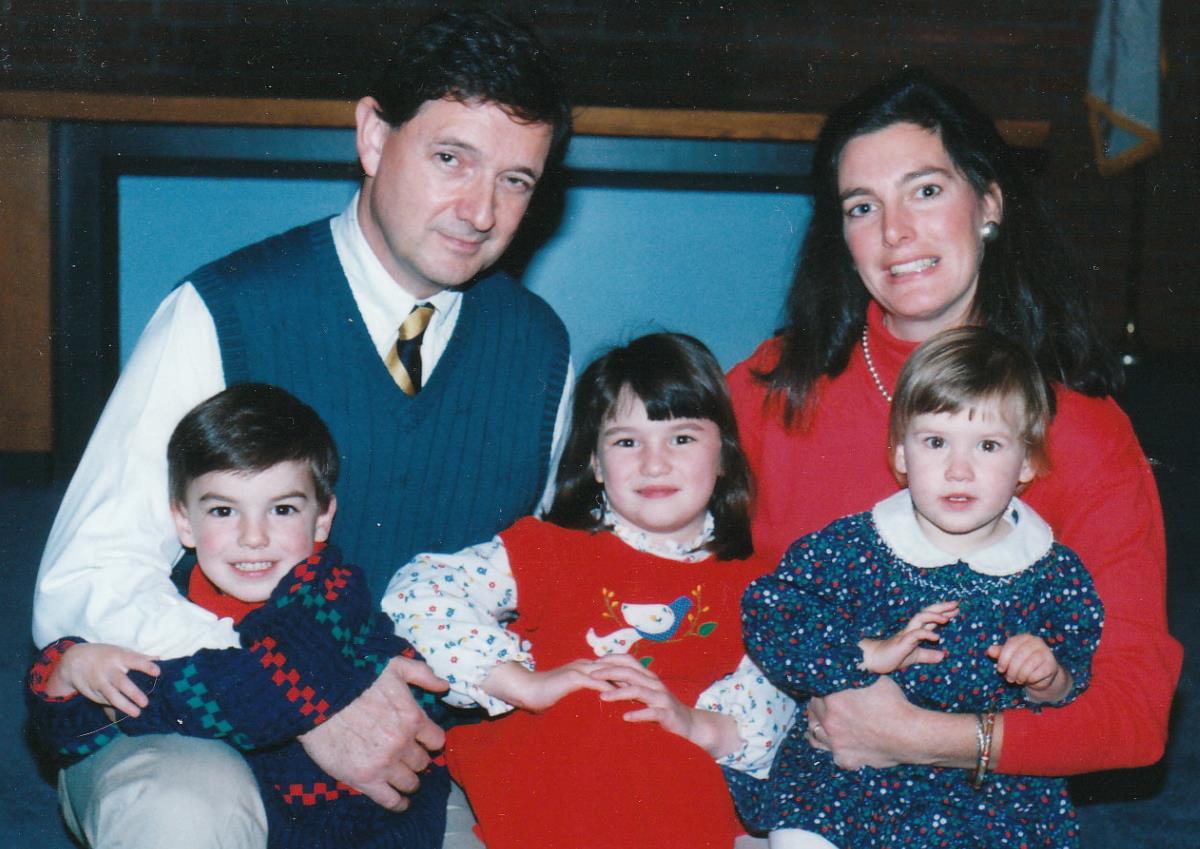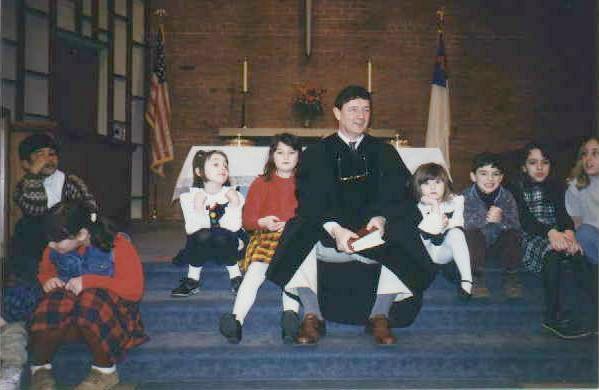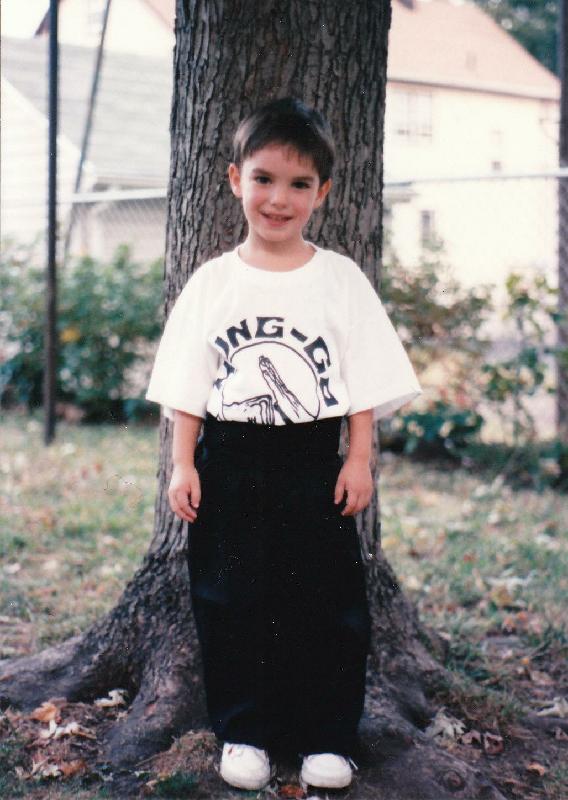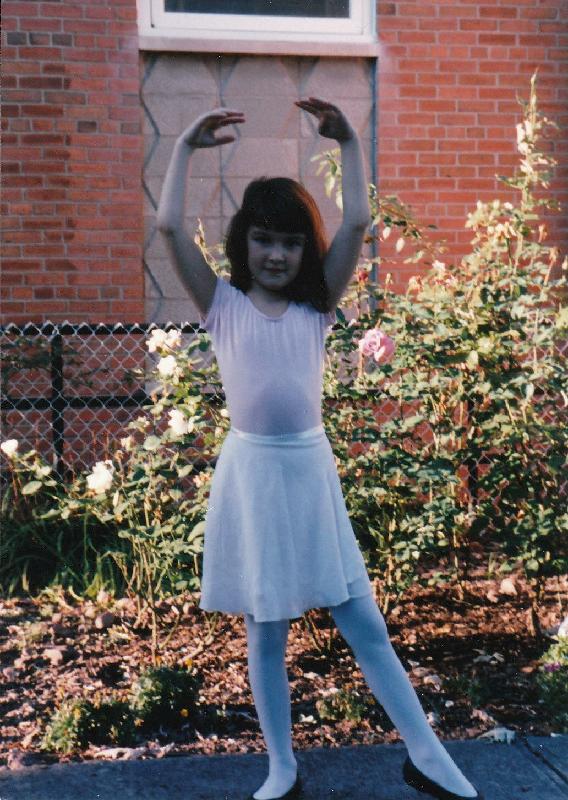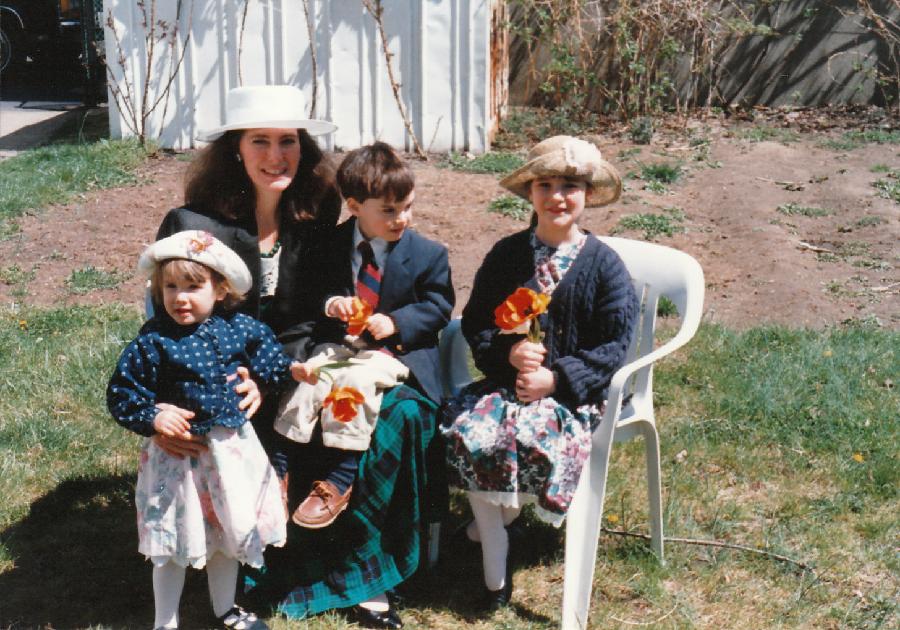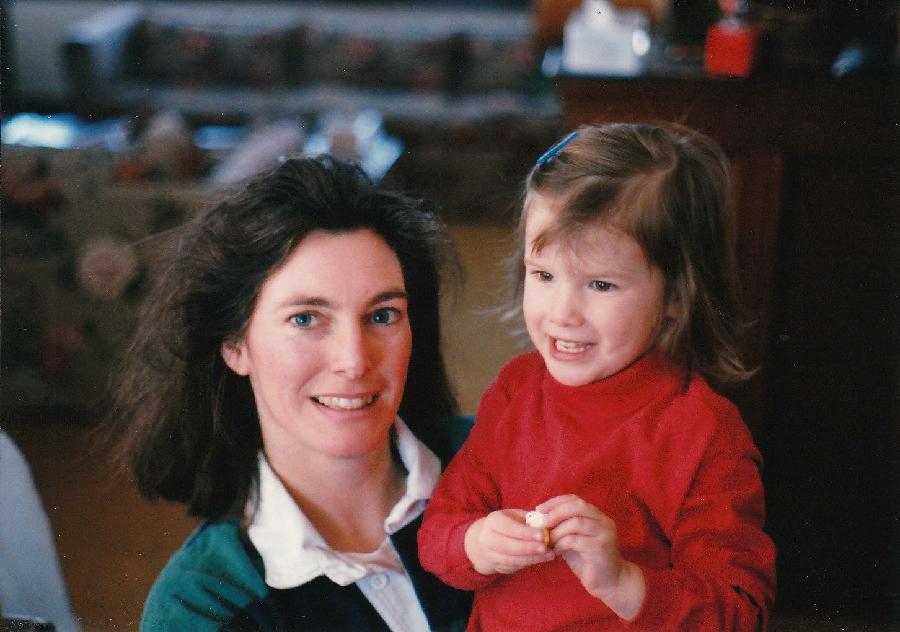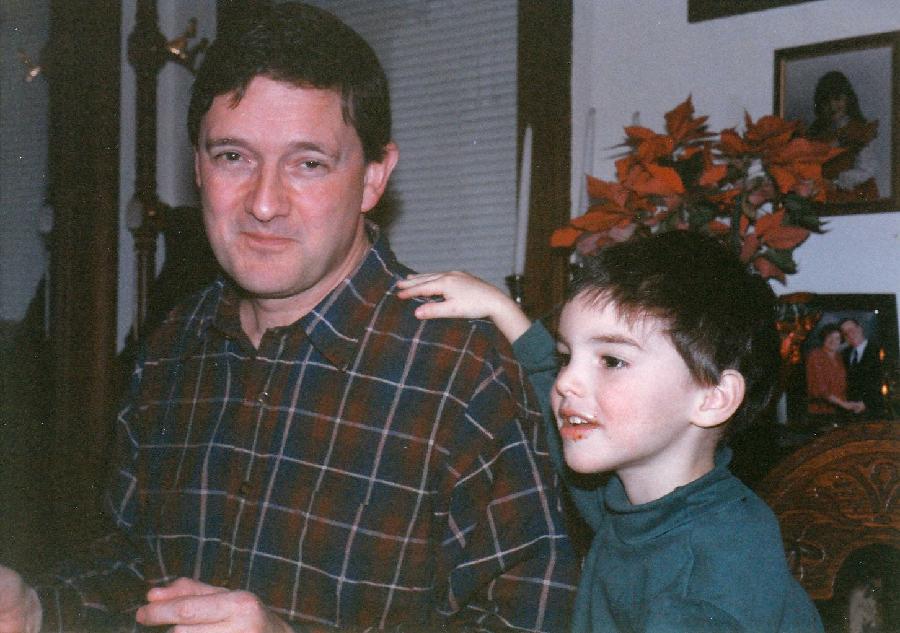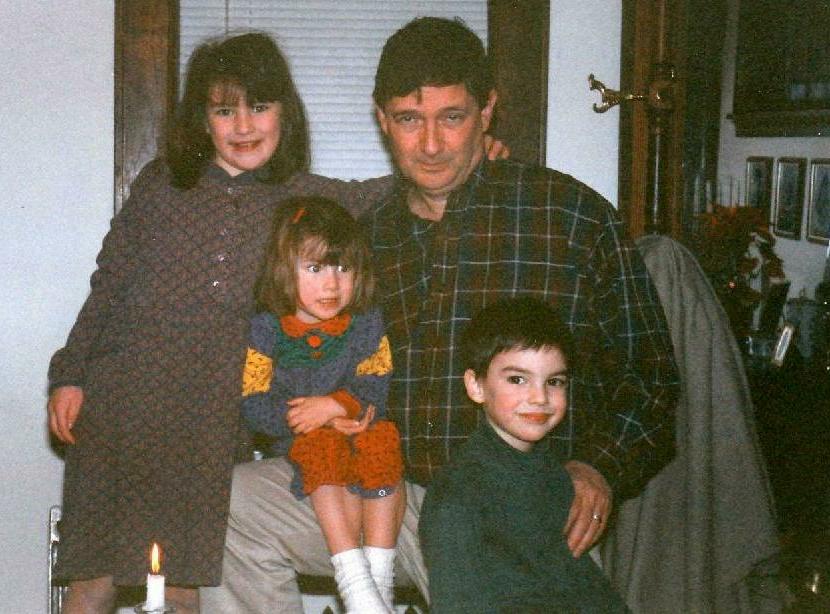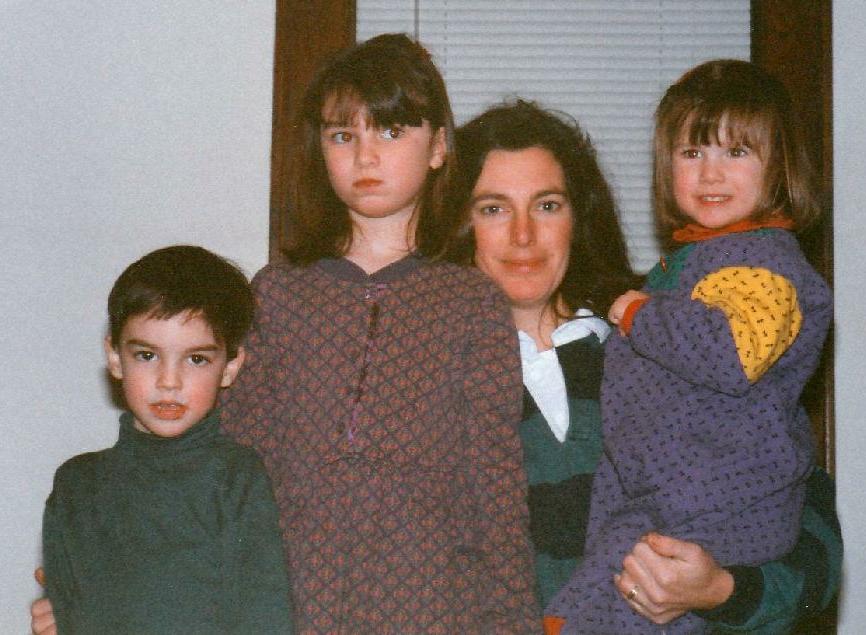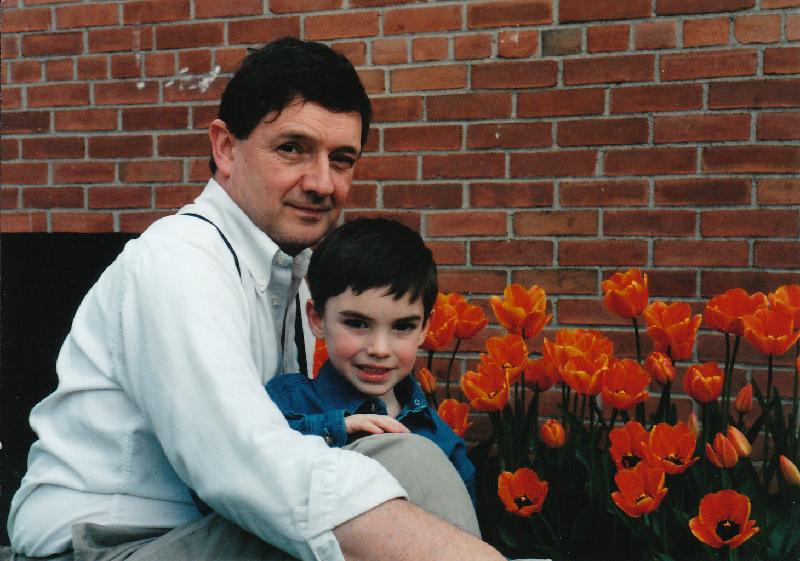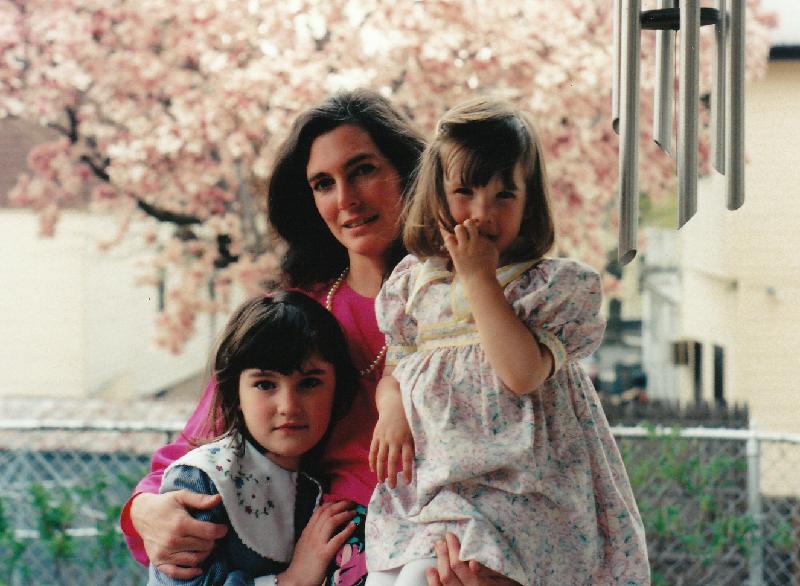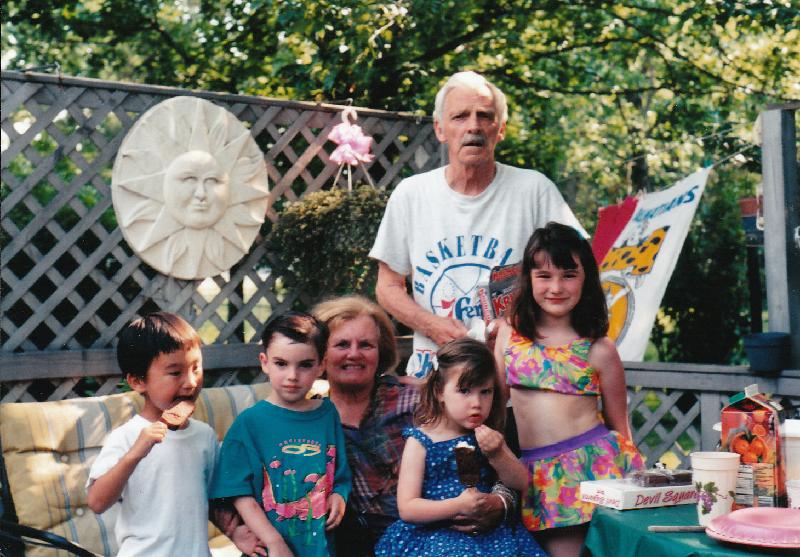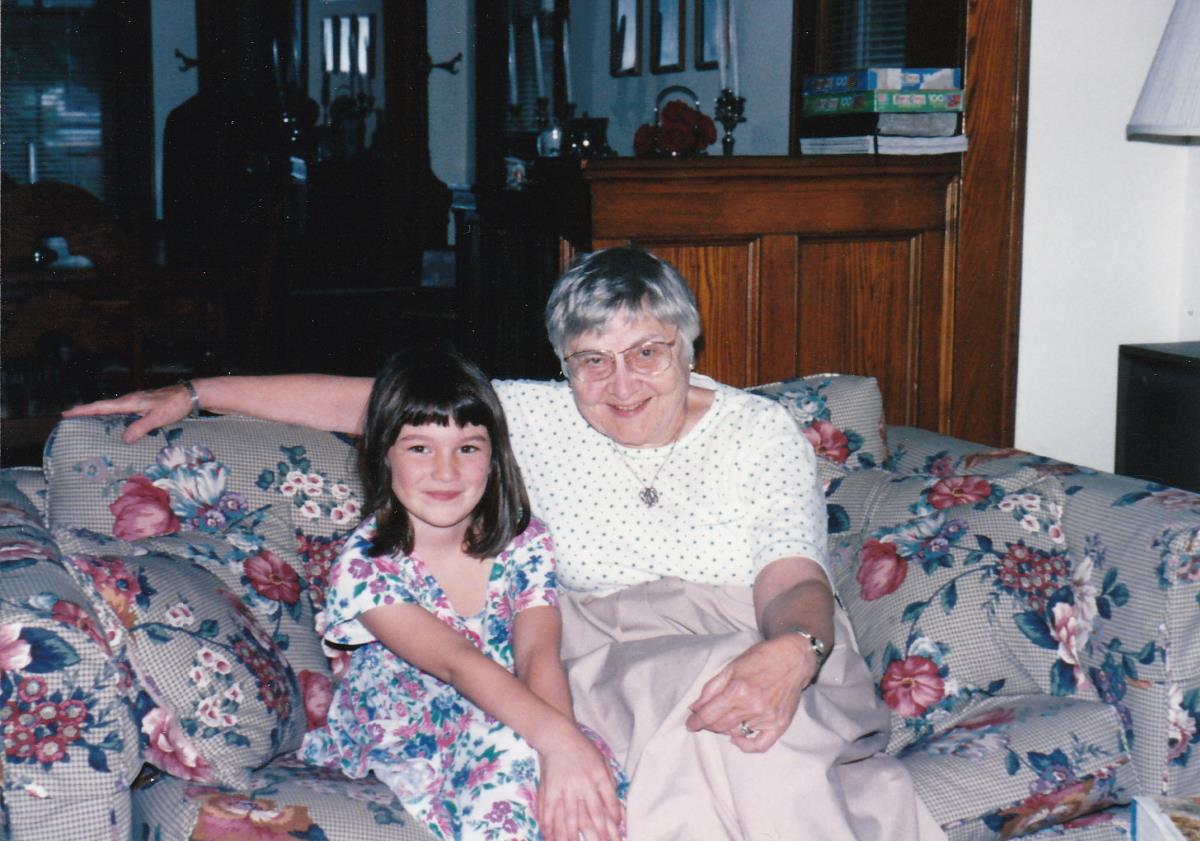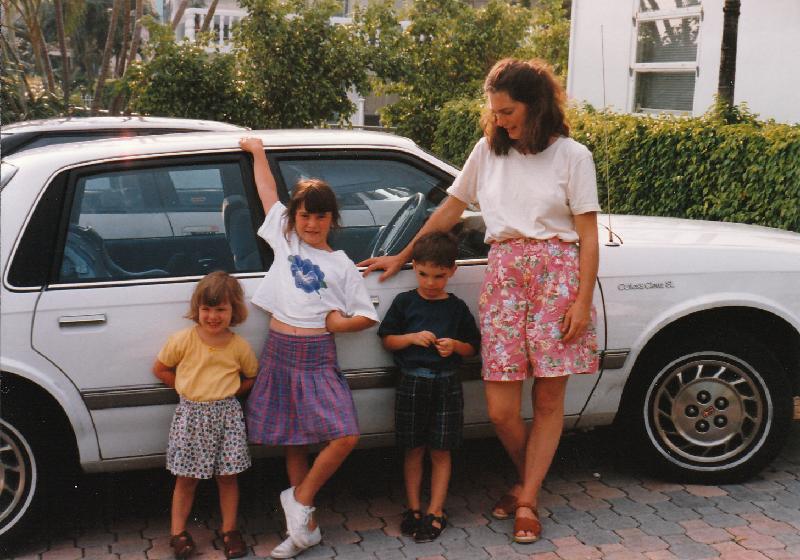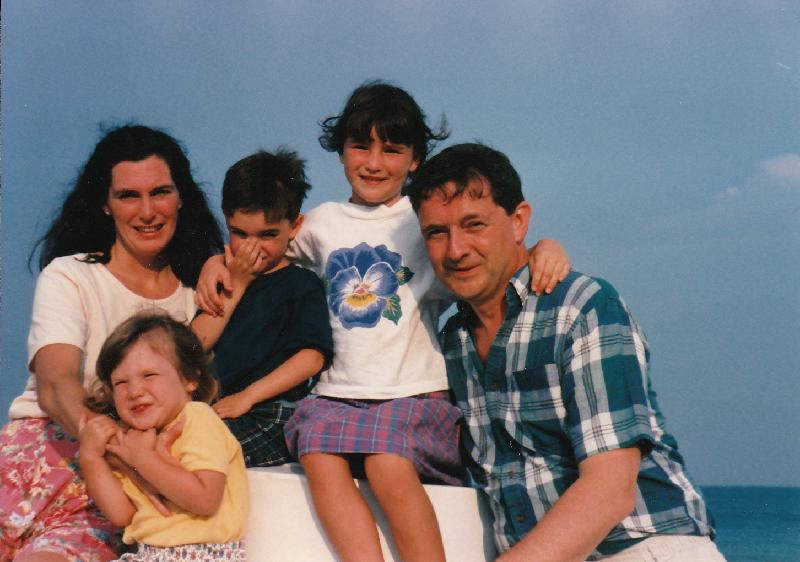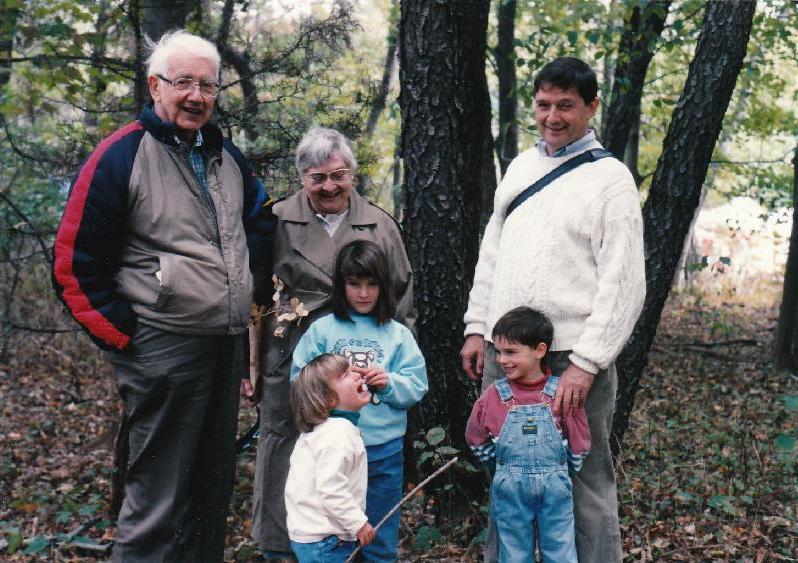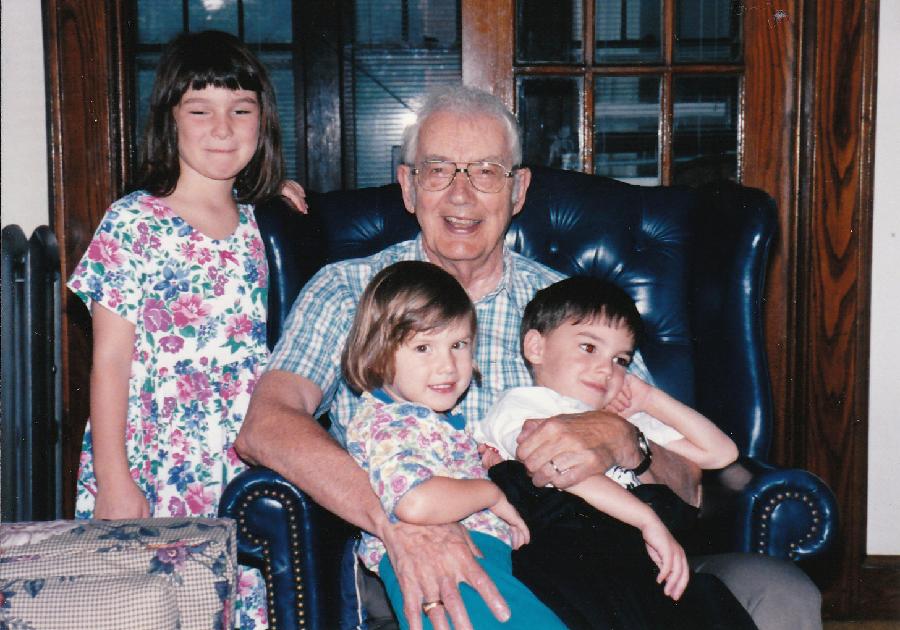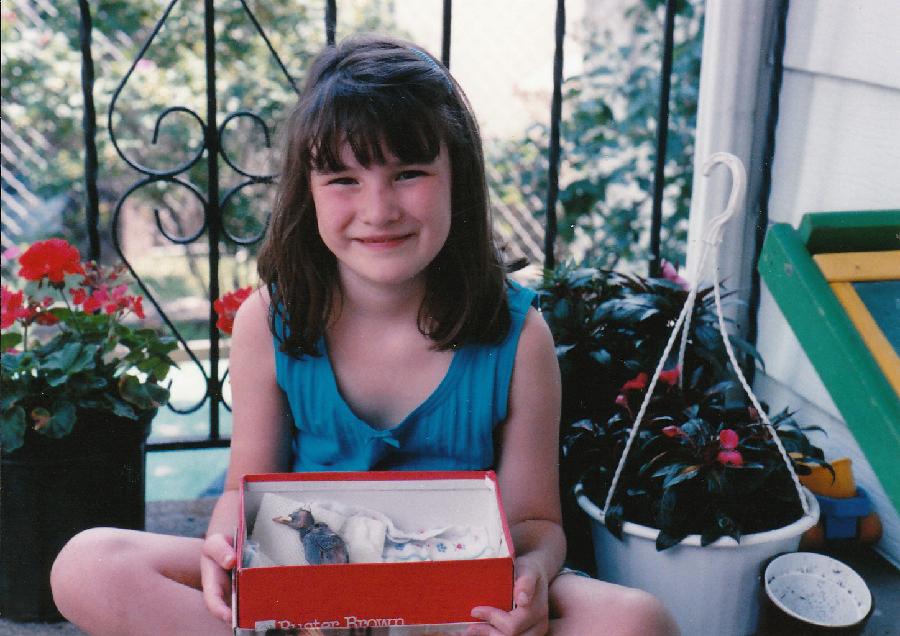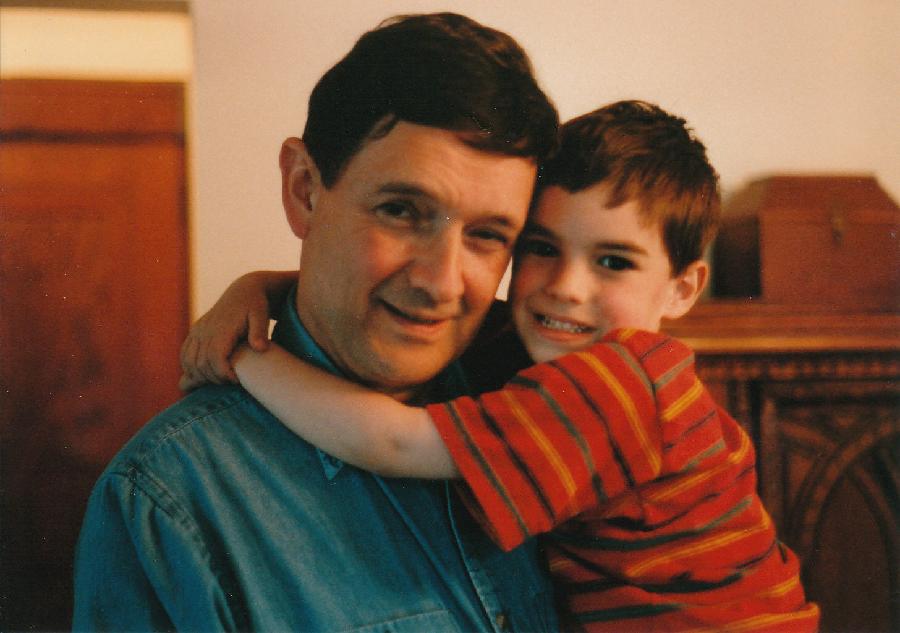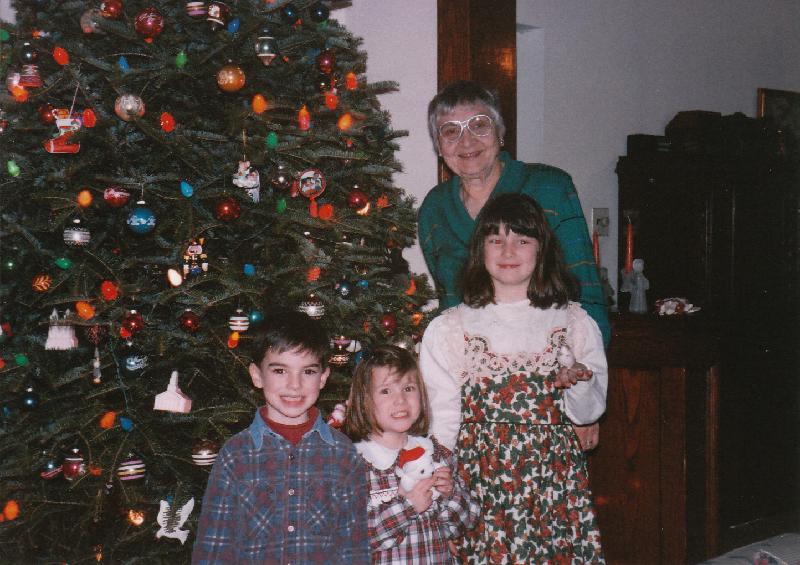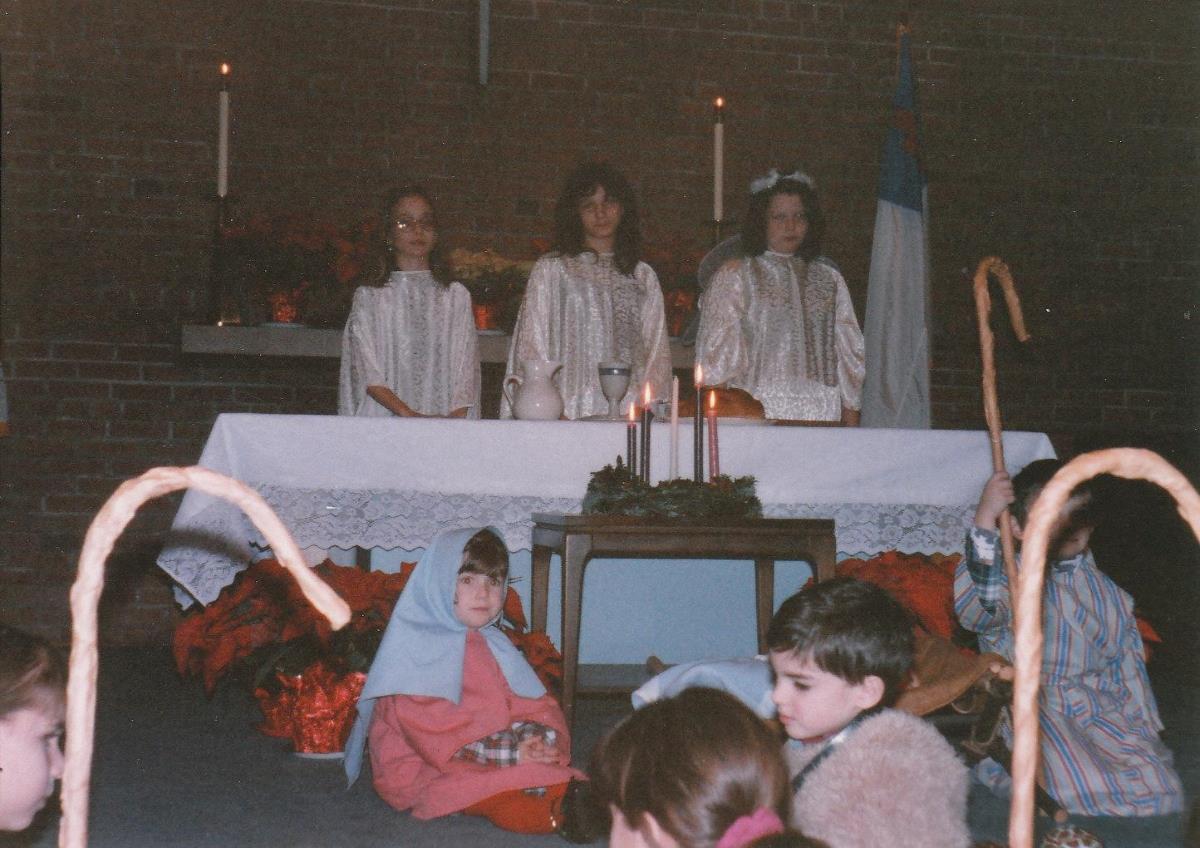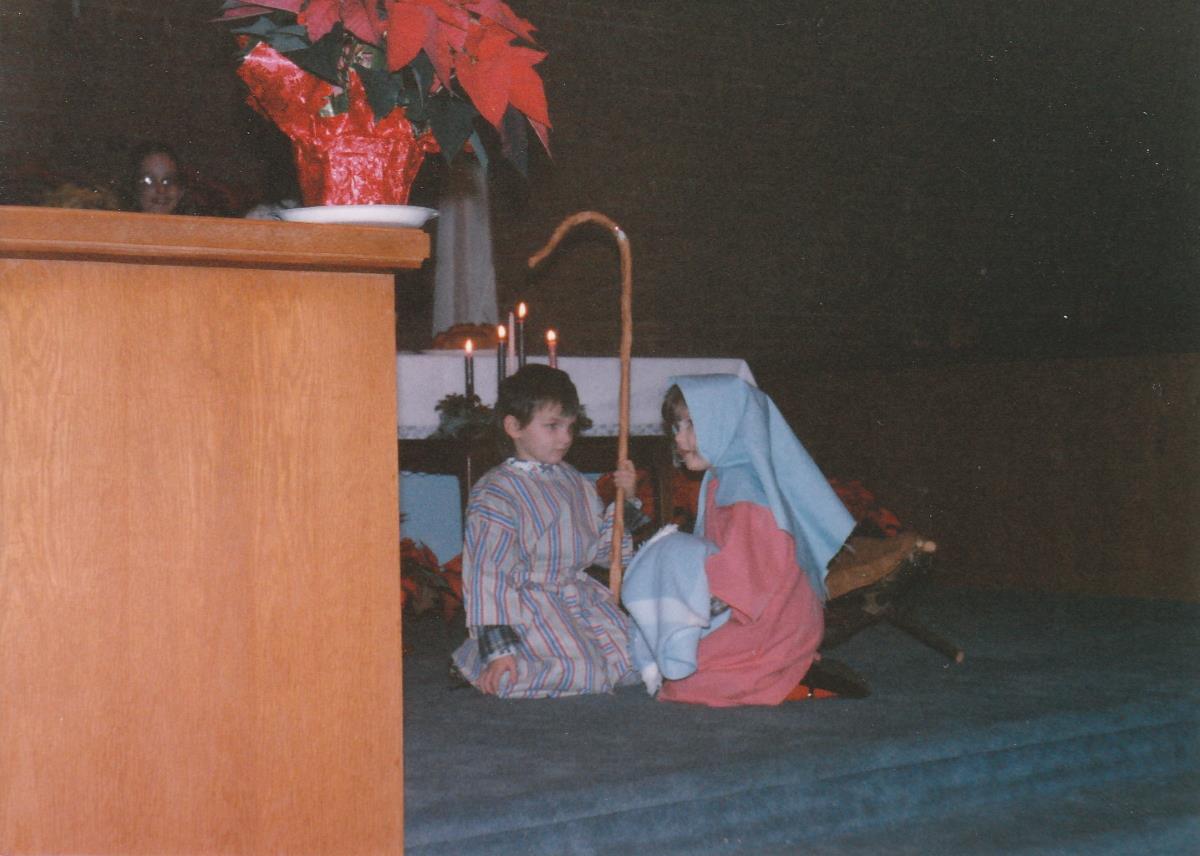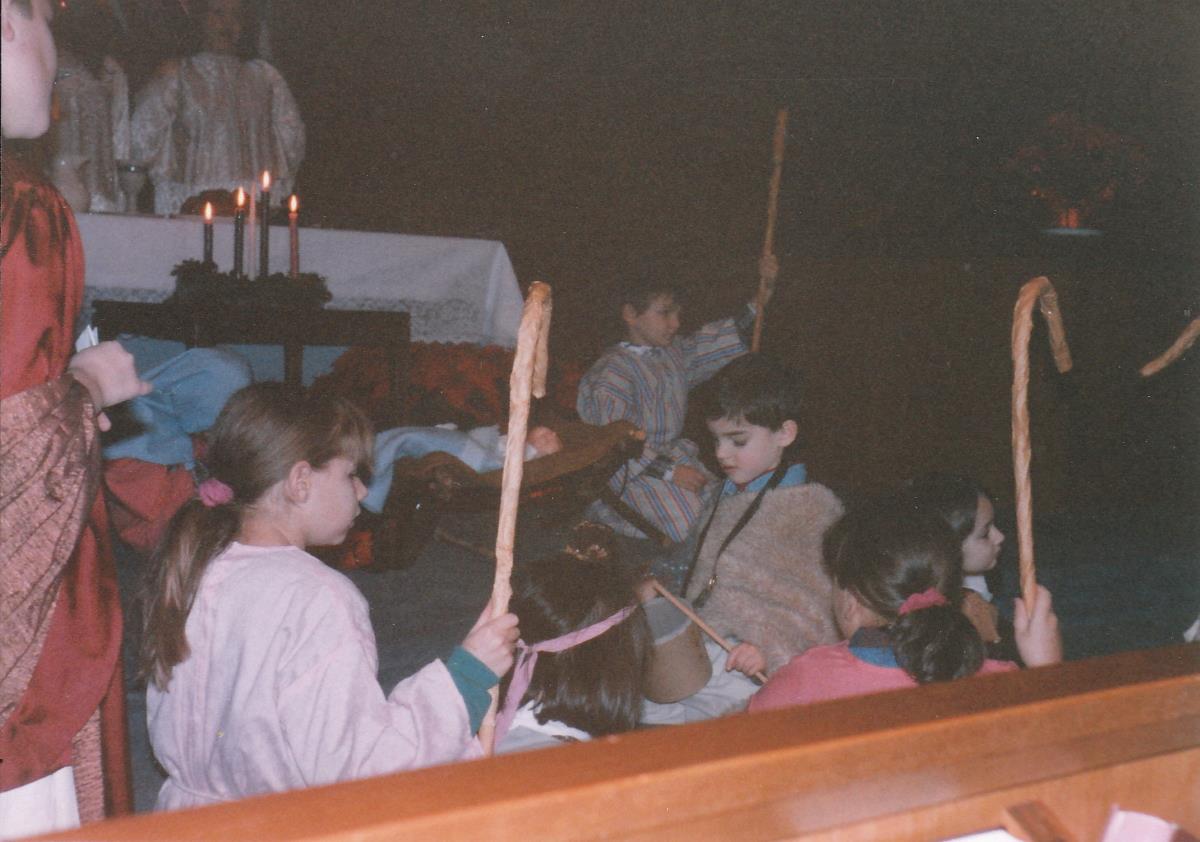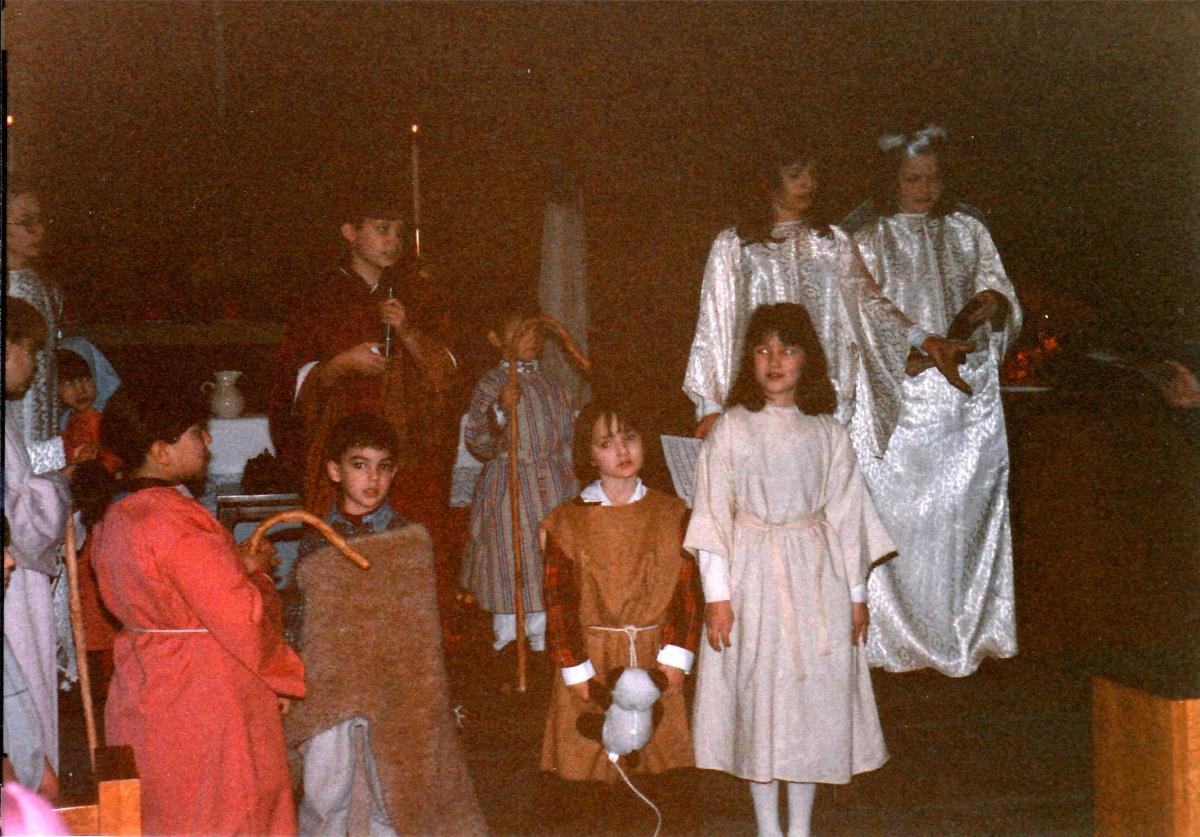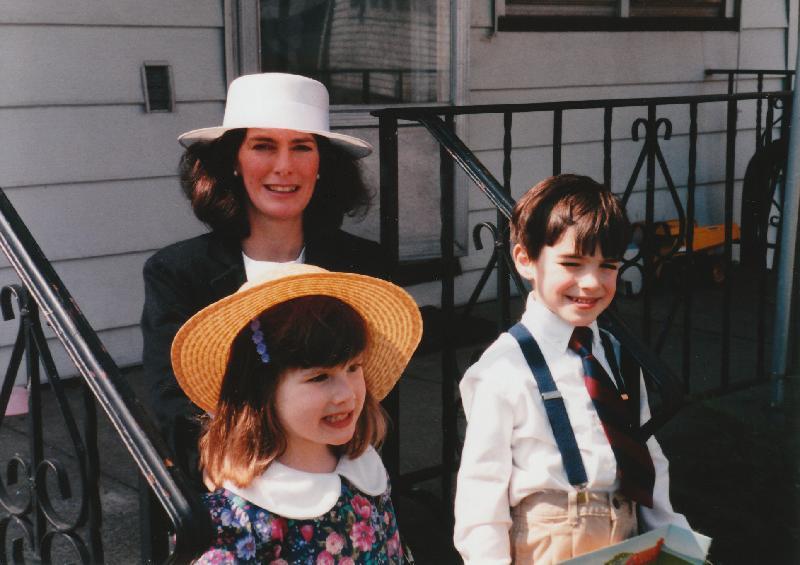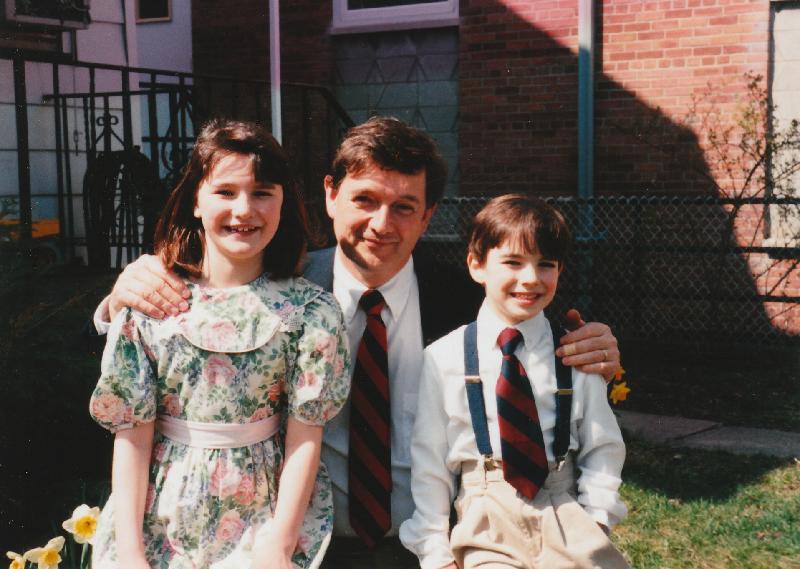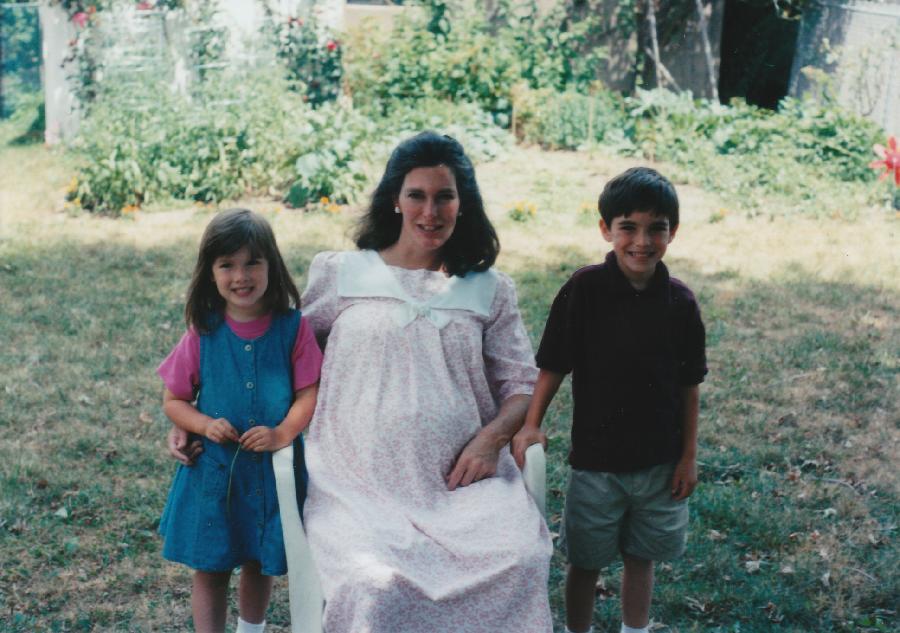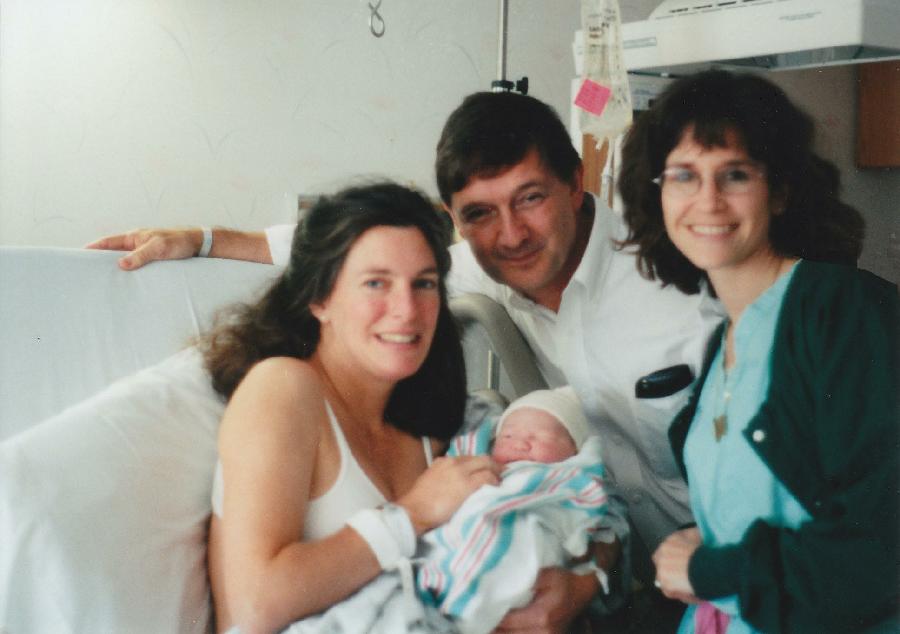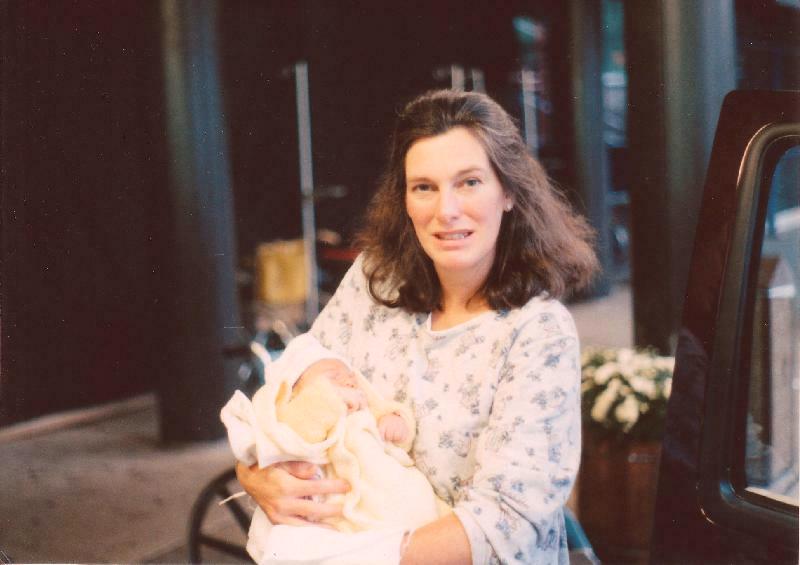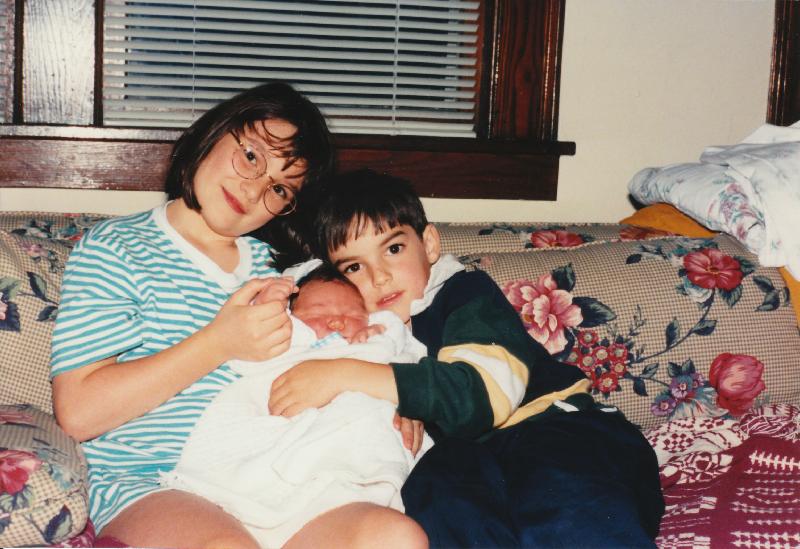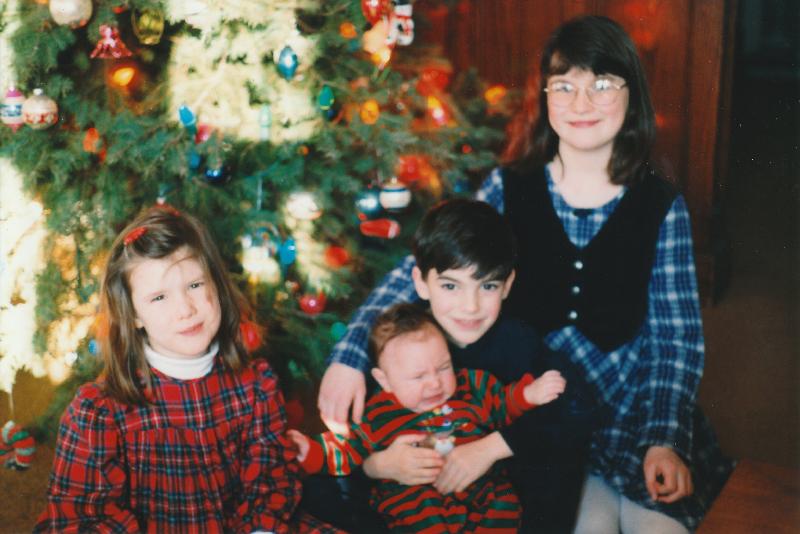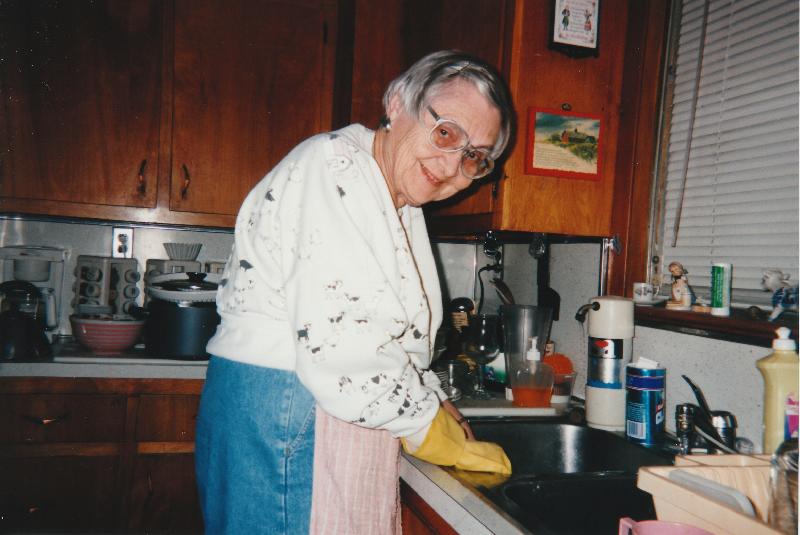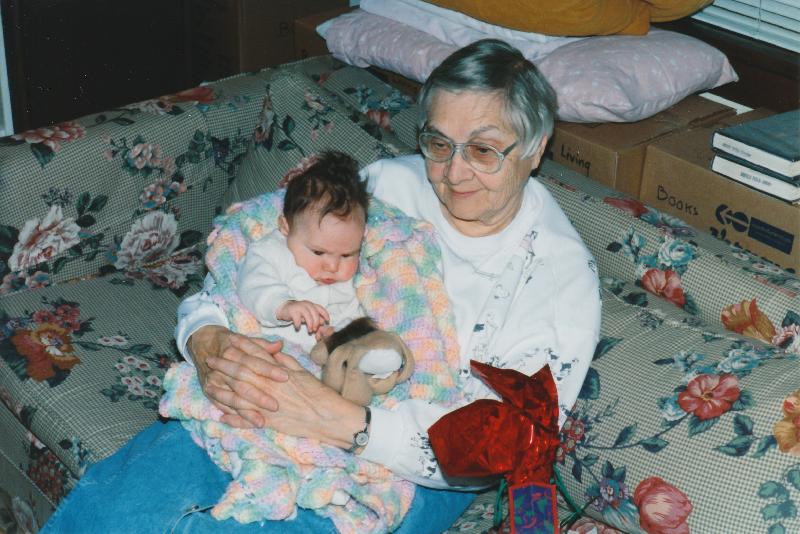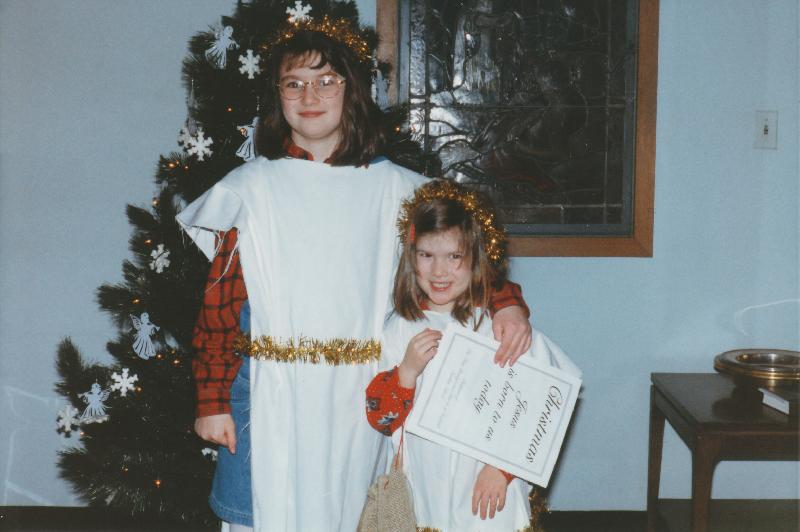THE GARFIELD YEARS

January 1991 to
December 1997

January 1991 to
December 1997
The textual material on this particular page is drawn largely from my published work The Spiritual Pilgrim: A Journey from Cynical Realism to a "Born Again" Christian Faith © 2021, pages 146-195.
THE LONG SEARCH FOR A PASTORAL CALL (February 1989-January 1991) |
|
Searching for a Call (February to May 1989)
As I moved through my senior year, I still did not have any keen sense of what all this seminary experience had been pointing to in the longer term. I had no better a clue at this point than when I entered almost three years previously. Trying to make the Hanover Street Ministry a full-time call
My natural inclination was to suppose that I should somehow parley my work at the Hanover Street Ministry into a full-time ministry. It certainly made some sense. The program was well established, well participated in by the people it was designed for, and certainly not unknown within the local Presbytery where I was a candidate. Of course, such a ministry would never become self-sustaining, but would constantly have to depend on outside monetary support for survival. On this basis I approached Presbytery, but got no support, despite all its talk about developing a focus on "urban ministry" – which ultimately sounded to me like a process for merely underwriting traditional suburban ministry in the areas of Trenton and New Brunswick. The Princeton churches had once supported a street ministry, which I knew turned disastrous. But unlike their failed Crisis Ministry, the Hanover Street Ministry had prospered in the years I had headed it up. Even the Princeton churches knew this because they had been helping with the funding for the sandwiches and coffee we served at the Ministry. But I got nowhere here either. The pastor of the Nassau Presbyterian church in Princeton explained that he was not able to support me because of my "evangelical style." He claimed that it reminded him too much of a southern evangelical style he had gladly put behind him years ago. But since he had never heard me either teach or preach, he actually had no real grounds to make such a judgment. I realized, in fact, that what was behind his opposition was that he never cared for me much personally, ever since my jumping into the Crisis Ministry discussion three years earlier. In any case, failing to get his support I knew was not only a major financial loss but also a major political loss presbytery-wise. I solicited other churches in the Presbytery for partial support of the Ministry as a mission project and as a point of contact for their own people in their own outreach efforts. But only one church gave me the promise of some support ($2,000 a year salary contribution). Sadly, I finally concluded that the project was dead in the water. College chaplaincy?
While I was struggling to promote the Hanover Street Ministry, I got a phone call from the president of a Presbyterian college in North Dakota. He and the Placement Director at the Seminary had been discussing me as a possibility as chaplain, with academic teaching responsibilities at his college. The idea of this kind of work excited me greatly! But North Dakota? I told him I would think on it. But in fact my only thoughts were a loud, No! It was just too far removed from the world I (and Kathleen) delighted in. Overseas mission work?
I had prepared a "dossier" (résumé) to be circulated within the Presbyterian church. But it was so obviously and narrowly oriented to inner-city mission work that I got not a single response to it, not for a long, long time. I met a recruiter on campus from the denomination's Global Missions office and he encouraged me to apply. I did. But nothing happened. I soon learned that the Northern and Southern churches were still in the process of trying to integrate their separate overseas mission programs and therefore were quite slow in moving ahead. Finally, I got a call from a missionary, home from Africa, whose husband was director of the central African office. My Mobile friend Martelle, who had served with them two years (1985-1987) as a "volunteer-in-mission" in Zaire, had told them about me. They were looking for someone who had exactly my credentials to develop a church building program in Zaire. The job involved both church construction and evangelism – naturals for me. The fact that I was also fluent in French was for them the clincher. I'm afraid that for Kathleen this was a bit too extreme of a jump from her close family life in New Jersey – probably even more extreme to her than my thoughts about North Dakota. True, she had been with me in South Africa, even nearly a week with me at the Zulu mission station. But this did not give her great comfort. Anyway the idea got put on hold, awaiting the national church in getting its missions-programming act together. Habitat for Humanity
As no call had come my way by graduation, I was very glad to be offered a summer internship sponsored by a Princeton group that paid me a small stipend to supervise a multi-house Habitat for Humanity project in Trenton. My duties included working with weekend volunteers (a fairly competent group), the future homeowners who were supposed to add their own "sweat-equity" toward the construction of their own homes (mostly a fairly incompetent or unmotivated group), and a number of youth groups who came into order to have a week's experience with Habitat (not greatly competent, but lots of fun). I also had the task of overseeing materials acquisitions, guiding inspectors through the projects , and a lot of work on my own, siting and laying footing, framing, roofing, insulating, drywalling, trim work, kitchen/bath cabinetry, tile work, etc. I helped with the excavation, block work, floating concrete, and running the electrical and plumbing services, though we had professionals as volunteers to oversee those specialty tasks. I loved it! A little extra "twist" I brought to all this was the morning devotionals I led every morning (even when alone). To me, it was important to remind ourselves that this was not a secular building project, but a definite part of Christian living. I found that the prayers, short Biblical messages and opportunities to reflect simply on what we were experiencing in the inner city, helped all of us – especially the youth – connect ourselves to the work in a very special way. Construction/Carpentry
Then, just as the summer internship was running out, what I used to recognize as Fortuna, but now knew personally as a very loving God, came to my rescue as usual – at the very last minute! Kathleen and I were attending a picnic with her family and their friends where I met a young Englishman, Peter, who was doing a lot of construction work in the Princeton area and who asked me if I would be willing to come to work with him while I awaited my "call." I was more than glad to do so. So, after having taken a month's vacation with Kathleen and little Rachel to St. Louis and Mobile, I began my new life as a construction worker. Thankfully I had the summer to get my 48-year-old muscles somewhat into shape, for the work was very heavy and I was having to keep up with younger men in their 20s (including Kathleen's younger brothers John and Brian, and occasionally her youngest brother Craig). At first the work was purely dirty and unexciting. We were tearing out the whole first floor interior of a huge office complex. As I, on my way to the dumpsters, pushed the huge dollies filled with plaster dust and floor sweepings past the secretaries who were outside taking smoking breaks, I could feel their sneers. I was filthy from head to foot. What a comedown for someone with a PhD, a former professor, and a seminarian who had just graduated from Princeton! Actually, I realized that this was exactly what I needed to have happen to me at this point in my life. I had of course worked in the inner city, and knew hard, smelly and menial work. But I had always been able to return quickly to a life of dignity at the end of the day, for "who I was" was still "professor" or "Princeton student." Now I simply was "construction worker." I learned quickly to accept my position with humor and a sense of dignity about my work. Eventually we began rebuilding the first-floor offices of this business complex, and the work became both interesting and challenging. And when we were through, we had created something of rather considerable beauty. From there, the job went to some very fancy work for some Princeton homes (Princeton University administrators usually), for instance a huge greenhouse for a wife of one of those officials, a woman intending to make her orchid-growing talents a true business (I was put in charge of the extensive tile-work involved in that project). There was also a huge project of building an "addition" to a home (the "addition" being much larger than most houses), a project involving five garages, a health spa, a fabulous game room and exercise room that was fitted out with the latest of everything. And we did a project that involved 25-foot-high vaulted ceilings, balconies, huge decks, about five of us working closely together to do all the work from beginning to end ourselves. The work was always changing, always challenging, always stimulating even when it was 20 degrees below outside and we were installing aluminum trusses on scaffolds with the snow tumbling down on us! But I loved it. I have the instincts of an architect. Every vocational aptitude test I have ever taken since high school always returns the same result. First preference: Architecture. I love design – especially when it is closely connected with the creation of something very tangible. |
| The boss of two of Kathleen's
brothers offered me a job in
construction in the Princeton area ... until I could find a "real"
job. This "temporary" job lasted the next 15
months! But it allowed me to stay in the area ... and continue my work at the Hanover Street Ministry. |
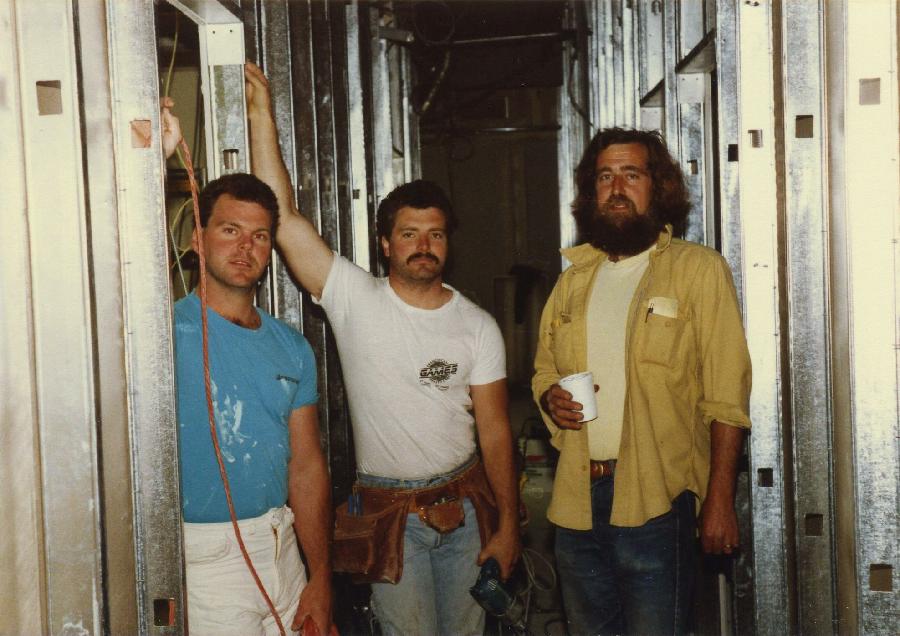
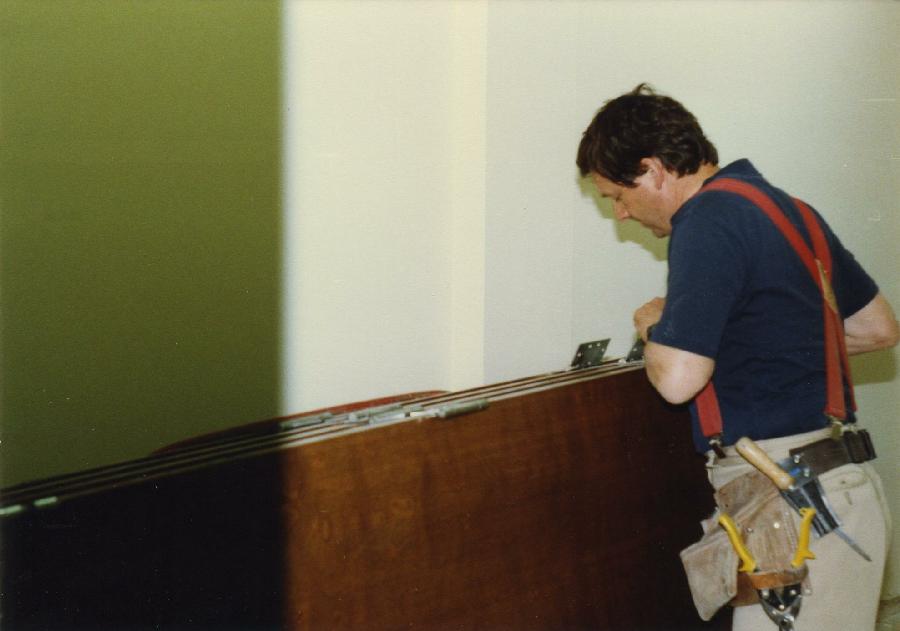
| Construction
boss "Peetie" (British architect actually) with the beard, and
Kathleen’s brothers Brian and John. Also … me getting ready to
mount doors in a newly redesigned office building in
Princeton. |
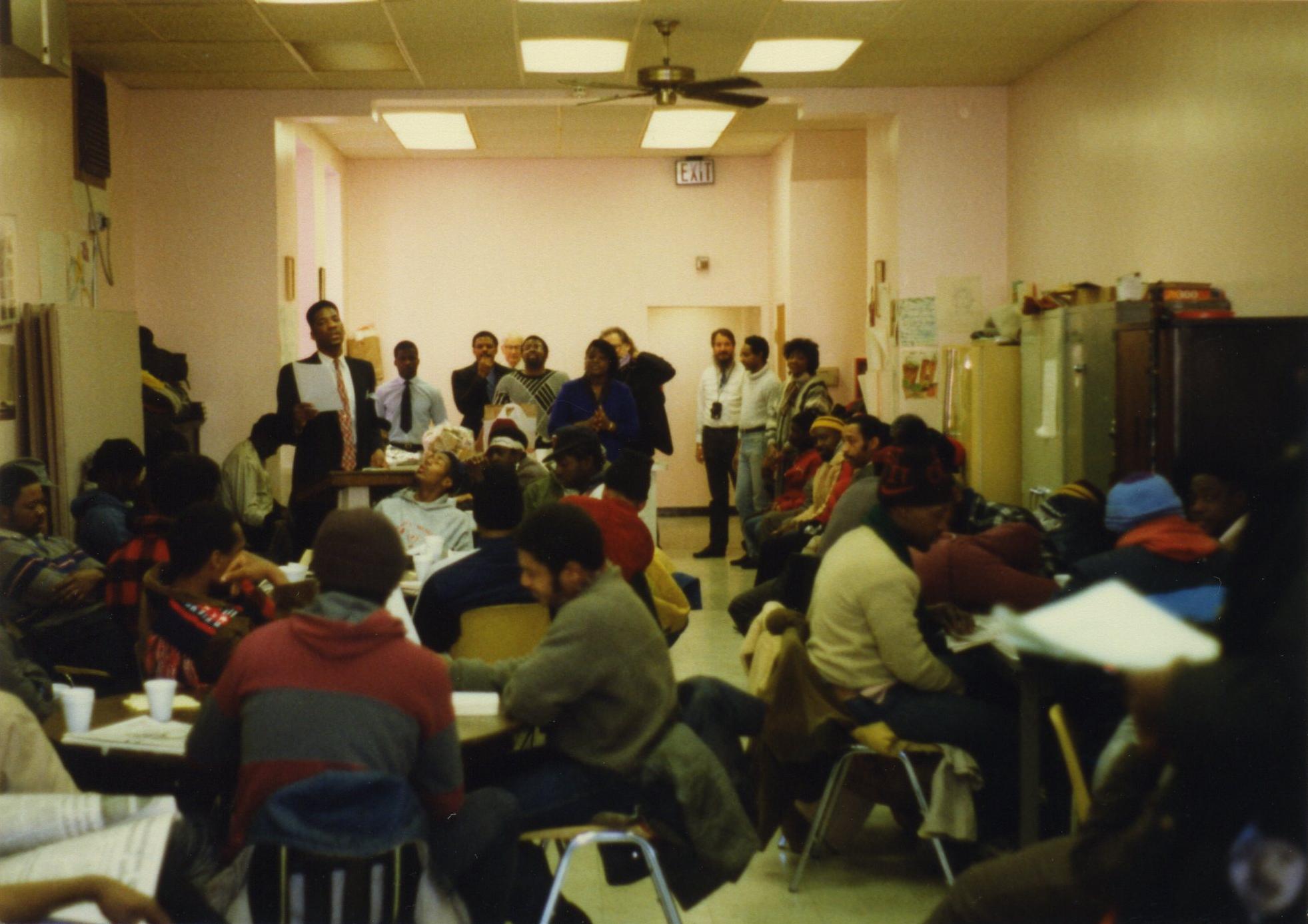
Christmas at the Hanover St. Ministry - Bernard leading in song
THE CALL TO GARFIELD (October-December 1990) |
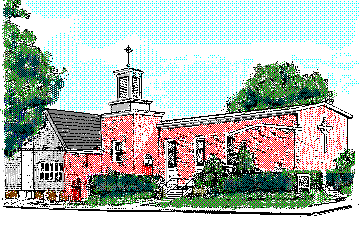
The Garfield Church ... the only picture I have of the church
|
A "sign" in the night
In October of 1990 I was beginning to finish up a major building project and nothing new was lining up. It looked like I might be totally out of work by Thanksgiving. One evening I was doing my "thing" on the couch, praying or just pleading with God, when a deep sense of peace came over me. When I headed back to bed I woke Kathleen to tell her that I had a strange feeling that God was about to answer our prayers. Saturday, when I returned home from my morning at the Hanover Street Ministry, Kathleen greeted me with the news that someone from Garfield (up in northern New Jersey) had called to see if I was still looking for a church. Kathleen was not wild about the area, having grown up in New Jersey and being aware of how different things were in that part of the state, just opposite New York City. But I knew immediately that this was what I had awakened to tell Kathleen about. Having that sense of things made my phone conversation with the head of the pulpit committee, Dot, come easy to me. I told them that if they wanted to see me in action, to really understand what I was all about, they should first come down to visit me at Hanover Street. She agreed. The following Saturday they drove down to Trenton to meet me in the Ministry. Interviewing
Things went well. Some of them were obviously moved by the sight of "tough" street guys responding so sweetly to the teaching and the prayers (they were a bit nervous about being around streetwise Blacks). We talked afterward and I laid out for them my very evangelical vision of Christian ministry. That seemed to work well for them. I was impressed with their reception to the vision! They came down shortly after that to hear me in the pulpit (I hadn't been in the pulpit for almost 2 years). The sermon was about 35 minutes in length. But that had been pretty typical for me whenever I was in the pulpit. A comment was made by Dot that "we would have to work on that." But otherwise things went well. Garfield
Soon after that I was up in the neighborhood, conducting a funeral for an aunt of mine, with my parents (visiting from St. Louis) and Kathleen and Rachel in tow. We swung by Garfield to have a look. My heart sank. Garfield was a formerly blue-collar industrial town whose industries had moved out. A huge former chemical plant sat abandoned only a block away from the church. The Passaic River, which bordered the town two blocks away, was lined with used car lots and auto repair shops. That seemed to be the base of the present Garfield economy, such as I could detect one. The rows of two-story houses (built around World War One) were closely built with no driveways and only narrow walkways between them. There were few trees along the streets, and a maze of telephone wires were strung overhead everywhere. Cars lined the streets with hardly any spaces available for parking (I could not see where people coming to church would ever park). There was something of an Hispanic flavor to the neighborhood (it became even more pronounced over the following years), for the music which blared forth from passing cars announced that fact. The pastor's manse was next door to the church, only a few feet away, with a small backyard running behind the church. At least the manse had its own driveway and garage located behind the other side of the church – the only driveway around. What privilege! Well, what could I say? I felt that God had spoken, so there was likely to be little argument with Him about this call which I knew would be forthcoming. It certainly was not what I wanted. And I did not have that sense of "peace" that had greeted me years earlier when I entered inner-city Trenton. But I knew that this was where I would be serving. Ah well. Words of warning from the Committee on Ministry
As part of the interview process, I was required to meet with a very important committee of the Palisades Presbytery under whose jurisdiction the Garfield church found itself. The Presbyterian system does not have bishops that churches are accountable to. Instead a Presbyterian church is supervised by a regional conference made up of the local churches (typically about 50 or so churches making up a presbytery), each church represented at presbytery by its own pastor, and one or two (or more) of its elders, depending on church size. And it is this presbytery that performs the supervisory roles typical of a bishop. Anyway I had to be interviewed by the presbytery's majorly significant Committee on Ministry (COM) before I could be cleared to receive a pulpit call from Garfield. During this interview I was asked if I was aware of the precarious financial position of the Garfield church. I really was not. I was told that Garfield had been receiving Presbytery subsidies to pay the salary of the previous pastor and COM was inclined not to continue this practice. I pointed to Garfield's financial reserves of $35,000. The COM chairman told me that typically a small church built up such reserves during a pulpit vacancy, not having to pay a regular pastor. With a regular pastor in place these monies would be drawn down very quickly. If indeed there was a shortfall of regular income to the tune of say $1000 a month, it would be around 3 years when the church found itself in financial straits again (the estimation was right on target almost to the month!). The COM had come very close to not letting Garfield issue a full-time pastoral call, but instead only a part-time call. They thought I should be aware of that before I said "yes" to the situation there. I, at that time, felt however that I could accomplish most anything I set my mind to, especially since it was quite clear in my mind that Garfield was where God wanted me to be. I listened politely to their well-intended advice. But I knew I would say "yes" to an invitation from Garfield no matter what. Anyway, I preached my candidating sermon before the full Garfield congregation in late November, and after the service, the congregation voted me in as their new pastor. Appearing before Presbytery
My last hurdle to leap would now be the vote of Presbytery in admitting me to full membership as a newly ordained pastor. I had to submit to an "examination" by the full gathering of the presbytery (all the pastors and a select number of elders from each of the churches in the presbytery), an examination centering on my Statement of Faith, which carefully outlined my particular Christian beliefs. I knew that there would be raised eyebrows over my use in my Statement of Faith of male language in reference to God. But I felt that it was time to announce myself as one who believed that the church ought not to experiment with or reinvent the identity of God as given in scripture, specifically by our Lord himself, just because it pacified certain strongly vocal political interests in the contemporary church. I had hated having been muzzled by the feminists on seminary campus and I was determined that I was not going into the ministry under that same sense of compromised faith and personal oppression. It was a risky move, and I was well aware of the fact. And of course wouldn't you know that on the evening in late November that I appeared before Presbytery I was suffering from a horrible cold, was doped up a bit on antihistamines, and just generally was very, very tired from all the last minute hustle to get me into the pulpit before Christmas. My Statement of Faith was indeed a red flag. As soon as I finished reading it, a woman immediately jumped up and with sobs in her voice mentioned how it was just such statements as this that had once made her feel "cutoff" from the Christian faith (I learned later that she had been raised Catholic). From there it went downhill. After what seemed like hours (it might have been 15 or 20 minutes) of examination I was ushered outside while Presbytery went into consideration about my being received into their membership (and thus being ordainable). I spent a full 30 to 40 minutes outside while debate raged back and forth about me. As I learned later, this had not happened in a long, long time. Usually the whole thing from reading of the statement of faith to final vote on a person might take 10 minutes, 15 minutes at the most. For me the ordeal lasted for nearly an hour. Finally I was called back into the meeting. I had been voted into the presbytery. And I didn't just sort of slip in unnoticed. I would be recognized from then on as the "conservative" voice of the presbytery. Actually where I stood on the social-political spectrum depended on where other people stood who were evaluating me. Palisades Presbytery was one of the most Liberal of the denomination's presbyteries and could always be counted on to take the "Left" side of any given issue. But God had a strange way of making this whole thing work out – very wonderfully so. But I'll have more to say about that later. Ordained and installed (December 1990)
I officially took up my duties in Garfield the first Sunday of December. And on December 16th, I was formally ordained and installed as a Presbyterian Minister of the Word and Sacrament. |
| The manse (or parsonage) where we would be living for the next seven years was right next to the church … with no real front yard … and a nice back yard … although surrounded by the back of the church and the backs of neighboring houses. But I was determined to make this little piece of real estate as pretty as possible with roses eventually planted everywhere. The manse also needed some work, especially the bathroom (upstairs) |
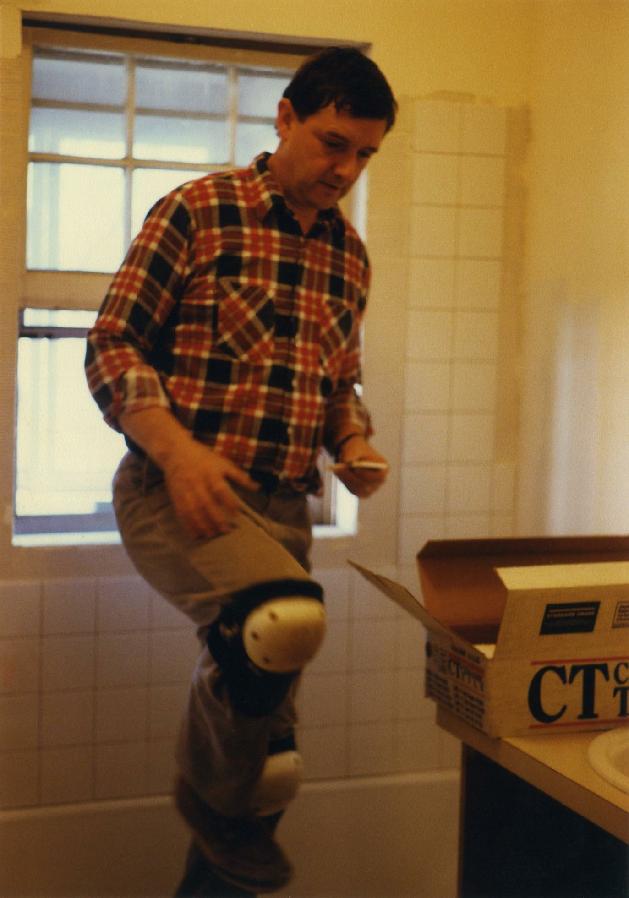

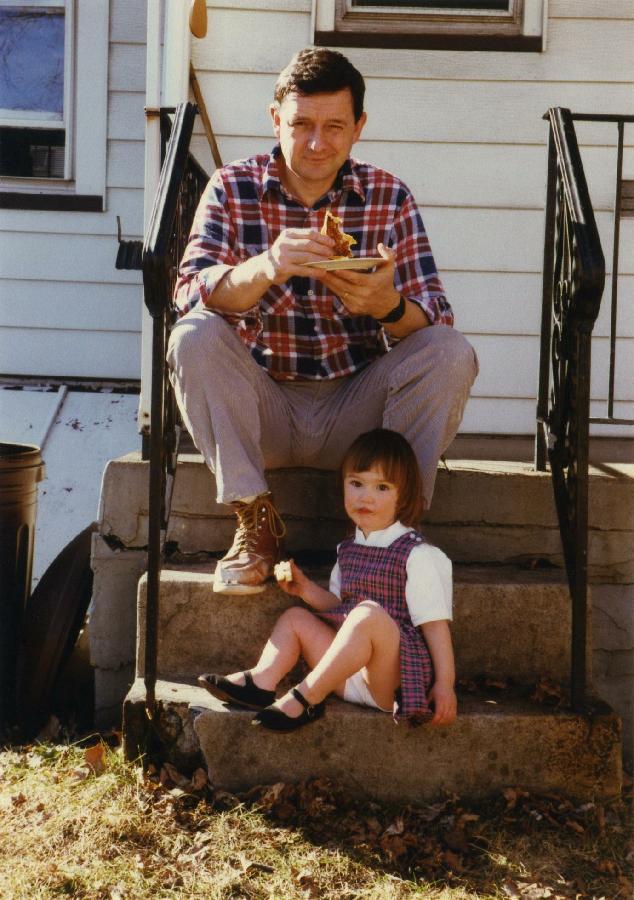
Installing wall and floor tile in the manse bathroom
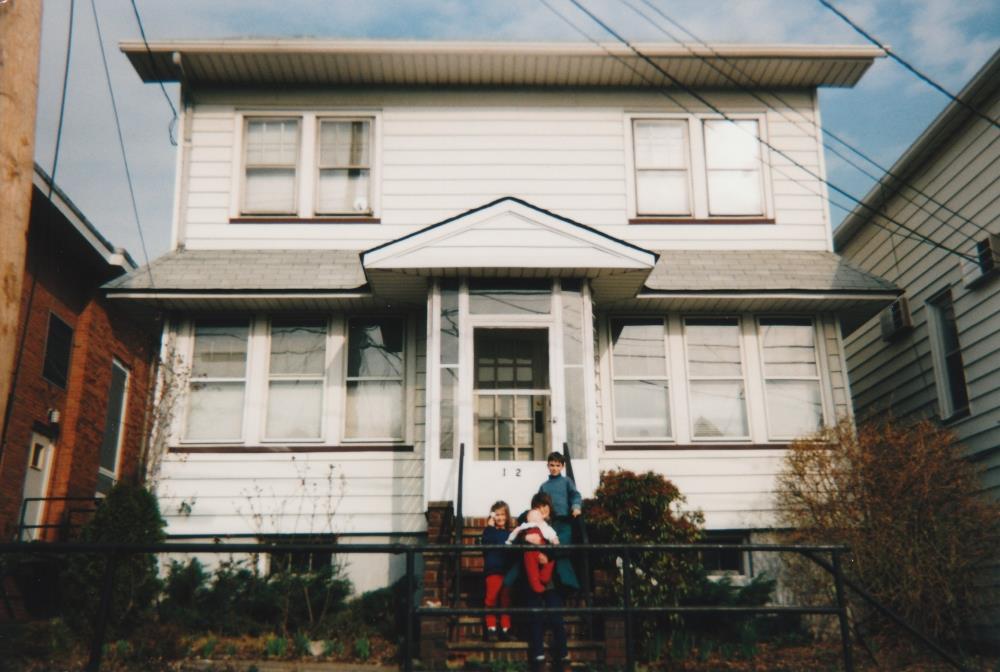
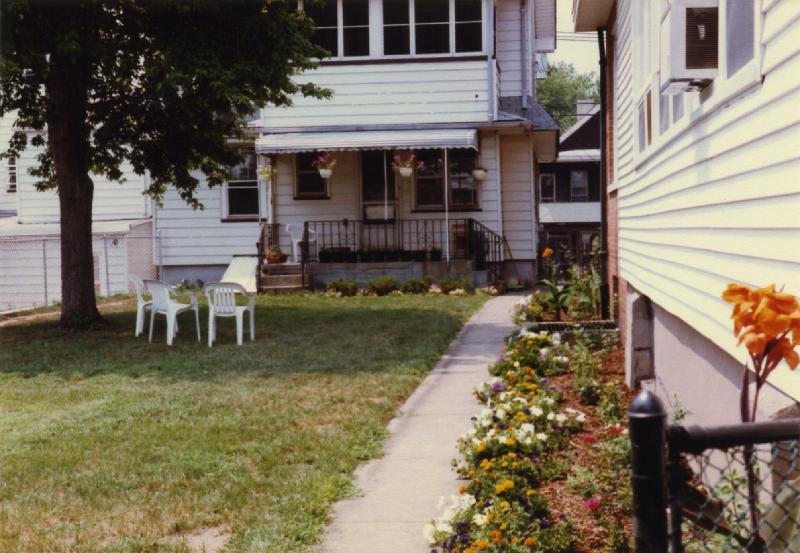
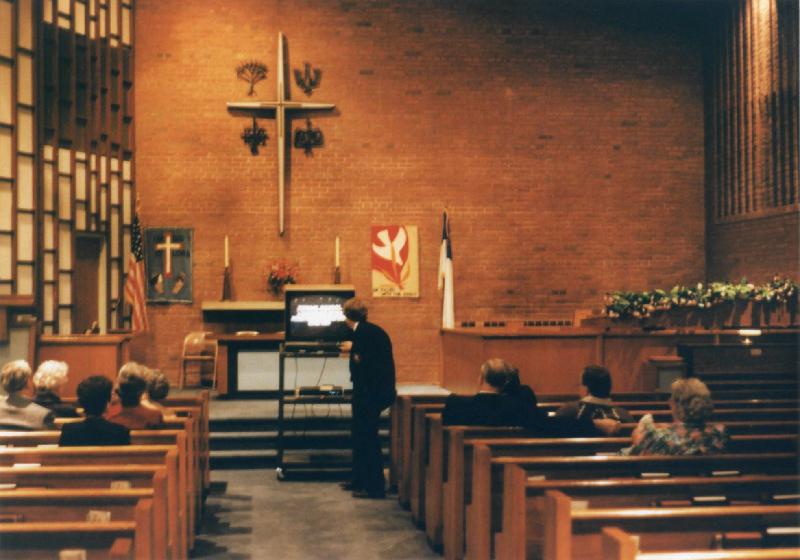
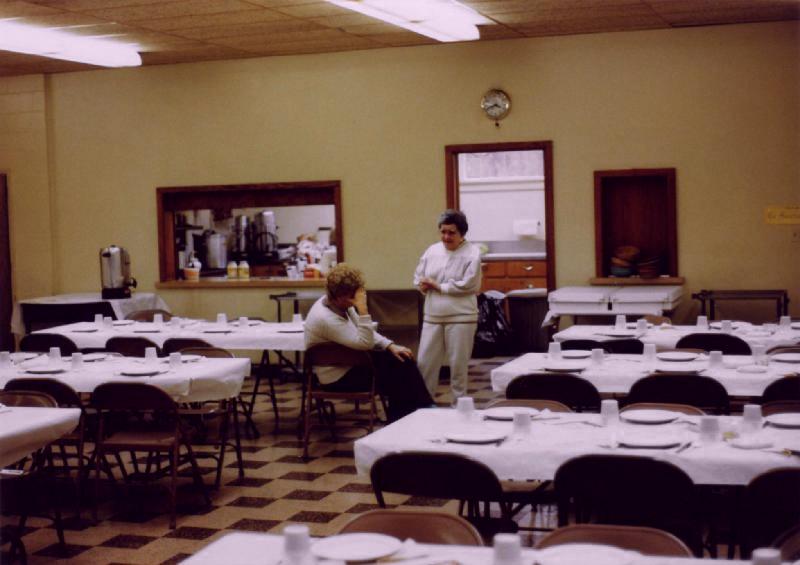
The church sanctuary (just prior to a Presbytery meeting)
and Fellowship Hall and kitchen downstairs.
|
The Peace and Social Justice Presbyterians, and the Kuwait Crisis
It was very soon after my ordination, in fact the very next meeting of Presbytery in February of 1991, that I got to see once more how "Liberal" the world I had just stepped into happened to be. I had been following events developing with Iraqi dictator Saddam Hussein when his troops invaded his neighbor, Kuwait, that August. President Bush (Sr.) had been trying to get former US ally Saddam to understand that this action was unacceptable and that he would have to back his troops out of Kuwait. But once committed to this action, Saddam realized he would lose considerable power at home in Iraq if he now retreated from Kuwait. He would withdraw only if other nations also first withdrew their own occupation of land that was not theirs (pointing to the state of Israel). Also, fear began to grow that Saddam might expand his move into a relatively defenseless Saudi Arabia, also next door. Thus President Bush, backed up by wide global support (the United Nations, for instance) and especially support from the Arab World, moved American troops into the Saudi Arabian region right next to Kuwait, and there began to assemble a multinational force. Finally in January of 1991, this coalition force, led extensively by the US, began aerial attacks on the Iraqi troops in Kuwait. When we had that February Presbytery meeting, the exchange of bombs back and forth between the two contending parties was now in full. We were at war. Therefore, at the end of the presbytery meeting, we were given candles, so that we could march by candlelight through the area. We were to do this in protest against yet another round of American "imperialism," supposedly the heart of the dynamic (as the protesting Liberals were viewing the matter). I had not much choice but to join them, my status with the presbytery being already so marginal. But as I joined the procession, I felt as if I was back in Princeton, protesting about the "outrageous" behavior of that Thai pastor who had violated the "inclusive" standards of the seminary in his male-chauvinist usage of male terminology in his sermon. In short, I hated what I was doing. And I realized that these fellow Presbyterians had absolutely no idea whatsoever of the stupidity of this procession. Bush was doing exactly what should have been expected of the leading world superpower, who was simply trying to keep things from spinning out of control in the vital oil-producing region of the world. This was not imperialism. This was American diplomacy doing exactly what everyone (except these "peace and social justice" warriors) expected. Anyway, as it turned out, Bush's coalition was very successful in returning things to the way they were prior to the war, Bush showing no intentions of going any further against Iraq. His Secretary of Defense Dick Cheney later explained to the press that to have tried to move in and take over Iraqi politics would have been to fall into a quagmire, and that America had no business doing something that foolish. Ironically, these were wise words that he himself would later ignore as US vice president under Bush Jr.’s presidency! And as for the presbytery, nothing further was said on this matter. |
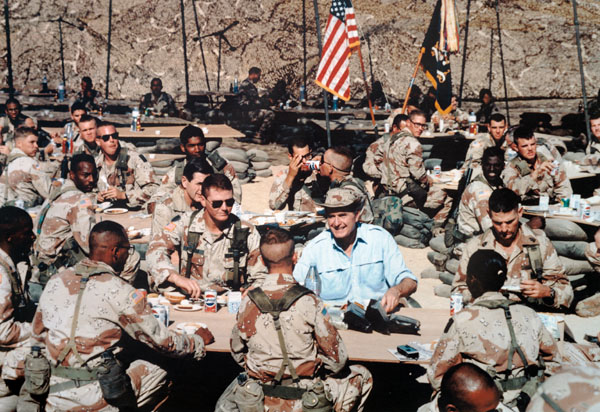
Bush and US troops ... getting ready for some police action in Kuwait
... which would come to upset the "Peace and Social Justice" Presbyterians greatly!

When things worked out awesomely well for Bush ... and the world ...
Presbytery simply dropped the whole matter.
TENSIONS AT CHURCH (1991 to 1993) |
"The only problem with churches is ... that there are people in
them!"
I
would develop that saying from those years of pastoring in
Garfield.
|
The "family church"
Garfield classified itself as a small "family" church. I soon came to learn what that actually meant: namely, a handful of families ran the church! But it took me a while to get this figured out. I also learned that the pulpit committee that had called me to Garfield was not representative of this family structure. Those ruling families were too busy, too important, to engage in such mere committee work. Furthermore, I was to learn that what the Garfield Pulpit Committee put forth in its Church Information Form (CIF – the church's job description it had used in advertising for a new pastor) as the basic mission of the church, and what the "families" expected the church to be about, were two quite different matters. Being new to pulpit ministry, it took me a while to understand that this was not untypical for the way small churches are run. The pastor is there not as a teacher or program director. The pastor is understood as being there essentially to serve as the family "chaplain," that is, called to the church to serve the particular needs and perform the necessary rituals that undergird the life of certain leading families. The debate over sermon length and content
Now to me, the pulpit was understood as being a teaching platform – a platform for the teaching of Scripture. My sermons turned out to be expositions of Scripture, 30 to 35 minutes in length, designed to highlight God's Word and will for his people. But I soon learned that despite the affirmations of the Pulpit Committee when I queried them about this, the strong biblical preaching I was accustomed to offering was not what the "families" wanted from the pulpit. The comments were quick to come in that this was all too much. According to the "families," everyone knew that no one preached more than 15 to 18 minutes. Someone suggested that if I would cut out all of my scriptural references in my sermons, I would probably have a decent 18-to-20-minute sermon! Others were more aggressive in their criticism. I was told that if preachers couldn't get said in 18 to 20 minutes what they needed to say, then they obviously had no grip on the material. Besides, I was told, people's attention spans could not hold for a presentation any longer than that. Furthermore, they had dinners to get to and they were unwilling that anything should delay that most-important part of their Sunday schedule. Church attendance was only one, rather brief, portion of their long-standing Sunday rituals, which no one was going to reshape – not me or anyone else! My response – that I was aware of many powerful churches, big churches, growth churches, whose worship was often over two hours in length and whose sermons were sometimes over an hour – was unwanted information. The "families" simply did not want to hear about it. Their minds were made up. That's how things were. That's how things would stay in this church. The battle over changes
It was not long before complaints started going forth to Presbytery that I was "changing things." The line of complaints was how I had added 15 to 20 minutes to the worship service. I soon was receiving visits from fellow pastors who took it upon themselves to give me professional counsel: give up on the sermon strategy. It really was not necessary – only upsetting good people. Actually, the changes that came during my first years at the church were much more substantial than this matter of the length of Sunday morning worship. In fairly short order after my arrival in Garfield I added to the activities of the church a weekly Bible study, a men's group, a daylong retreat in a nearby mountain campsite, participation of a growing youth group in a weeklong summer camp, and participation of a number of our members in the Tres Dias renewal "weekend" retreat. These were soon followed up by a prison ministry program and a couple of church picnics each year. Involvement in these new activities was consistently by the same group: about 15 to 20 of the newer and more "evangelical" members (and their children) of the church, some of whom had been on the pulpit committee. No member of the "families" bothered to participate in any of these new activities. The real change taking place in the church was the empowerment of these newer members in the life of the church. As they became more active, including coming on Session (the church's ruling board) and taking a sincere interest in introducing new ideas into the church, the "families" found their monopoly on church life profoundly challenged. New initiatives by the "newcomers" (some of whom had been there for 10 years!) left the families feeling that control was slipping from their hands. This was what was really bothering the "families." I had come in and upset the whole status quo by playing to the spiritual agendas of the "nonfamily" evangelicals. There really was no answer to the demands of the "families," except to scuttle everything that had been added to the previously well-defined life of the church, retaining only 60 minutes of Sunday worship, the choir, the women's association, and a small Sunday School program for the children and even smaller youth program. Anything beyond that was of a questionable status – one which never failed to draw the ire of the "families," when things started to show life. |
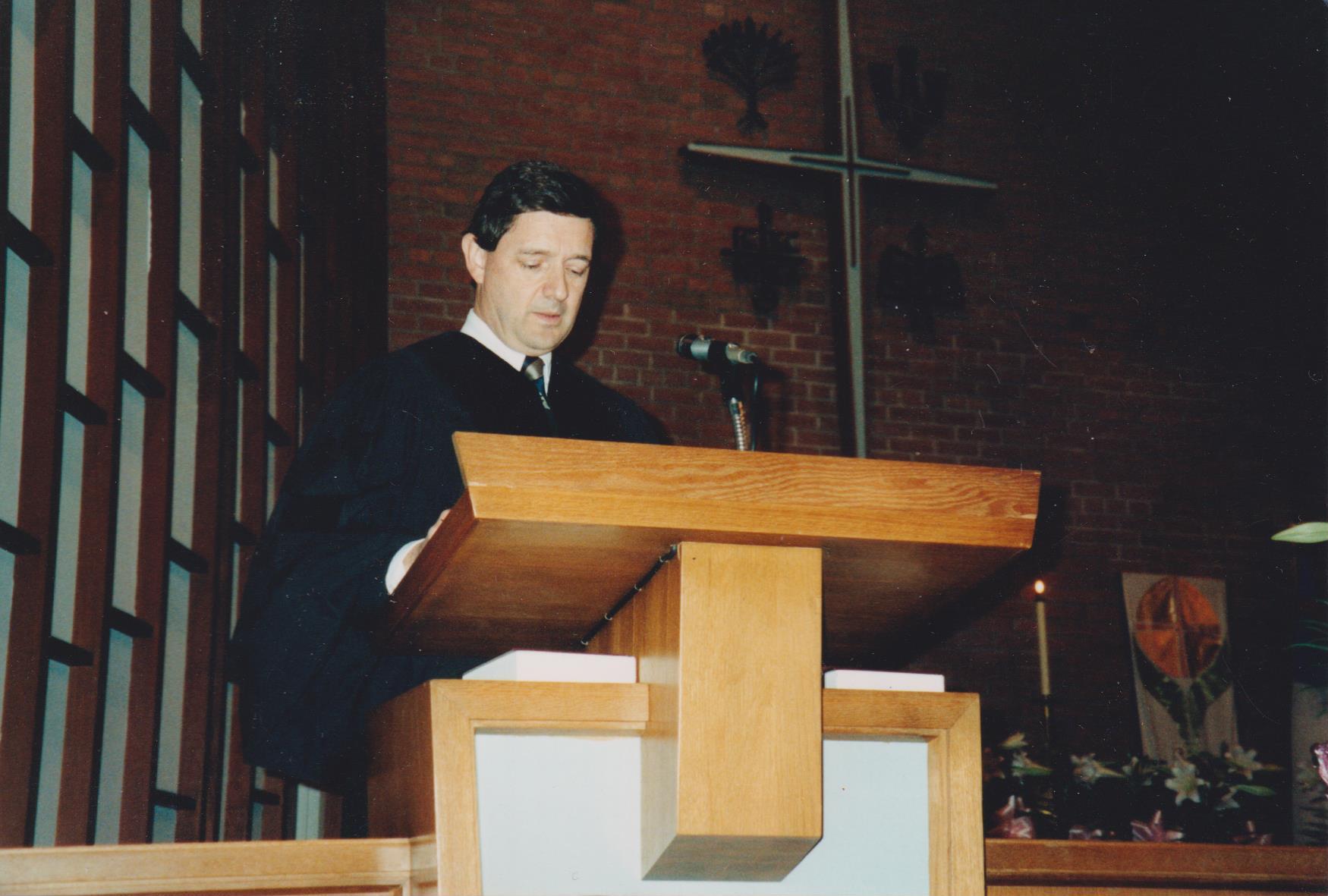
I committed myself to a teaching pulpit and to a spiritual (rather than religious) ministry.
It seems to have really turned some people on ... others off.
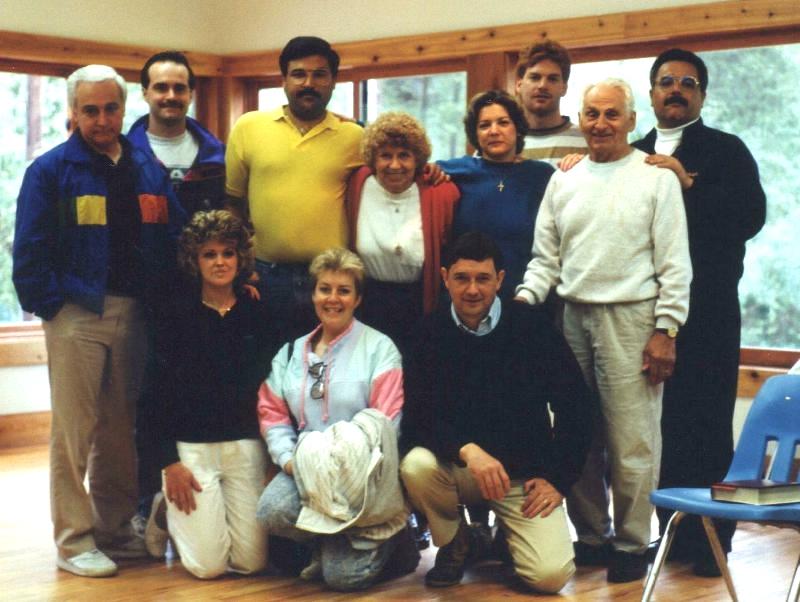
| Here is some of the group of my supporters ... plus a young man from El Salvador (on the right) who fled the country because of a death threat issued by the communist guerillas operating there, and who came to live with us for a few months until he could finally get settled in). |
|
Elizabeth is born (January 20 1993)
Kathleen was soon pregnant again. The due date in early 1993 was exactly the same as for Rachel, January 17th! (Rachel had come two days early however). Actually, it was on January 20th that Kathleen knew that the time had come. Again, it was a fast and relatively easy delivery. We got to the hospital at about 9:00 p.m. and an hour later a little girl was born. That was convenient, as we really had only a girl's name fixed in our minds, Elizabeth Jeannine Hodges. And once again we had waited until birth to find out whether it was a girl or boy that God was bringing us – though also once again, a sense of things told us that it was going to be a girl. "Elizabeth" was a family name on Kathleen's side (an aunt and a grandmother), though I myself had long loved the name. "Jeannine" was Kathleen's mother's name. So now we were a family of 5! |
Our 3rd child, Elizabeth, was born in January (1993).
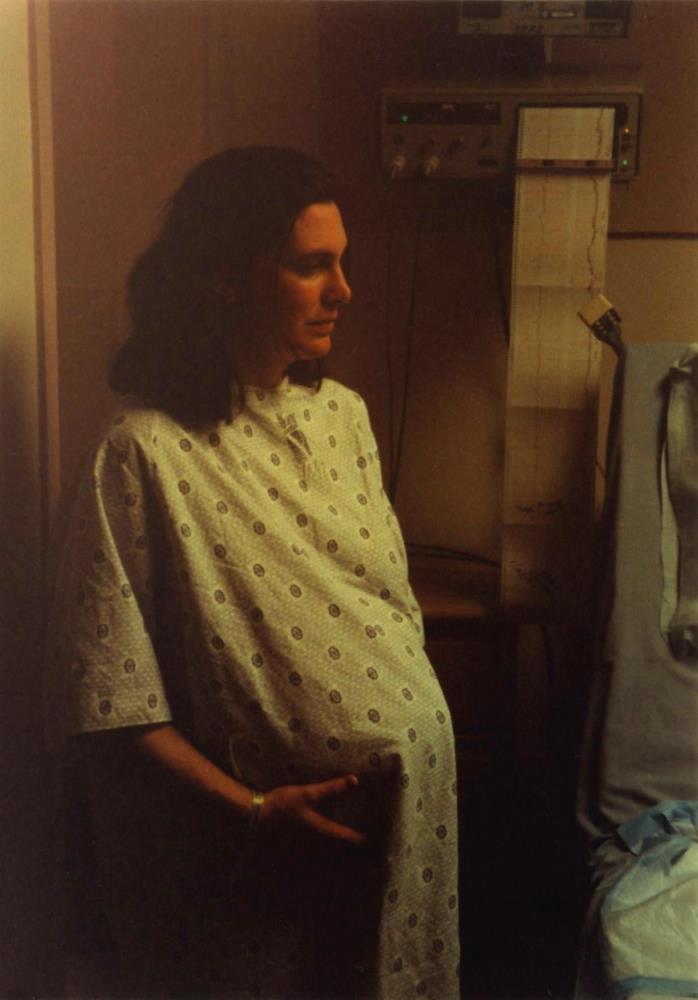 Kathleen and her mom, with Elizabeth and Rachel |
PRESSING FORWARD IN GARFIELD |
|
Trying (unsuccessfully) to move on
In the spring of 1993, after taking this battery of vocational tests, I resolved to put together a Presbyterian Personal Information Form or PIF (personal dossier or resumé) to see if I couldn't find a position in a church elsewhere. But somehow looking over the "Opportunity Lists" that the denomination circulated seemed to leave me cold. Everything just seemed more of the same. I really wanted to teach – but could not figure where it was that I would go to teach the kinds of subjects I wanted to teach. A secular classroom held no interest to me. And from what I could tell of the church-related colleges, they hardly differed from the secular colleges in their course offerings. Nor did I see how I would fit into the specialized world of the seminaries. I did interview with a number of churches over the next several years, one in Chicago, one in Florida, one on Long Island, one in California. But, for one reason or another, nothing came of any of the efforts. Trying to settle in a bit in Garfield while I wait for God to move
Remembering that it was God that had called me to this position and that it was God that would move me on (when he was ready) I began to focus a bit more on the issue of what I was going to have to do to make my stay in Garfield work a little better for me. Basically through a lot of prayer and soul-searching I realized that I simply had to take rather clear positions on certain issues and go with whatever consequences thus arose. I was simply going to have to trust God and leave to him the problem of human reactions. As for trying to cut back on my Sunday style – there was little hope that much was going to change there. I tried to cut sermons short – but succeeded merely in disappointing the evangelicals who felt that I was no longer giving them the "meat" that they were hungering for. Soon I was back to my usual 35-minute exegetical study as a Sunday sermon Likewise the extensive prayer time, complete with hands on for healing, remained part of our regular Sunday routine. Despite the fact that one cantankerous member of the old guard always walked out in disgust during these "unPresbyterian" prayers, I continued to pray this way for the rest of my stay in Garfield. Likewise, we continued to use "joys and concerns" time for members of the congregation to get up and not only spell out prayer needs but also state their thanksgiving for prayers answered or for work that the Lord was doing in their lives. This too disgusted some of the old guard, who would get up and complain loudly during this time period about how horribly things were going, especially when (on the few occasions this actually occurred) somebody new had wandered into the church. This was a not-too-subtle way to guarantee that they would not return, that there would be no "new blood" to further change the structure and character that the old guard expected in their Sunday morning ritual. Nonetheless, we stayed the course of opening up worship to the worshipers for their own testimonies and spiritual needs. A deep change in Session membership
In November of 1993, the church went through something of a "revolution," one originally designed to bring me down – but which in fact had quite the opposite effect. It erupted when an all-female Hispanic family (the mother was on the search committee that called me, but who had eventually taken sides with the "families") moved from the area, weakening the choir, causing two other choir members to decide to no longer continue their services. At the very same time, three of the "family" members resigned from Session (although one of them had not been attending for the previous five or six months). And Dot, the woman who had headed up the search committee (who had also come to ally with the "families"), now also transferred her membership to a church nearer her home. All of this was done to underline the point that I was ruining the church. The presbytery's Committee on Ministry and its Congregational Strategy Committee was called in to attend the session meeting that month, where the families presented what they presumed would be the death blow to my ministry. However, what they were unaware of was not only did the Garfield church already have a record with the presbytery as being a church that had always given its pastors a hard time, but also that such church drama was tragically not a very exceptional matter. In other words, both committees knew that they were simply dealing with typical church politics. The trick was to see what could be done before the Garfield congregation self-destructed over this matter. Instead of calling for my resignation, the committees suggested that the church undertake a serious rewriting of its mission statement, to give both sides in the contest a chance to work together. But that was not what the "families" wanted to hear. They were interested in no such review of things. They simply wanted things to return to the way they had been 30 years earlier during their "good-old-days" at the church. Consequently, the old guard simply went into retreat. But it did allow my support group to bring new faces onto Session, in replacement of those that had just quit. And the choir reconstituted itself. Indeed in all this, the church reached something of a major turning point. Even the draining of the finances came to an end, as giving increased (not however on the part of the "families"). So yes, something of a "revolution" had just occurred at the church – just not the one that the "families" had hoped for! Trying to reach the youth through confirmation class
Toward the end of my first year in Garfield I learned one of the hard realities of life in the mainline church. I was excited about the dozen youth that were attending regularly – with some apparent enthusiasm – my confirmation class. But what I did not realize was that for most of them, completing that course would be a sort of "graduation" event – and that having "completed" confirmation and thus Sunday School, their parents would no longer be returning them to church. So instead of building a new youth program on the momentum of the confirmation class, we found the next fall that we had only a handful of these youth still around to work with. Logos
A parent of one of the remaining youth, Janice (who also was a session member), came to me with the concern that if we didn't get something going, we were likely to lose her daughter from all participation. Fortunately, she had heard of a youth program called Logos, was highly impressed by it, and asked me to take a look at it. It looked good to me. It offered a training seminar to introduce the program to inquirers – an intensive retreat type of program of several days duration, which however took place during the week. Thus it was that she and I and another person, Craig, a newcomer to the church and a father of two of our younger children, took time off to attend the training seminar. It was a wonderful experience, a spiritual experience even, and we came back enthusiastic. The enthusiasm was not to last long however. Janice brought the matter to Session to get its approval, which we both thought would be just a formality. But this was in my second year in Garfield. The proposal was met explosively by some of the "family" members of Session! "How could we even think of undertaking any new programs, when we had hardly begun to digest the changes already underway?" Janice was shocked; but so was I. Considering the fact that those who were doing the protesting had no children of their own in the church, that the program was entirely self-supporting and would cost the church nothing – their opposition made absolutely no sense to us. But the voices of opposition were not to be moved on this matter. Thus the idea simply got tabled – at least for a while. The Creation Festival
Meanwhile I moved ahead with the youth on another front. In June (1992), Craig and another young man of the congregation in his 20s (Rich) and I took about 8 of our youth on a weeklong retreat in the mountains of Pennsylvania. Here 40,000 youth and adults gathered to live in self-provided tents, fighting flies and surviving the early summer heat (mixed with frequent freezing downpours) in order to participate in what can best be described as one big ongoing Christian rock concert (with teaching and preaching interspersed) including D.C. Talk, the Newsboys, Amy Grant, and a whole host of other Christian rock groups. We all loved it. We prepared our own meals over a kerosene stove, stood in very long lines for the few available showers (until the men decided to brave the freezing water from the more readily available water spigots to do bucket-baths in our swimming trunks) and came home from it all to sleep for days! |
Here we are with some of our youth the summer of 1992 ... the first of such visits.


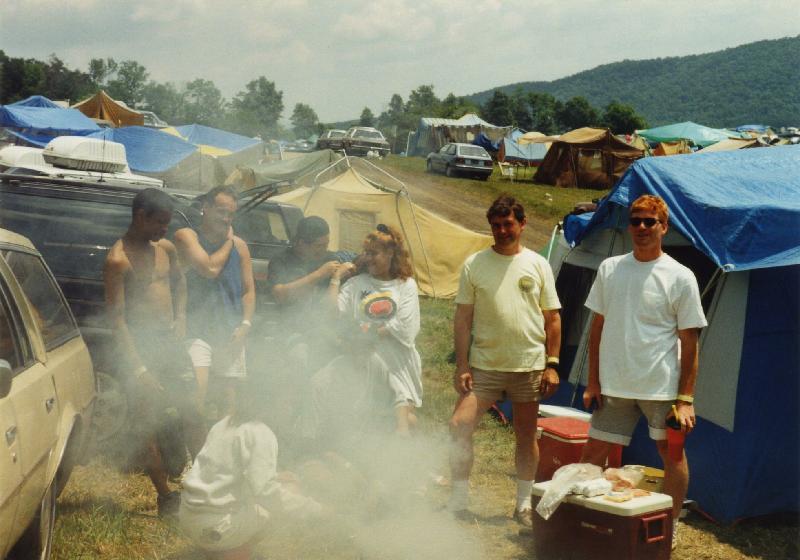
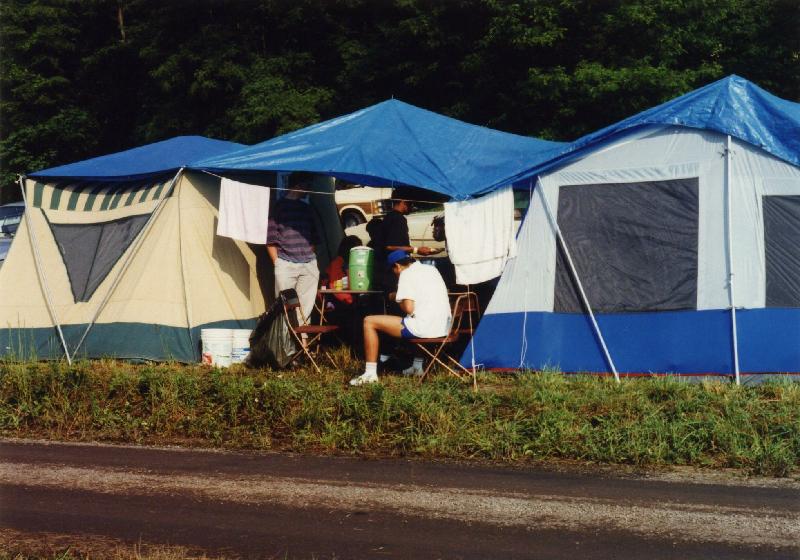
|
Logos: success!
The following year (1993), we decided to raise the idea of Logos again. And we found us a very capable leader: the whole group of us committed to the project! And this time when the Logos proposal was put before Session, thankfully it was approved. The "group" got to work putting this very complex midweek, full-evening program together (game-time, meal-time, choir-time, Bible-study-time). Then we signed up about a dozen young people for the program – most of them high schoolers! Now we were back in business with a youth program! The youth were faithful in their attendance – enthusiastic really. We ate together, played together, and sang together – a real achievement for some high schoolers. But best of all was the Bible studies. We had three sections: junior high, freshman/sophomore and junior/senior high school. I led the junior highs. In the meantime adults gathered elsewhere in the church building for midweek Bible study, led by one of our elders. We would all gather at the end of the evening for prayer, dessert, and last-minute conversations. Wednesday evenings at the church were thus very exciting. Disappointment
But sadly when the next fall came around, the two most charismatic of our youth, both seniors the year before, were no longer with us. Further, for reasons we could not fully explain, many of the others now had jobs or had become active in high school sports programs. The others, seeing that the leaders of the previous year were no longer with us, lost interest immediately. When we were able to sign up only 3 youths (with 8 adults committed to staffing the program) we decided to call it all off. We were surprised – shocked really – for all summer long we had been expecting to come back in the fall with an even larger Logos program – not a smaller program. We really never did know what to make of this shift in fortunes. The director of our Sunday School program, Richard, and I were mystified. Neither of us had a clue as to what to do. Instead, we decided simply to carry on as we had before, remain as dedicated as ever to Biblical teaching in our Sunday School work and leave the rest to God. Slow recovery
For two more years things just dragged on – sometimes it seemed pathetically. Then gradually, very gradually, new children began to show up for Sunday School. Our music program began to sound a little better with more voices and we started to get three or four, then five, even six at times, coming out to one or another of our three age-grouped classes. We started having communion in Sunday School on the days we had it in church (3rd Sunday of the month), to the delight of the kids. Finally, we knew that we were back in business with a Sunday School program! By the fall of 1996 we had 15 to 18 children attending Sunday School regularly. And we definitely had the makings of a very young youth choir – which I put to work from time to time in regular worship. The Sunday before Thanksgiving of 1996, the sermon I preached was actually an extended children's sermon in which I retold to a group of about 20 youth seated around me the story of the Pilgrims and their arrival in America. The Sunday before Christmas the youth even put on a wonderful Christmas pageant ("The Little Drummer Boy"). And almost needless to say, they were there to help in the Palm Sunday and Easter festivities next spring (1997). Through having to depend on them to give new life to our diminishing congregation, we made them feel as if they were an integral part of the church. And why not? They were! Maybe this was what God wanted all of us to learn through this episode of growth, decline and growth again of our youth program. He wanted them to be an integral part of the spiritual development of the church. |
We did what we could to make church interesting for the kids.
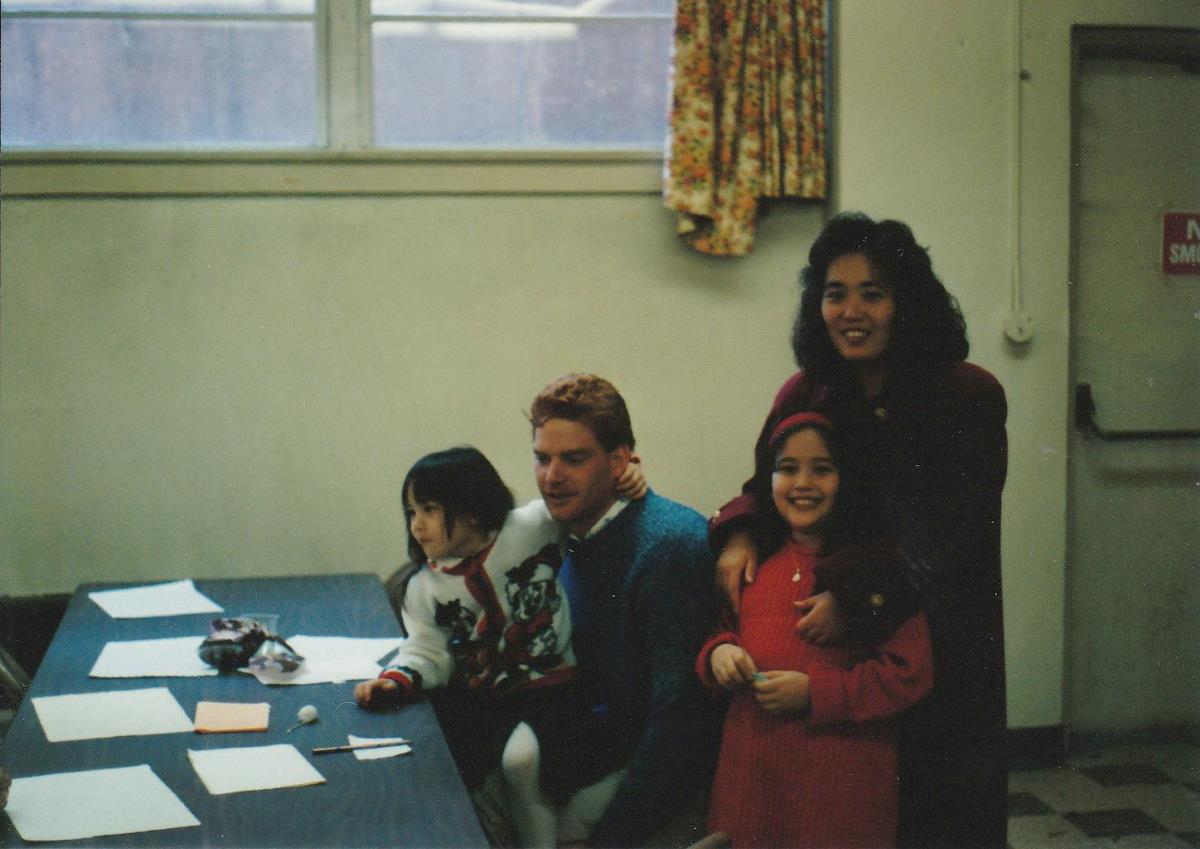
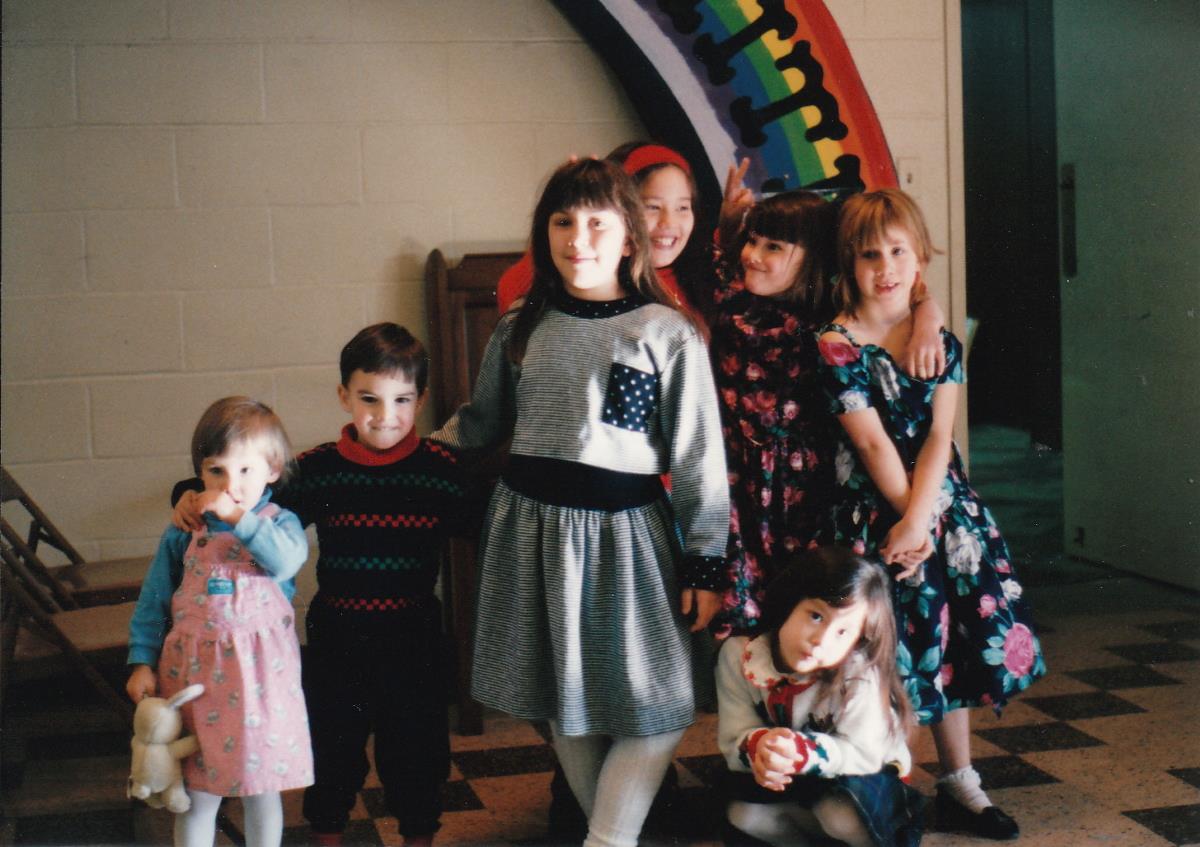
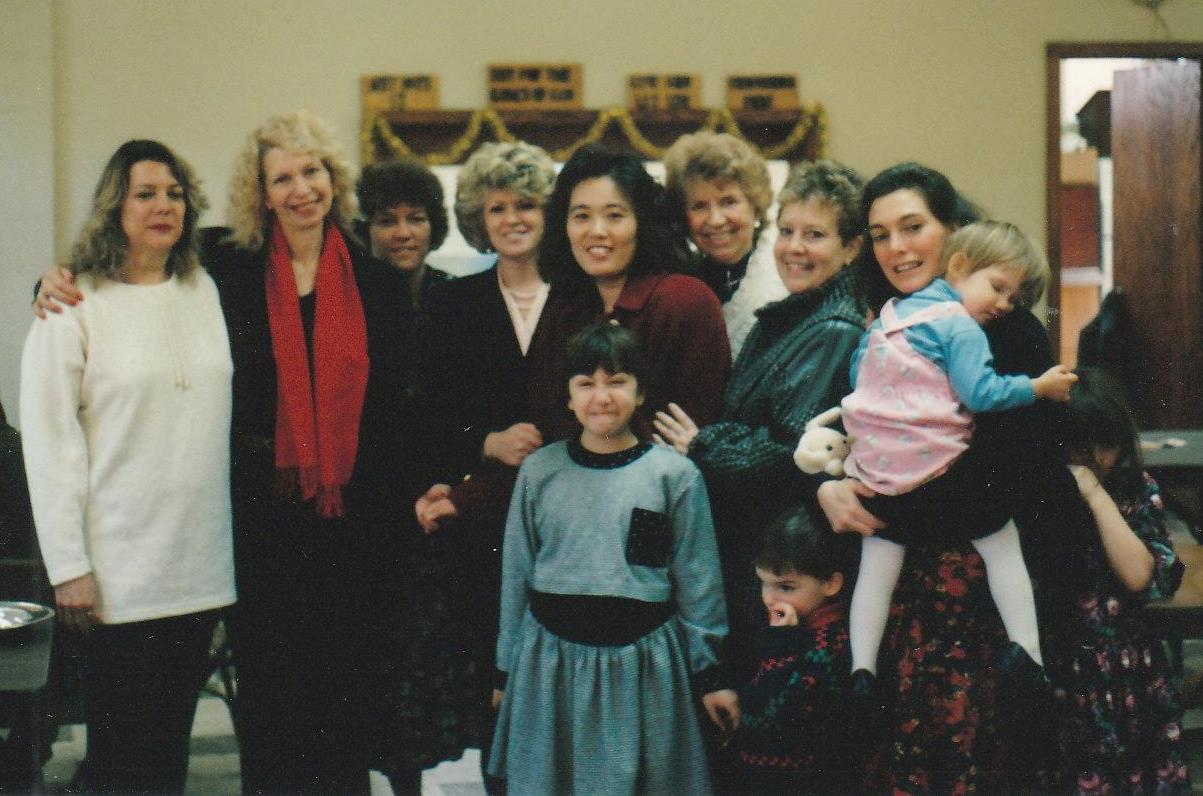
... and here are some of my female supporters ... who were an enormous help to me!
I was also the church secretary ... and the janitor!
The winter of 1993-1994 it snowed
16 times ... the accumulation so vast it set records.
And of course it was me who was the one that had to clear the church's sidewalks and driveway every time it snowed.
REACHING OUT BEYOND OURSELVES |
|
The Chuck Colson Prison Ministry
I had long valued prison ministry for its power to train hesitant Presbyterians in the art of evangelism. Prison ministry offered Presbyterians an opportunity to undertake an unfamiliar venture without having first to become an expert in it – exposing them to the wonderful discovery of how much the Holy Spirit is able to accomplish through them in the face of their own inadequacies! Thus it was that in my second year at Garfield I invited one of the staffers of the New Jersey Chuck Colson Prison Fellowship to come to our church and lead about 15 of us on a 5-week training program that qualified us for service as jail or prison "facilitators" (meaning staff or team) for weekend seminars. It was quite involved. But all but one of us stayed the course and ultimately received our certification. We were ready to start doing prison ministry. I was excited. I knew that this would make a big difference in the lives of those of the congregation that got involved. A weekend of actual prison ministry was scheduled for April (1993) at the Middlesex jail (Middlesex Adult Correctional Facility) – and I put us on the list to attend. Even though it was an hour's drive to the south of us (but the car trips were always enjoyable anyway) the facility was clean, the guards friendly, the program very well organized and the seminar leaders warm, deeply faithful and quite humorous as well. Our experience with the inmates was just as warm and friendly – and there were tears at the Sunday evening closing, with promises that we would be back in a couple of months for the next weekend seminar And we did come back – again, again and again – for the rest of my stay in Garfield. And the Garfield participation grew to ten or twelve for each visit. Testimony time at church on the Sundays following a weekend seminar was always filled with stories of something or other wonderful that happened during the visit. However, not everyone in the congregation was so enthralled with all this. One member of the "families" once commented afterward to one of the parishioners who had spoken up during testimony time that if he enjoyed this so much why didn't he just rob a bank – and then he could be with these jailbirds all the time. Hah, hah! Except that when he repeated the comment a few minutes later to the same person, the humor was missing. The Loaves and Fishes Food Pantry
When I came to Garfield, there was almost no contact among the town's various churches. The pastor of a small Lutheran (Slovakian) church nearby and I got together for a few lunches in the first years. And I attended one of their church picnics. But nothing much more happened – until 1995 when the mayor of the town called the dozen or so pastors together for a brunch meeting, the purpose of which was never entirely clear to me. The outfall of this meeting was the decision by the Lutheran pastor and myself to try to revive the long-defunct Garfield Ministerium. But in our early efforts, we really only got one more local pastor interested. But he happened to be the pastor (priest) of the largest (Italian) Catholic church in the area (actually just over the hill in neighboring Lodi)! We three pastors got together several times over lunch to talk about what we might do to make the Christian presence a bit more unified and more "obvious" in this supposedly largely Catholic, but actually very secular town. A food pantry seemed most immediately doable along these lines. And the Catholics had exactly the place to put the pantry: a vacant convent building. With that matter settled, we sent out the word that we needed food for our new Loaves and Fishes Food Pantry – and gathered volunteers from the three main churches involved, about 40 of us, to begin organizing our rapidly growing food stocks. We found ourselves inundated with food – and with parishioners from other churches in town (their pastors themselves were slow to get involved) who wanted to help out. Also, the postal workers made a huge Saturday morning collection of food for us – as did the Boy Scouts. The most wonderful thing about all of this was being "the church in action" – Christians of all denominational colors working side by side to try to help lift up people in town who were struggling to make ends meet. Whether Catholics or Protestants, we discovered that we all seemed to have a very similar spirit – very evangelical. We not only worked together, but prayed together and helped each other out. Very quickly I become very close to those taking the most active role in the Food Pantry. We didn't merely pass out food to families, but we prayed with them or just took the time to listen to their stories. Some of them were our own parishioners – others were from other parishes. Many were unchurched. But just as with the prison ministry – we served only one church, one Christ, one God. The New Jersey Senate Committee on Urban Policy and Planning
One other area beyond my service to the parish ministry had opened up for me during my Garfield days: working with a newly created New Jersey Senate Committee, given charge to come up with a comprehensive plan for the state to work with its various metropolitan districts in encouraging urban self-redevelopment (1994-1995). This had all started with my involvement in the New Jersey Kairos Prison Ministry, an activity I pursued on my own, quite early in my Garfield years. I had enjoyed my participation in the program in my last days in Mobile, so I sought out and soon joined the program in New Jersey. And I soon also found myself on the board of directors of the New Jersey Kairos program. It was in the course of this involvement that I developed a special friendship with a fellow teammate, who served as the head of the New Jersey Republican Party conference (a bureaucratic rather than elective position). This friendship in turn led him to introduce me around to larger New Jersey political circles. Indeed, he saw to it that I was invited to the Presidential Prayer Breakfast held in Washington in February of 1995, where he introduced me to a number of key political officials. He was also aware that I had once been a friend of Newt Gingrich, who just the previous year had produced something of a Republican political revolution, which swept the Republicans to power in Congress. With Newt also attending this same breakfast, he thus made it his business to go up to Newt at the close of the event and tell him that a friend of his was attending the conference, to see what his response would be when he mentioned my name. He said that Newt lit up, and asked that we meet before things cleared out. But by the time he was able to get back to me in the midst of the mass confusion that accompanied the closing of the event, I had to get started back to Garfield (I had a passenger to take back as well). We could maybe meet at some future date. But that opportunity never seemed to present itself. However, although politics still interested me (in a cultural-spiritual sense) it was not about to become my new focus. Anyway, at the time I was very busy trying to help the Presbytery move down a science and theology road. However I did fulfill a request made to me to put together a proposal – ultimately a 17-page report presented to the Senate committee in January of 1995 – on ways for the Republicans to push into the world of urban reform, a world that the Democrats seemed to believe that they alone had the right answers for, as well as the only valid experience in the matter. Yes, true enough. The welfare system – the same one that I came to realize had crippled the institution of the Black family and had sent so many Black males into the streets – was indeed their product. But I had my own version of how to go at the problem, less programmatic and more personal, based on my own extensive personal experience in this matter. And that's what my proposal was all about: ways to effect true interpersonal (non-programmatic) social reform. Anyway, my report was well received, some publicity eventually came my way, though ultimately nothing life-changing seemed to result from my effort. And so things went for me! Deeper involvement at the presbytery level
Considering my catastrophic startup as the "conservative" of the presbytery, it was odd that very early in my presence there, I found myself called upon to jump into presbytery activities. I was asked to co-chair the committee that planned the annual fall clergy retreat for the Presbytery – the other chair being someone I had known fairly well during my seminary days. Anyway, this was my introduction to the professional circle of parish clergy. And of course not only did I plan – but also participate in the three-day event, held in the full bloom of the beautiful fall colors (mid-October) of the mountains of upstate New York. And thus it was that I was discovered during those days to be in fact a kindred spirit with a number of the pastors of the presbytery, especially among the younger set. The pastors' Wednesday breakfast group
As a follow-up to that first retreat, I was asked to join a recently assembled weekly breakfast group of about eight Presbyterian pastors, all men, most of them of the more evangelical sort. What a group it was – exciting, alive. We had no particular agenda – except to form a bond that would undergird our respective ministries. What I learned from them was incalculable. Furthermore, I cannot imagine how I would have survived the kinds of pressures that I worked under in Garfield without their support. At first I thought of myself as being something of a misfit. I was pastoring the most marginal of the churches in the presbytery. At the same time, two of the group were pastoring the biggest, most prestigious churches in the Presbytery. My problems were not their problems – or so I thought. But soon I came to understand that we all faced many of the same challenges, no matter what the outward appearances might happen to be. Anyway, we not only formed a bond among ourselves but we began to make our own mark on Presbytery. This came at a time when our Executive Presbyter, Barbara, was beginning to soften the shrill style, knock off the edges of some of the ideological harshness that I felt was driving presbytery meetings during my first year there. And also, the breakfast group itself constituted a rather influential portion of Presbytery's membership (myself definitely not included!) and thus brought to Presbytery a more evangelical tone – though by no means a conservative one, for we were a definite mix on the conservative-liberal spectrum. Our harmony helped to increase Presbytery's harmony – as we faced the kinds of issues that seemed to want to tear the church apart. Although the members of the group by no means agreed among themselves about the ordination of homosexual issue – the hot issue of the day – our own ability to differ on this issue and yet keep our close fraternal bond intact itself became instructive for the presbytery. For the rest of my seven years in Garfield, I would look forward, each Wednesday morning, to my 7:00 to 8:30 breakfast time with these fellow soldiers in the Lord's army. The presbytery's Spiritual Development and Theology Unit
In the second year of my arrival in Garfield, the presbytery itself underwent a very deep restructuring. In the reorganization of the presbytery, some new "units" (large committees) were created, one of which was the Spiritual Development and Theology Unit. Still holding the reputation of being a conservative evangelical – yet also having gained a reputation for possessing a certain depth of theological understanding – I was asked to become a member of this unit. This was quite an honor, for only three ministers would be brought on board this committee (along with 3 non-minister or "elder" members of the presbytery) – and there were a large number of ministers that had candidated heavily for the position. Ironically, I had not, having a tendency to not be very impressed with committee work. But in agreeing to the appointment, I actually came upon an exciting new venture of moving Presbytery beyond being just a large administrative apparatus for presbytery business.1 And thus it was that I took up the challenge of the unit's very new, and largely uncharted, mandate. It was up to us, the members of this unit, to decide what "spiritual development and theology" was to become, what its role in the presbytery was to be. As such I worked with the planning team for the annual clergy retreat, actually serving as chairman of that responsibility. The intention was that these three-day retreats would focus themselves around these issues of spiritual development and theology. And so it was that each year we invited in teachers, authors, etc. who formed the centerpiece of the retreat. Richard Tarnas
 In
my third year with the unit (1995), I organized, in addition to these
annual retreats, a very special seminar on behalf of the Unit, one that
brought in from California Richard Tarnas, best-selling author of The Passion of the Western Mind. In
my third year with the unit (1995), I organized, in addition to these
annual retreats, a very special seminar on behalf of the Unit, one that
brought in from California Richard Tarnas, best-selling author of The Passion of the Western Mind.I was very familiar with his work, a wonderful distilling of the broad features of the intellectual-cultural history of Western culture, for I had been teaching a course in the Garfield church that focused on this very subject, and used his book as our primary text. I had taken up this interest (bringing it humbly to my own support group in Garfield!) because I was quite concerned about how deep or far-reaching our rejection of our own intellectual legacy had become within our American culture. In the now-rising Boomer world, almost everything that smacked of tradition was being viewed as "oppressive" and to be purged from our contemporary self-understanding. With such "reductionism," we were supposedly going to build a much more enlightened culture – from scratch it would appear. I knew this was indeed not a sign of our enlightenment but instead a sign of our cultural confusion. And it was coming on at a time when I knew our Western heritage was being challenged by a number of other cultures that had no such hesitations about themselves. This was a dangerous development for Western culture – as history itself bears witness. As the famous British historian Arnold Toynbee put it, it is not by economic or political decline that civilizations collapse; it is through moral and spiritual decline that they collapse. Our mood of social deconstructionism to me pointed exactly to this kind of moral and spiritual decline. Anyway, I was (and obviously still am) not one inclined to stand by and watch it happen. Though I might not save Western civilization by my efforts – I wanted at least to give a try at saving the few Western souls that I could, by bucking the trend, by bringing back to light the wonderful elements of our cultural heritage. I would do it at home. I would do it from the pulpit. I would do it wherever and whenever I could. And I was thus strongly inclined to challenge the presbytery to take a look at this issue as part of its own commitment to spiritual development and theology. So – I invited Richard Tarnas to come out and meet with us and walk us through the high points of our own legacy – in the hopes of stirring a sense of loyalty and renewed commitment to the basic moral and spiritual values that have undergirded Western (Greek, Roman, Jewish and ultimately Christian) society for the past 2500 years or so. I was very delighted when, in the fall of 1994, Rick Tarnas agreed, in coming East the following April, to lead an all-day seminar built basically around his book. I gave the event a lot of publicity in Presbytery – challenging my fellow pastors and elders to come out and catch a vision of our great intellectual heritage. I advertised the event in The New York Times (the New Jersey edition) and in a number of other regional papers. I put out flyers in every bookstore in the area: an author who hit The New York Times bestseller list would be coming our way. I naturally made the decision to host the gathering at our Garfield church. I did this simply because a number of my own church people were excited about this event and were willing to come out to do the kind of work that hosting such an event required. They cleaned and cooked – and got the church ready for this big event. I met Tarnas the night before the "big day" and found him to be an easygoing, open person – in fact a true delight. We found that we shared a lot of views in common, especially about the "basics." But having read his book, I suspected that this would be the case. Deep disappointment
The day arrived ... and disappointment hit deep. We had prepared enough food for about 200 people. Instead, only about 20 showed up, most of them from the Garfield church. Only two other pastors from the Presbytery came out for this event. How sad it was really. Rick was dazzling – as outstanding in personal presentation as he was on paper. And only a handful of people were there to receive his wisdom. I was told by one of the pastors who attended that the problem was that I had chosen to hold the event in Garfield. That was the kiss of death for such an event. I listened closely to this advice – a little late though. Nonetheless, the people from the church who had worked so hard gathered with Rick for a picnic afterwards. There the conversation continued to flow, exciting, humorous, insightful. When I returned Rick that evening to his hotel in Manhattan we parted as friends. My trip to Santa Clara (June 1995)
A couple of weeks after Rick returned to California, I received a call from him. There was a world conference of the International Transpersonal Association that was going to be held in Santa Clara in about a month's time. It would feature such people as Huston Smith, Brian Swimme, Matthew Fox, Stanislav Grof, Rupert Sheldrake and many others, including himself, that would be leading panels over this five-day affair. He had arranged with the Board of Directors a scholarship or fee waiver ($250) for me if I was interested in flying out for the event. Was I interested? Yes, of course I was. I had read the works of most of those he had mentioned and though I did not necessarily agree with them in their philosophy, I knew that I would be very interested in meeting them first-hand. In fact, I knew that this would put me in the middle of a very fast-moving "Boomer" philosophers' circle that I wanted to know more about. Ever the social/cultural analyst, I've always been very interested in anything that opened up another slice of our developing culture to my viewing. I spoke to my Executive Presbyter, Barbara, (who was herself from California) about what she thought of the idea. You see, by this time she had asked me to actually chair the Spiritual Development and Theology Unit! Indeed she recognized in me some kind of potential that truly needed an outlet larger than simply pastoring the Garfield Church (she was the one who suggested and had the presbytery pay for my professional testing in Princeton back in 1993, and had taken careful note of the results). She agreed with me that I would find myself in the midst of the cutting edge of the "new science" and "postmodern" philosophy circle – and that it would be most enlightening, especially given my desire to get a better fix on what is happening to our culture. She thought it was a great idea. So did I. Thus complements of Barbara's efforts, I received money from the Presbytery for my flight out to California (red-eye special). Once there I rented a car, and found lodging at the home of my sister's boyfriend (Joe) south of San Francisco – just a 20-minute drive to the conference center. It was amazing how it all worked out – so quickly, so easily. The conference itself was ... "interesting." An obvious "New Age" spirit hovered over the whole thing. It was heavily "Boomer" in age – mid-40s to late-40s seem to be the average age profile. It was a bit reminiscent of some of the hippie gatherings that used to take place near my Washington D.C. apartment back in the late 1960s, except that the flower children were starting to get wrinkles, receding hairlines, and a bit of gray and were a little bit paunchier. The focus was on "spirituality." There was Daoist spirituality, Zen Buddhist spirituality, Hindu spirituality, Sufi Muslim spirituality, Jewish Kabbalah spirituality. Every kind of spirituality was present – except Christian spirituality. Rick Tarnas in his historical study of Western culture spoke very favorably about the Christian underpinning of our Western culture. But apart from that, the few times that anything Christian was mentioned, it was done so with contempt. I was deeply saddened by this – for Christian spirituality has long been at the heart of Western spirituality. True, there have been some awful things done in history by the Christian religious establishment. But Christianity itself, the spiritual legacy of Jesus Christ, is the finest spiritual vision under the sun. When I saw that Matthew Fox was leading a panel on Sunday morning, I was delighted that finally we would hear about this great Christian spiritual legacy. After all, Matthew Fox had once been a Catholic priest, had recently been re-ordained as an Episcopal priest, so surely he was there in the name of Jesus Christ. Wrong...! Much to my chagrin, what he talked about was the seven Hindu Chakras and how they integrate the essence of God with our own holistic being. As I left his talk, I wondered why he even bothered being an Episcopalian. Didn't Episcopalians believe in Jesus Christ? Of course they did. I know the great depth of Christian faith of many Episcopalians. But I was disappointed at the lost opportunity for a Christian official within the group to present the very spiritual gospel of Jesus Christ to this huge gathering. That Sunday afternoon I took a flight from San Francisco to LA to visit my sister, Gina. Her boyfriend Joe was there ahead of me (they would typically get together each weekend, in LA or San Francisco, or the California desert or Mexico). I was still deep in thought about what I had experienced in Santa Clara. It all seemed so alien to me. California seemed alien. But seeing my sister was great. I stayed on in LA for two more days. There was nothing to do during the day while my sister was at work. But she had a copy of The Celestine Prophecy (which she hadn't yet read!) that someone had given her. I myself had not yet read this massive bestseller – and sat down and quickly read through it. Then I reread it, taking careful notes this time. This seemed to go right along with the rest of my California experience. I made up my mind then that it was time for someone to bring Christian spirituality forward into this huge swell of interest in spirituality. I would attempt it if no one else would. I reach out to local "New Age" Boomers
With the coming of summer, I had more time to do some reading. I busied myself looking into the New Age Movement, the broad name for what I had basically experienced in California. I was trying to get a feel for its general shape and content, a sense of what some of the major contributors to the movement were saying. It was not an easy task because the whole thing was very amorphous. Structures were very ad hoc or impermanent – if there was any real structure there at all. Everyone was sort of a spiritual entrepreneur, with this or that idea to promote. It was highly eclectic, everything being borrowed from whatever seems the most "exotic," meaning non-Western – and especially non-Christian. Then I noticed that a local Barnes and Noble Bookstore had a spirituality group that met in the store monthly. They were studying The Celestine Prophecy – the way other people studied the Bible. I decided to come out to their next gathering just to see what it was all about. It was a large group – thirty or more – of the same age profile as had been at the conference in Santa Clara. The discussion centered on everyone's spiritual experiences, things that pointed to the presence of some kind of a higher power or consciousness (there was a careful avoidance of the use of the word "God.") The discussion often turned around the experience of feeling especially "spiritually-connected" to a particular set of events – or other people: "coincidences" that were much more than coincidences, much in the way I once was so appreciative of the work of Fortuna in my own life. Sometimes the talk reached to the idea of having connections (Hindu-style) with our previous selves (incarnations). But mostly it was a discussion that if you inserted a word here or there that referred to God or to Jesus, it would largely have been in keeping with the Biblical studies I led at church. With this as a positive note in my mind, I jumped into the conversation – bringing Christian language into play. There was a bit of a stunned look on the faces of some. A few more comments and the group suspected that they had a Christian in their midst! Indeed, by the end of the evening they all knew that they in fact had a Christian minister in their midst. Overall reactions were mixed. Some warmed up – and hesitantly followed up my lead. It seems that there were other Christians in the group, or people who had been raised Christian and still had some loyalties to that early inheritance. A few were even practicing Christians, including the group leader, Debby, who was a Sunday School teacher at a Presbyterian Church pastored by one of my Wednesday breakfast buddies. I guess these covert Christians had shied away from being "Christian" in their language in this discussion group in order not to be "offensive" to others, a principle that I obviously had just violated! Others were made a bit nervous by this Christian language. There were a number of ex-Catholics in the group who had a definite negative attitude toward Christianity. There was also a Jewish individual who was very negative – but who had a generally negative attitude about everything. But there was also an older Jewish couple participating who were quite intrigued by what I had to say. In any case I silently decided that I would be back the following month. I wanted to see how my presence worked out over the longer run. Actually in the next couple of months I sort of "fit in" as the Christian voice – if there was some question as to what Christianity had to say about this or that. People got used to my presence and those who at first were a bit defensive about it warmed up (the negative personality being the exception – although there was nothing personal about his continuing negativity!). Some of my own parishioners came out under my encouragement to become part of the conversation. But most of them found it less important to be there than I did, and soon it was just me that was coming out. In the meantime this group spun off a smaller share group that met in the home of one of the participants. Only about a dozen attended this meeting. It too met only once a month. I became a regular member – and would remain so until I left Garfield two years later. We became very close. Not only was my Christian witness accepted – but it definitely added certain dimensions to the discussions. And we all drew close as friends. As a share group, we held each other up in our celebrations – and in our hurts. They became a very tender source of support when my father died. They were a major source of encouragement when things were getting more and more unsustainable in Garfield. They even at one point put together a major food purchase for Kathleen and me when finances were crumbling at the church. I didn't convert anybody to Jesus Christ during those conversations. But I made Jesus a part of our company. That included also the Jewish couple – who were intrigued with my explanations of Jesus's Jewishness. I made Jesus accessible to them in a way that surprised and delighted them. Maybe that was all I was supposed to do. In turn, their warm reception – at a time when I didn't always get that from some of my own parishioners – was a reminder to me of why I had left home, job with tenure, friends, everything to follow out the call of Christ in my life. I had not left to bring "church" to the world. I had left in order to bring Christ to the world. This relationship with these "New Agers" was indeed for me a great blessing. I had Rick Tarnas to thank for getting me started down this road! Science and theology studies
Over that same summer (1995) that I took up reading about the New Age Movement I also undertook to focus other parts of my reading on this matter of science and religion. One of the first pieces I picked up was Fritjof Capra's The Tao of Physics. I also looked at several works of the holistic psychologist Stanislav Grof, the holistic sociologists Dana Zohar and Margaret Wheatley, holistic healers Larry Dossey and Deepak Chopra. Needless to say, I was intrigued at the idea of a "new science"' arising – not through the abstraction or taking apart of reality, but through an integrative approach that looked at the nature of things as they worked together to produce a comprehensive "reality" – one that even included the participation of the scientific observer. This of course led me deeply down the road of study of quantum mechanics: Bohr, Schrödinger, Heisenberg. Years before, I had read books by and about Stephen Hawking. I now returned to those to look at how they did/didn't correspond to this "new science." And that in turn led me to look at works by the scientific metaphysicists, with Paul Davies turning out to be one of my favorites. And I also encountered Chaos Theory along the way – which opened up yet even another vista into this "new science." Since ultimately I was motivated by a desire to understand how Christian doctrines and teachings interfaced with these developments in the "new" science, I turned to the works of Polkinghorne, Torrence, Barbour – especially the scientist and Episcopal priest Polkinghorne who was a prolific writer on this issue. I became very excited as I read – for I realized that here were some thoughts that were very important for the church to be aware of, ideas I wish I had known about when as a young man I was having such a struggle with the "reasonableness" of my Christian faith. At some point in my readings, knowing that the best way to learn is to teach, I made the decision to put together yet another course at the church on this subject of science and theology. I advertised it at Presbytery for those who might be interested in the subject. Once again, the turnout was entirely from my own congregation. But by then I was used to these things not taking on big ways and was quite content to study this subject with a handful of the Garfield faithful. We had a lot to talk about, to try to come to an understanding about, to reflect on how the truths of the new science related to the truths of our Christian faith (understanding that there can be by definition but one Truth). It proved to be very exciting material to study. I decided on another tack in my strategy to get Presbytery to take a look at this issue as an evangelistic matter. As chair of the Spiritual Development and Theology Unit I had a lot of leeway about inviting key individuals to address Presbytery on the subject. So in 1996 I invited the head of the Presbyterian Association for Science, Technology and the Christian Faith (PASTCF) to come to the area to deliver a seminar on the subject – at the upscale Ramsey church this time rather than at the down-at-the-heels Garfield (I had learned my lesson with Tarnas) – and to address Presbytery the next day. There was a nice turnout of about 20 (mostly pastors) for the all-day seminar – and a nice reception before Presbytery the next day. Finally, science and theology as an issue had caught on in the Presbytery. The following summer (August 1997) I had the opportunity to study the subject at Syracuse during a week-long seminar entitled "Rediscovering Cosmos." Here were gathered a large number of major writers on the subject of science and theology, including Kitty Ferguson who had written a couple of my very favorite books, one a biography on Stephen Hawking and another entitled The Fire in the Equations which was a wonderful survey of the whole subject of theology and the new science. Seeing that she was from New Jersey – and not far away at that, I asked her if she could be available to come and speak before a gathering of pastors (on the same model as the previous years' seminar at Ramsey). She was. She first came to speak to the whole of Presbytery in September. Then in October we held a full-day seminar in Ramsey. The turnout was again very good with about 2 dozen (again, mostly pastors) turning out for the event. In the meantime, I undertook, with two other colleagues, to put together a presentation for our annual clergy retreat in October entitled "Chaos Theory and the Christian Faith." For two months prior to the event the three of us got together to plan out a strategy for presenting chaos theory in such a way that we could relate our own spiritual experiences to the dynamics of this theory. This was easy for me because by that time my own Christian life was in total chaos – with my situation in Garfield becoming financially untenable. I was really living by faith in the midst of chaos and my actual situation fit right into the subject. I was also aware that despite the chaotic appearances of my situation, it really wasn't just "breakdown" but in fact was merely the first stages of the growth of an entirely new, beautiful life pattern (even though I couldn't see it at the time – and even though I didn't know I was only a few weeks away from the beginning of the unfolding of such a new pattern of life centered on Dunellen). Anyway, when the event finally came into being at our annual retreat site in the mountains of Holmes, NY, I myself needed to receive, to feel, to understand existentially, the weight of that idea of Truth amidst Chaos. I knew it to be so in my rational mind. But I was hurting emotionally. Overall, just discussing the issue turned out to be for me a painful event. But it helped get me ready for what was lying just ahead. NCD (New Church Development) possibilities
Meanwhile, I had never let up in my effort to move on from my situation in Garfield. In early 1996 I was sent by the presbytery (again, with Barbara's considerable support) to Atlanta to undergo training, the Presbyterian Church's first effort at creating NCD work as a "programmatized" venture! Once the seminar got underway, I found myself in easy agreement with fellow participants (pastors from around the country, mostly much younger than me) that this was all just clever marketing analysis, that treated Presbyterianism as a religious product rather than as a spiritual experience. It all seemed a bit of a waste of time (and presbytery money). Nonetheless, my friend Scoti had always insisted that starting up a new church was the only approach to pastoring I should give serious consideration to, for I was so "out of the box" that only a church that I myself had started up from scratch would truly be a match for my pastor-teacher skills. Others in the Presbytery thought so too. I had very clearly a strong entrepreneurial spirit and the kind of stamina that could stay with the demands of NCD work. And thus after my return from Atlanta I got busy putting together the first stages of an NCD proposal for the Palisades Presbytery. We were particularly interested in trying to plant a Presbyterian church in the midst of newly reviving (or "regentrifying") Hoboken, just across the Hudson River from Manhattan. But the only problem was that there really was no presbytery money available for the huge investment required. We all knew it. We then thought about trying new church development at a movie theater (on Sunday mornings these tended to be closed, and thus available). But even this would require developmental money the presbytery simply did not have. Thus it was that I applied for NCD positions in other presbyteries – but seemed to get nowhere with them either. 1Interestingly, the chairman of this unit had been the president of Hanover College back in the days when I was a student there. I asked him about my Bible professor, the one who committed suicide. His only reply was that he had been a man with many personal problems. Well, that much was obvious! 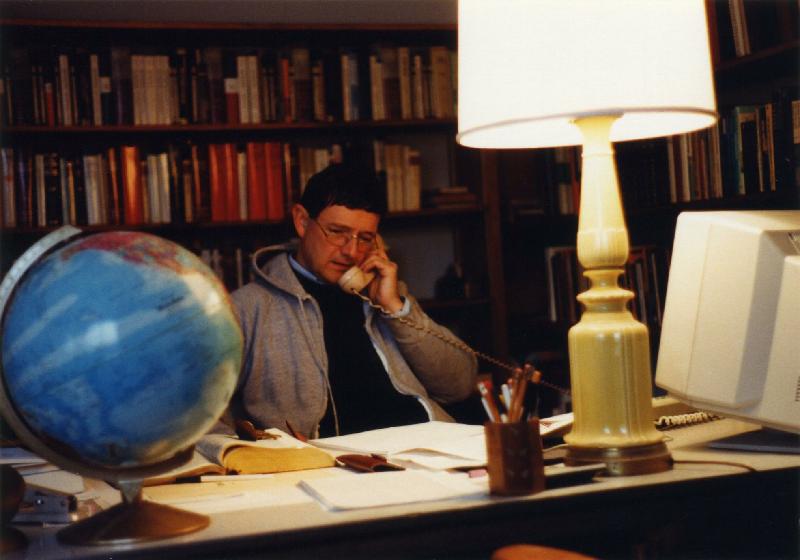 In the pastor's study
Vacations ... as a grand opportunity to escape to some kind of sanity ... and show our kids a much larger (and kinder) world!
|
